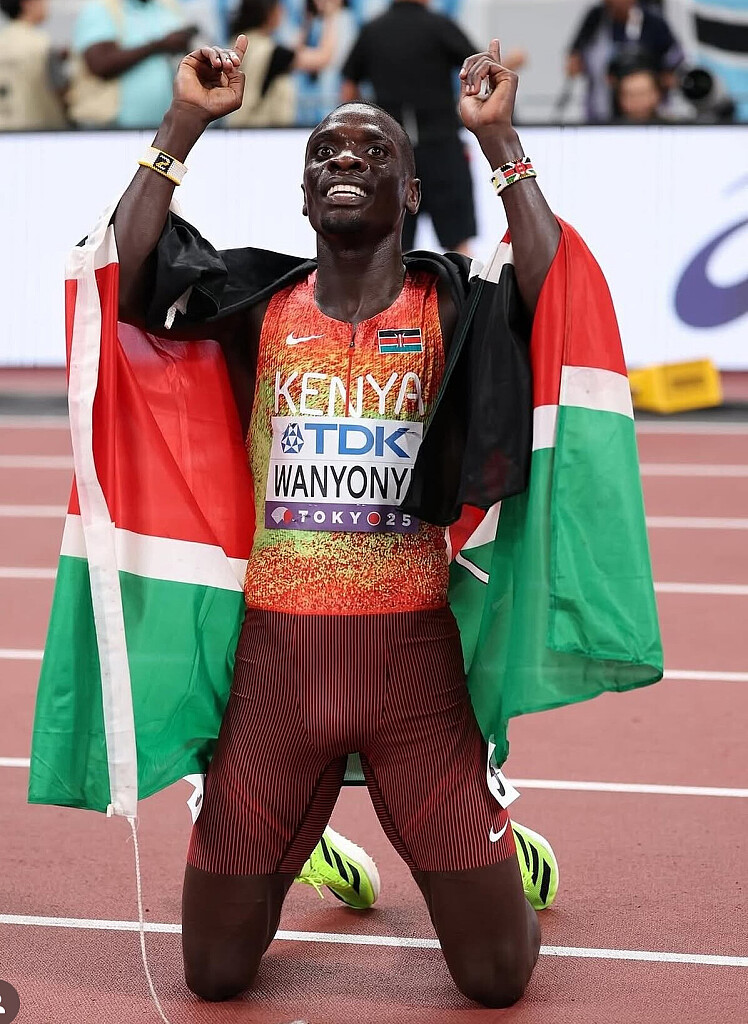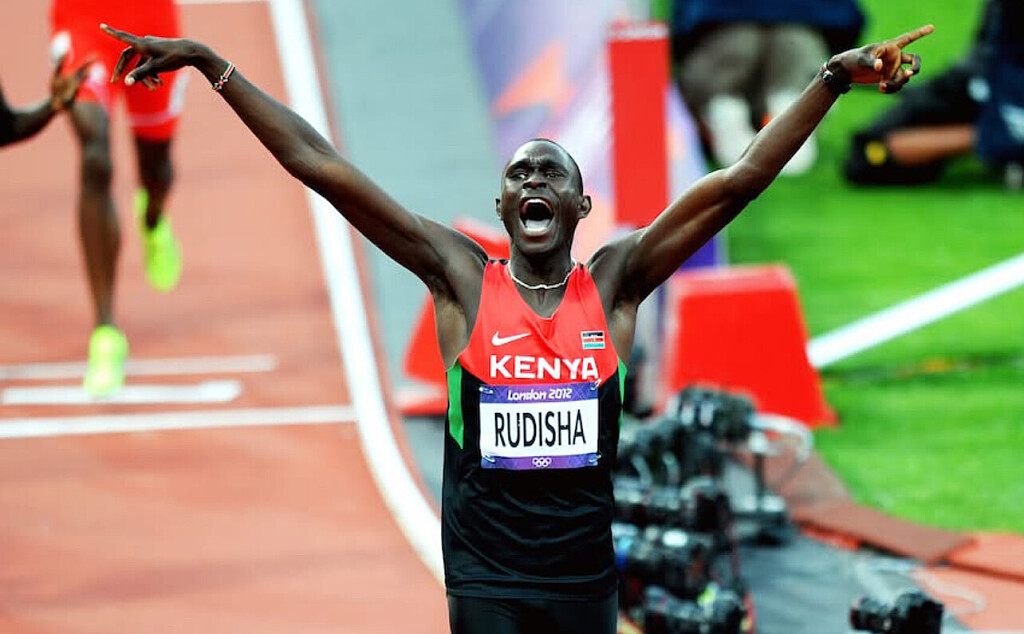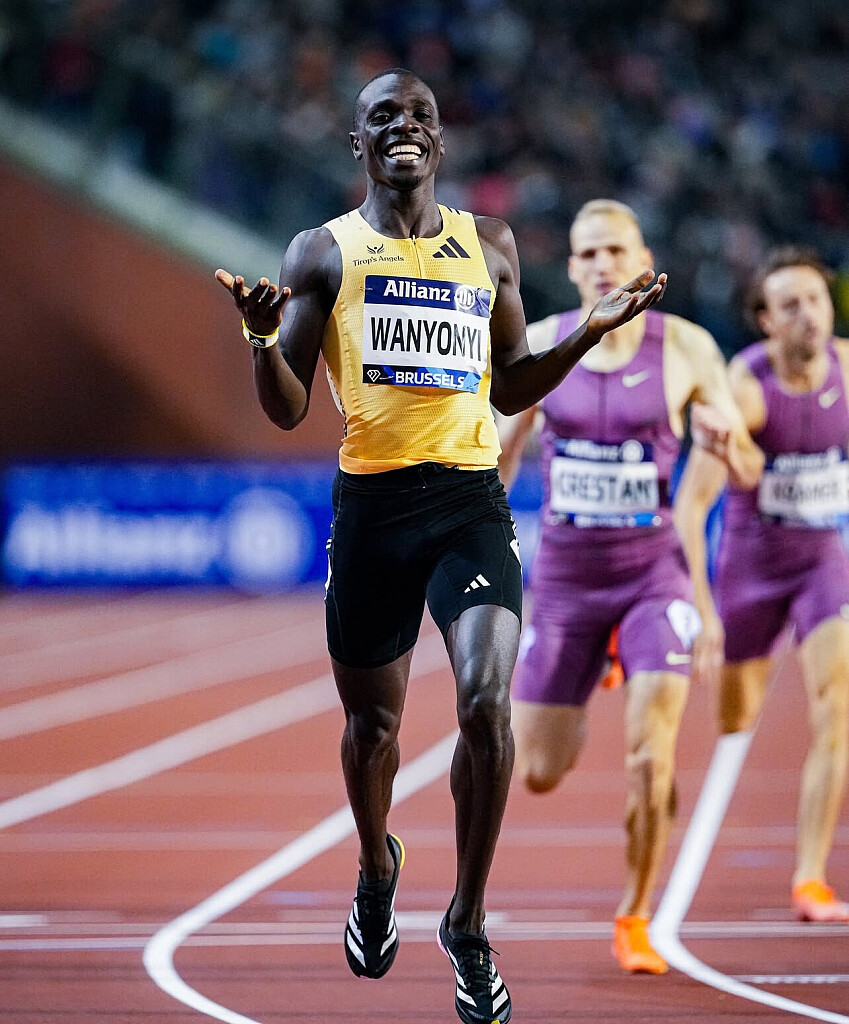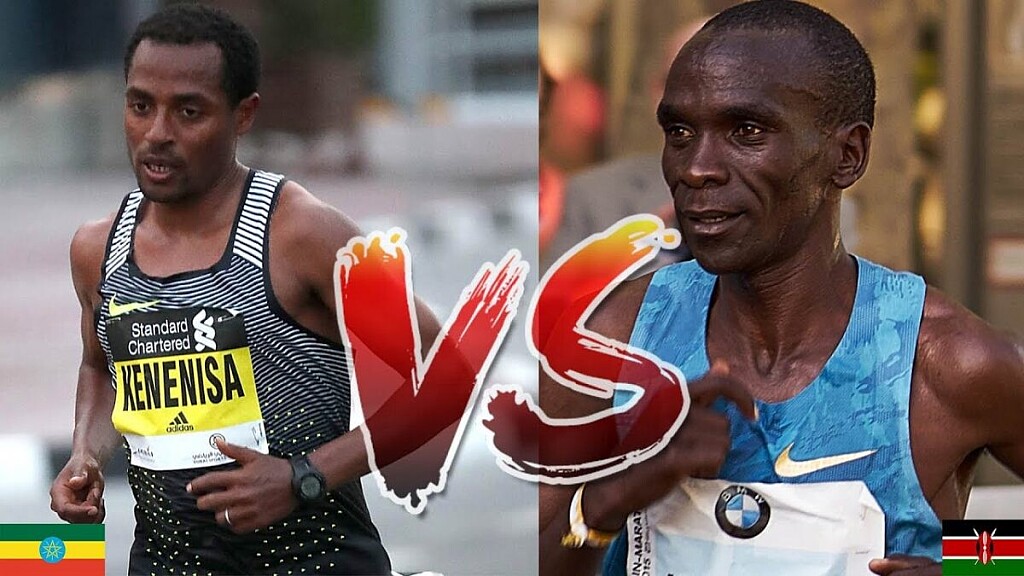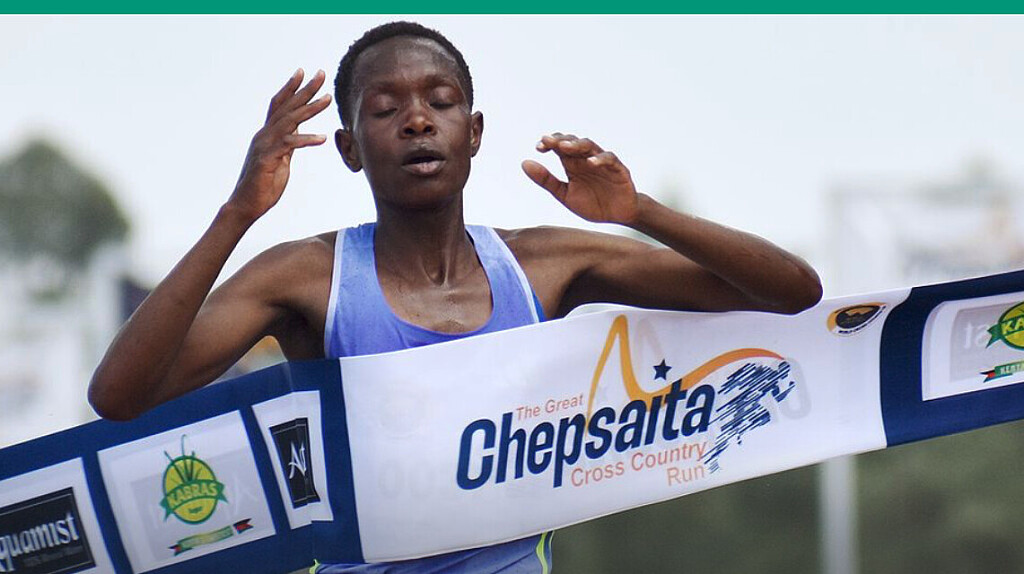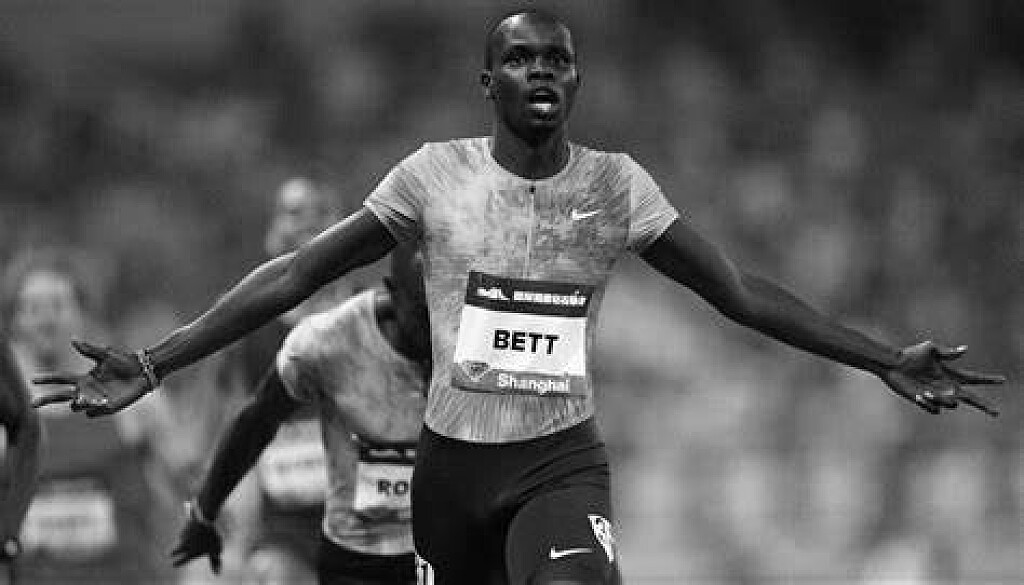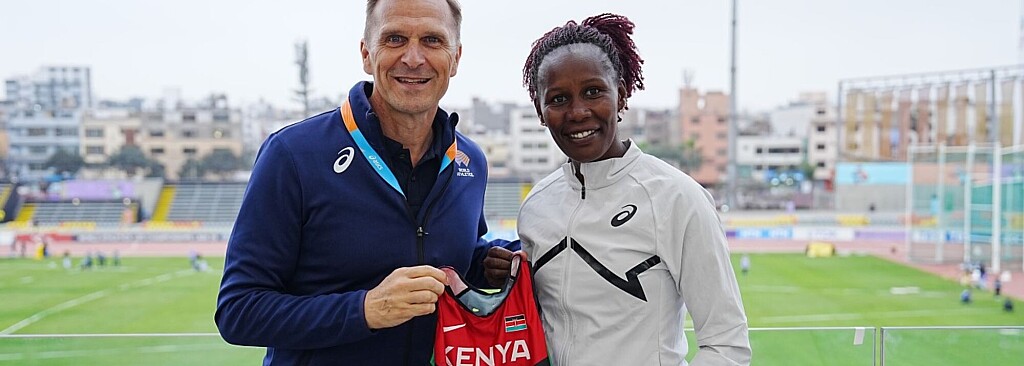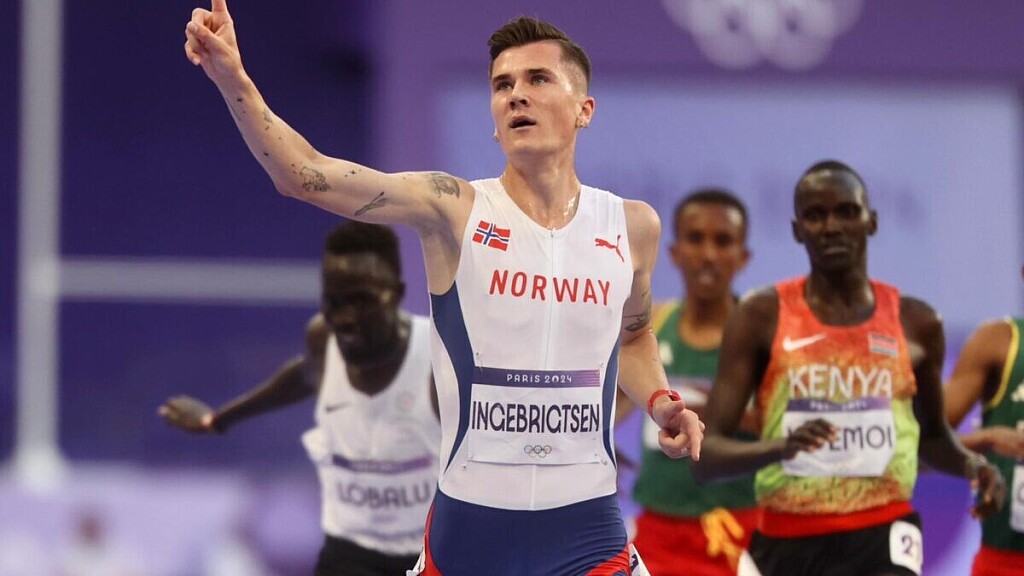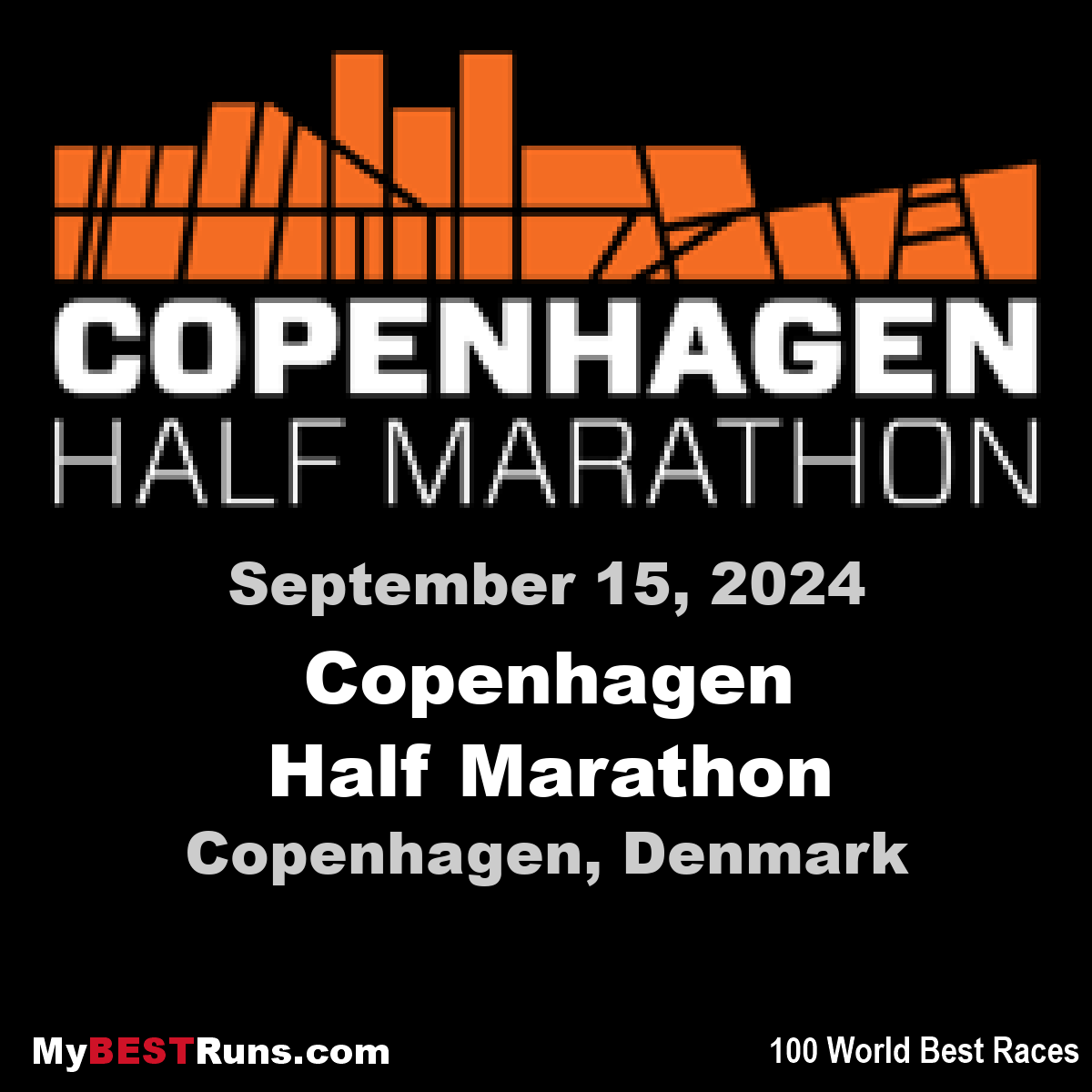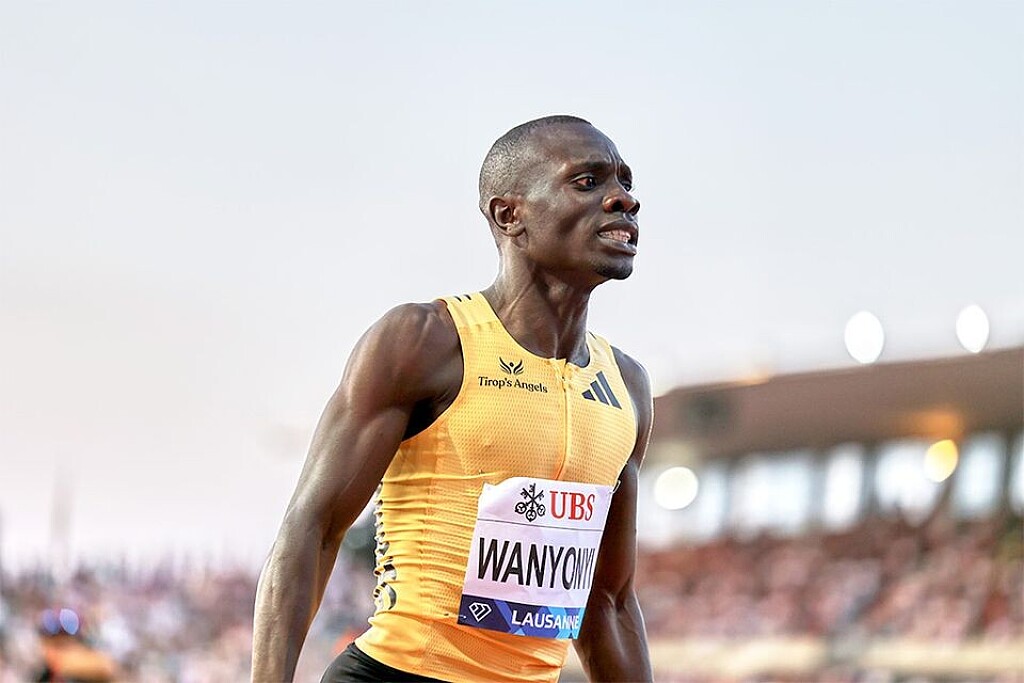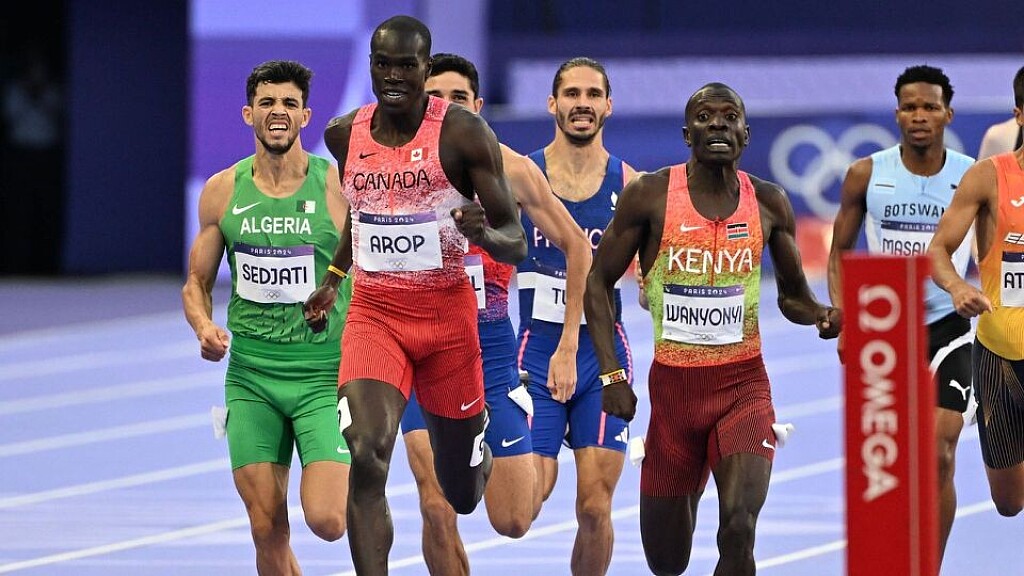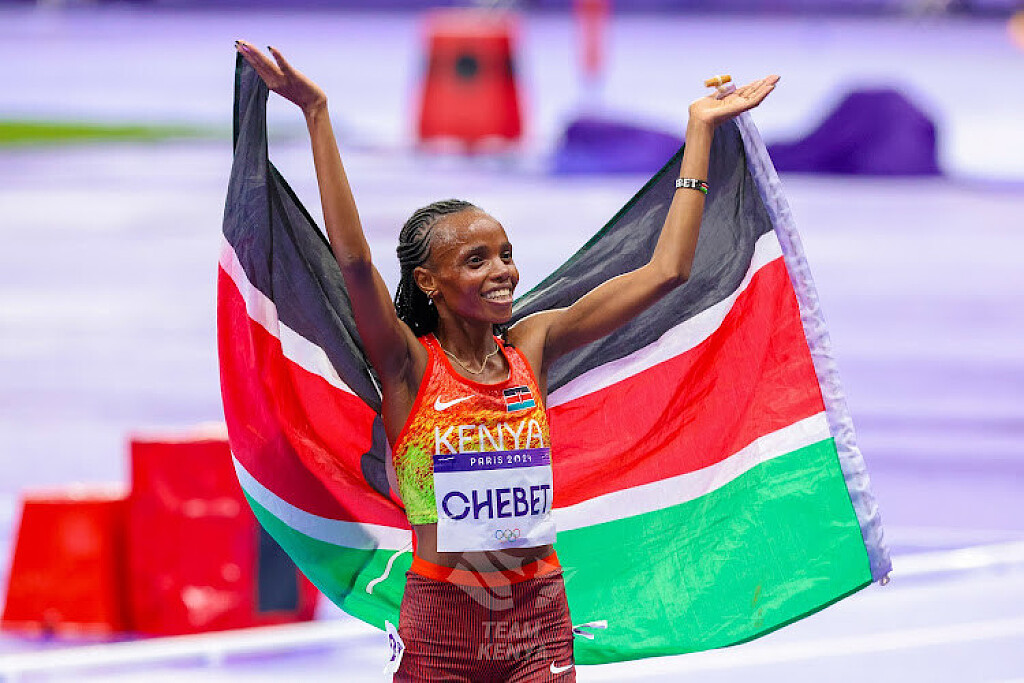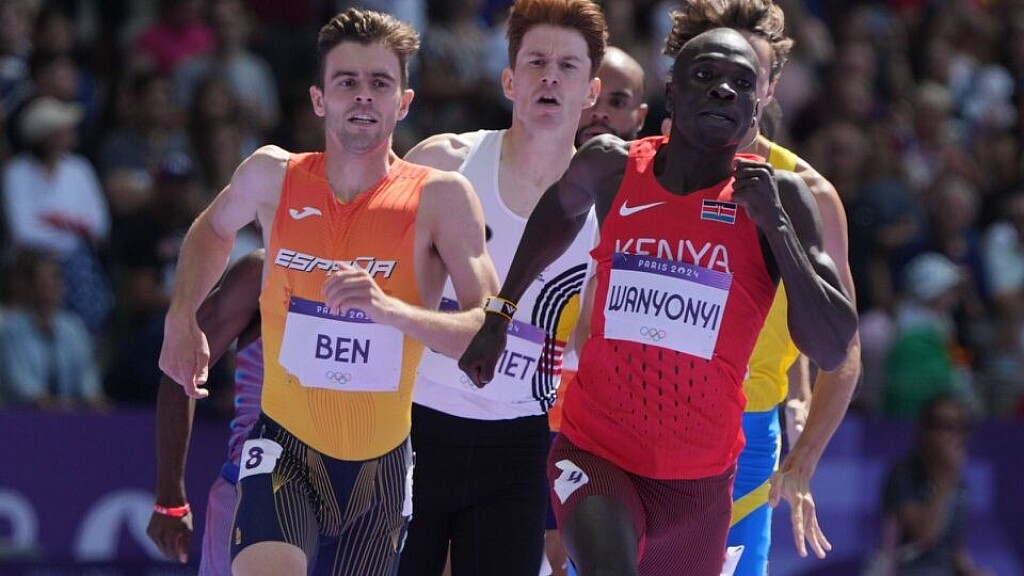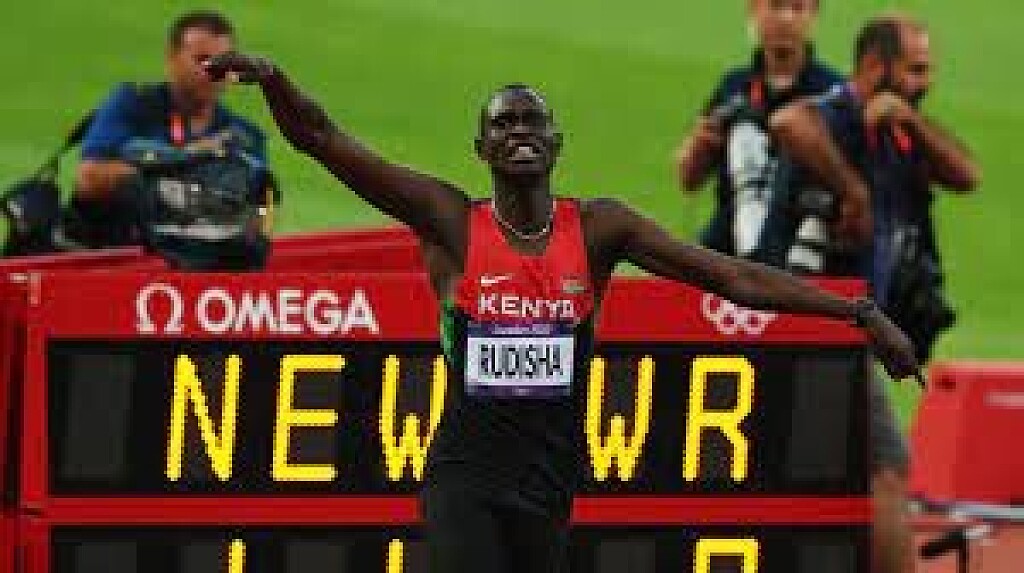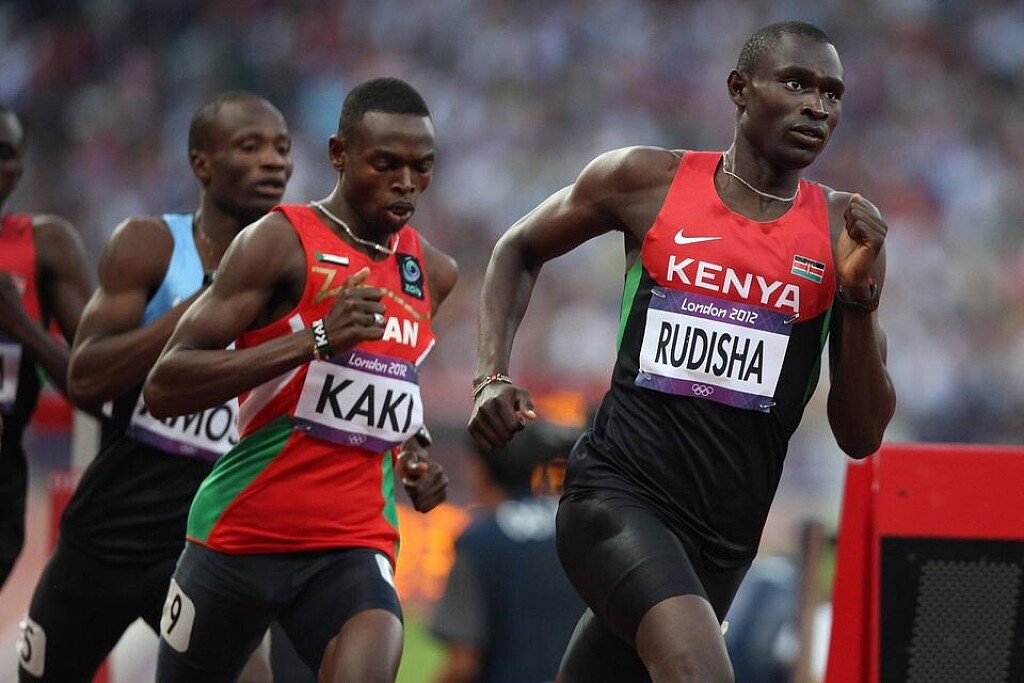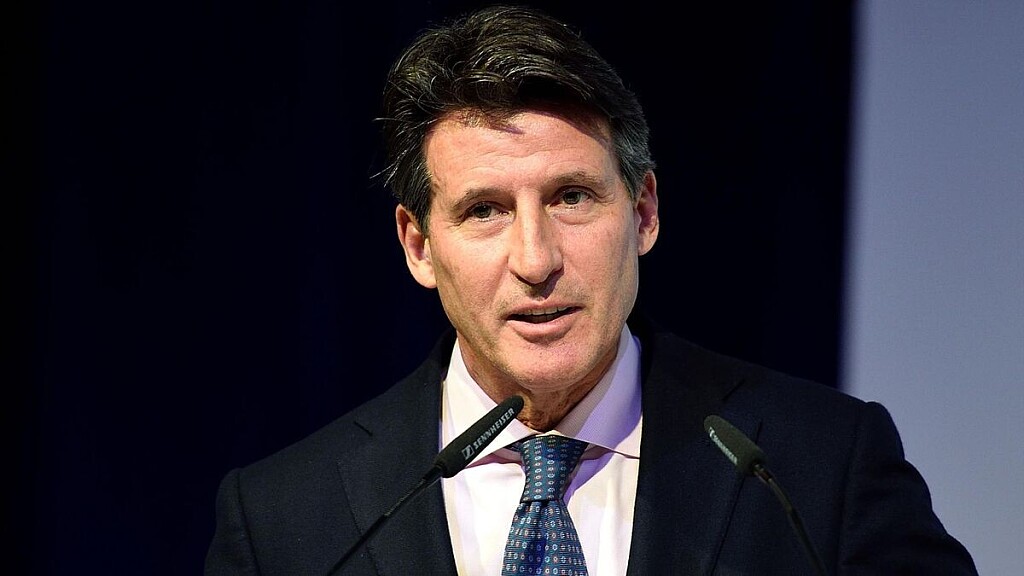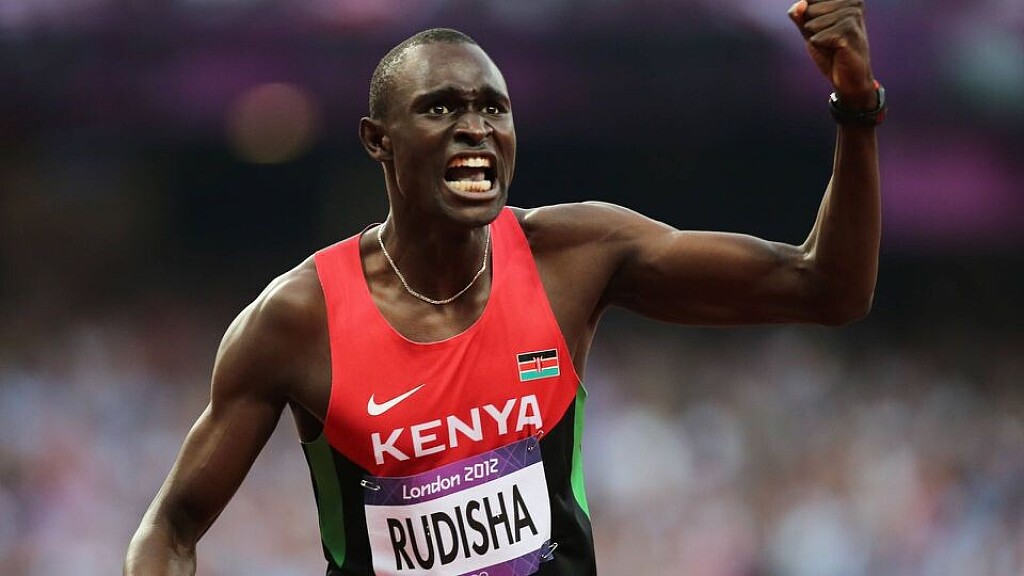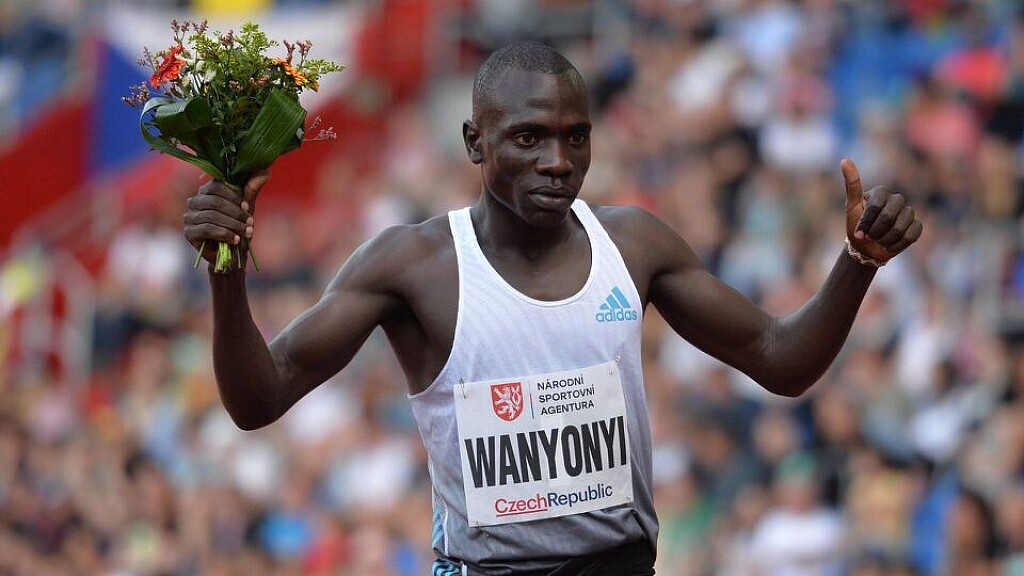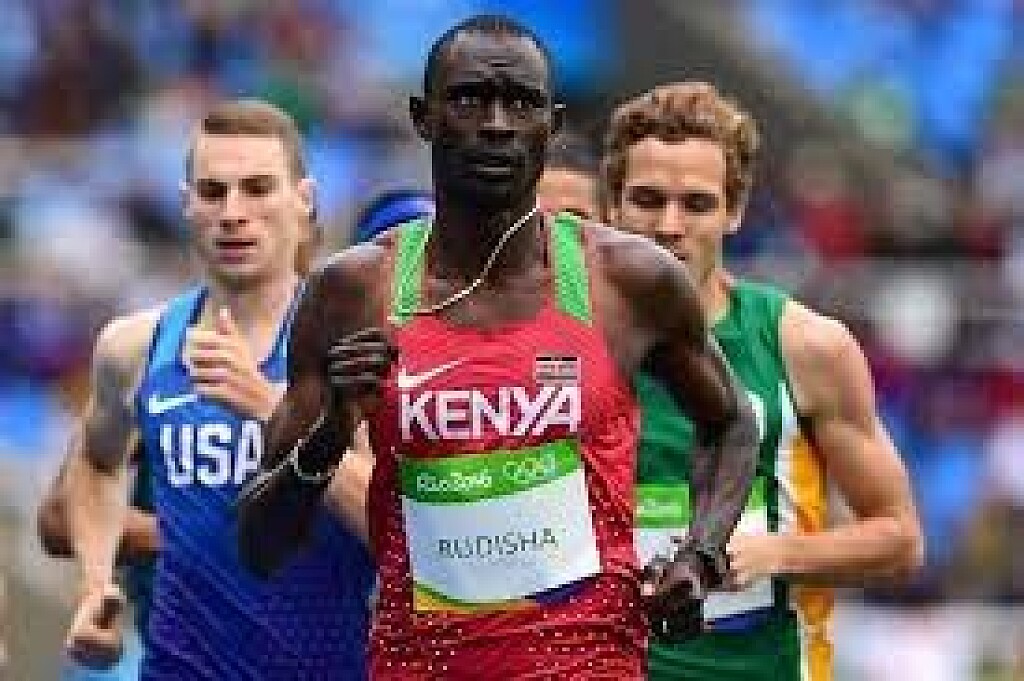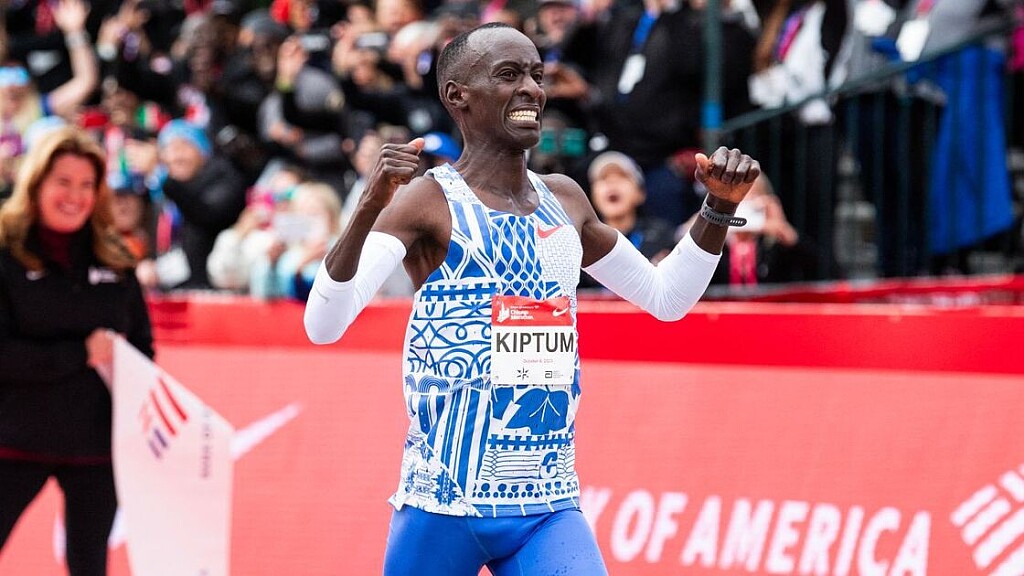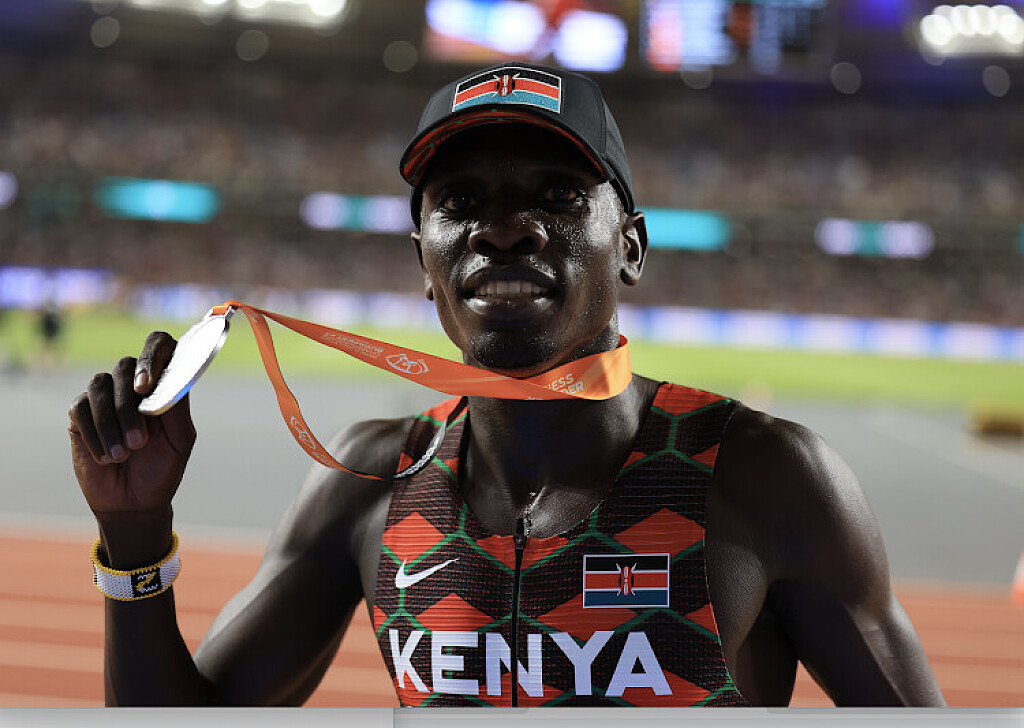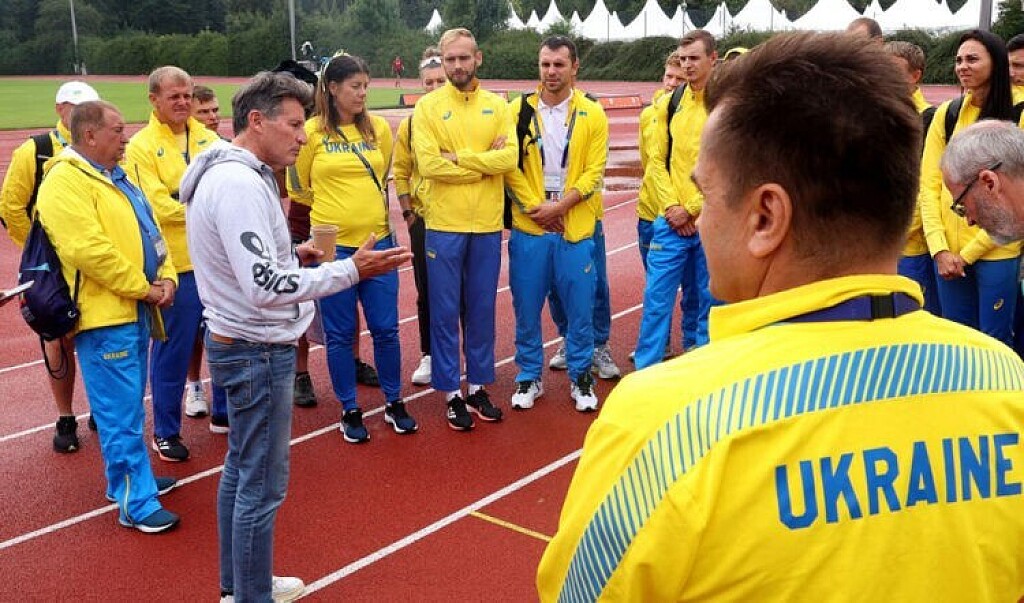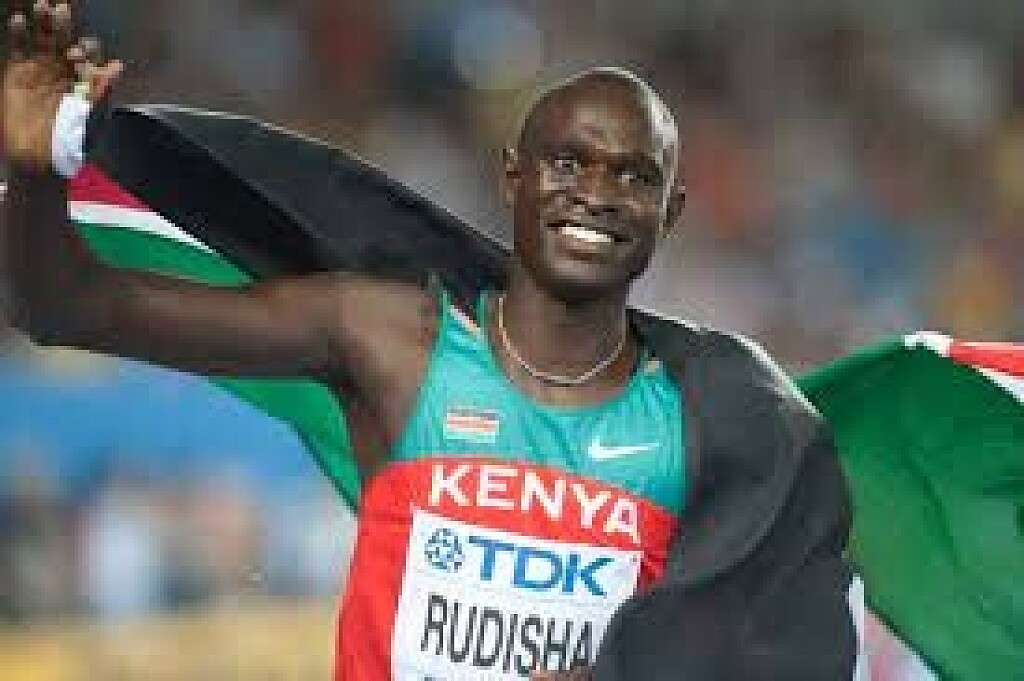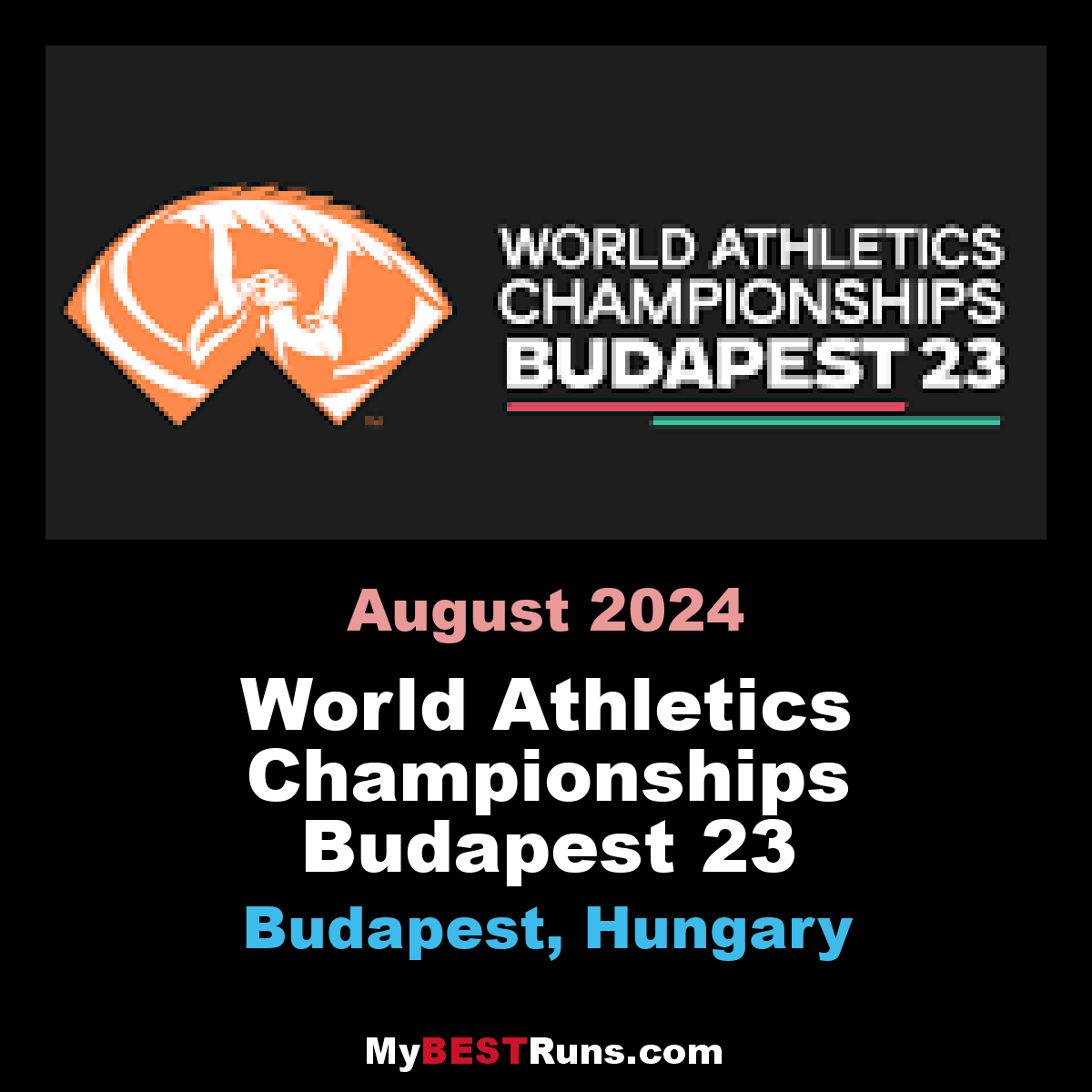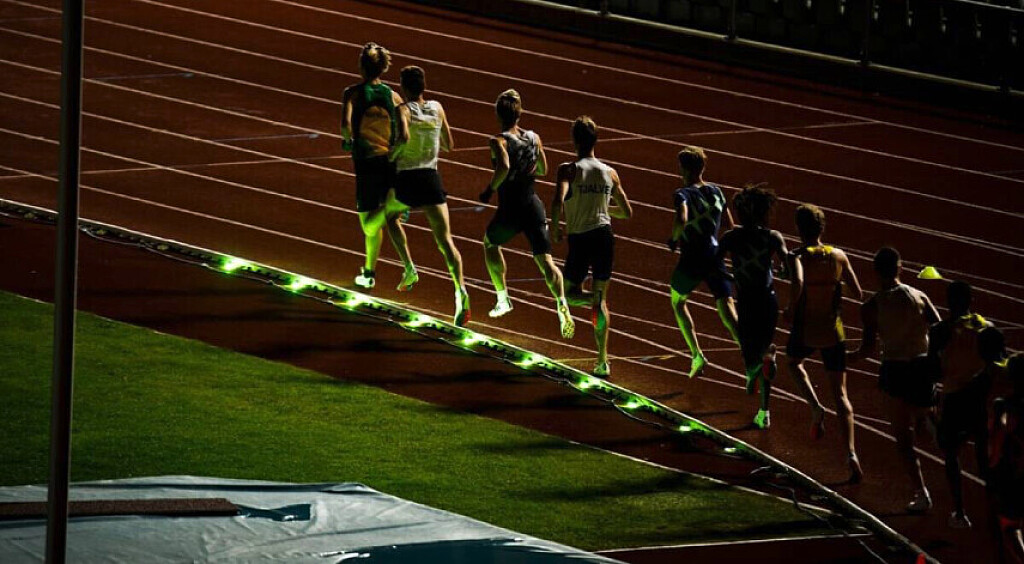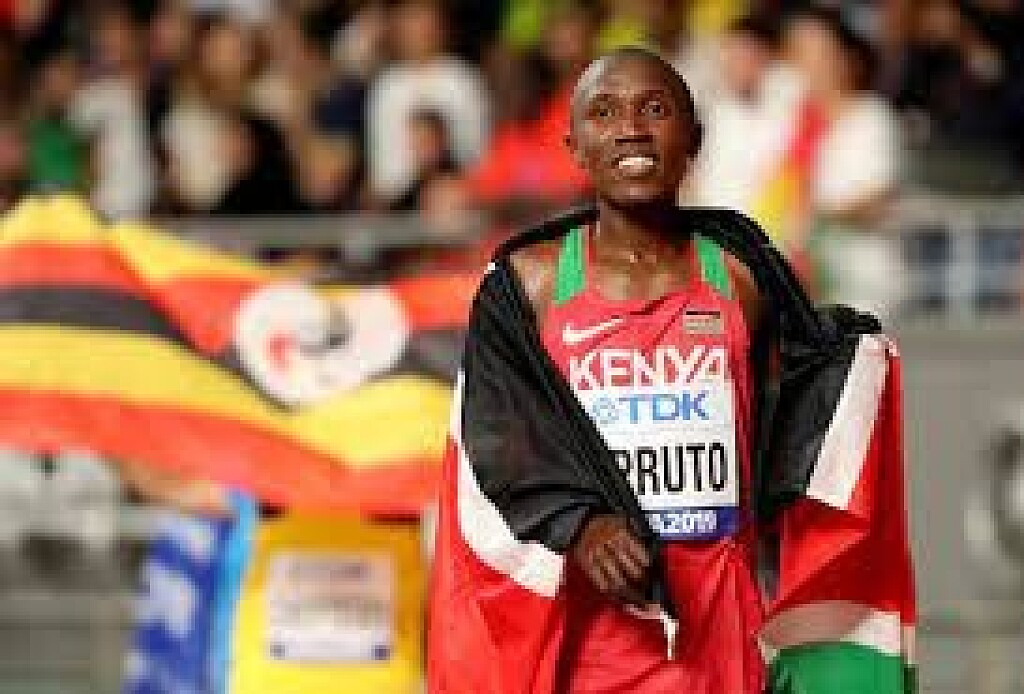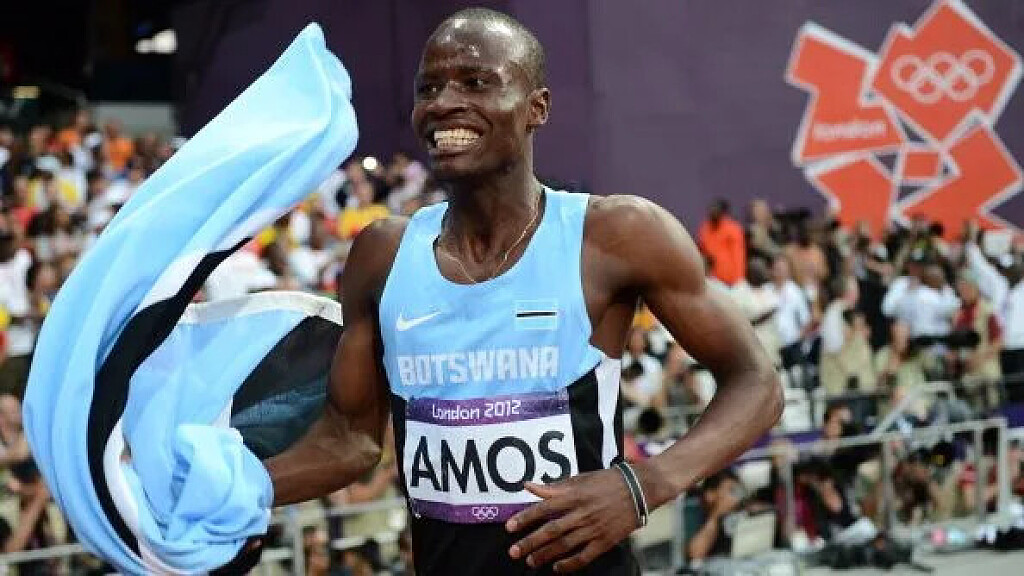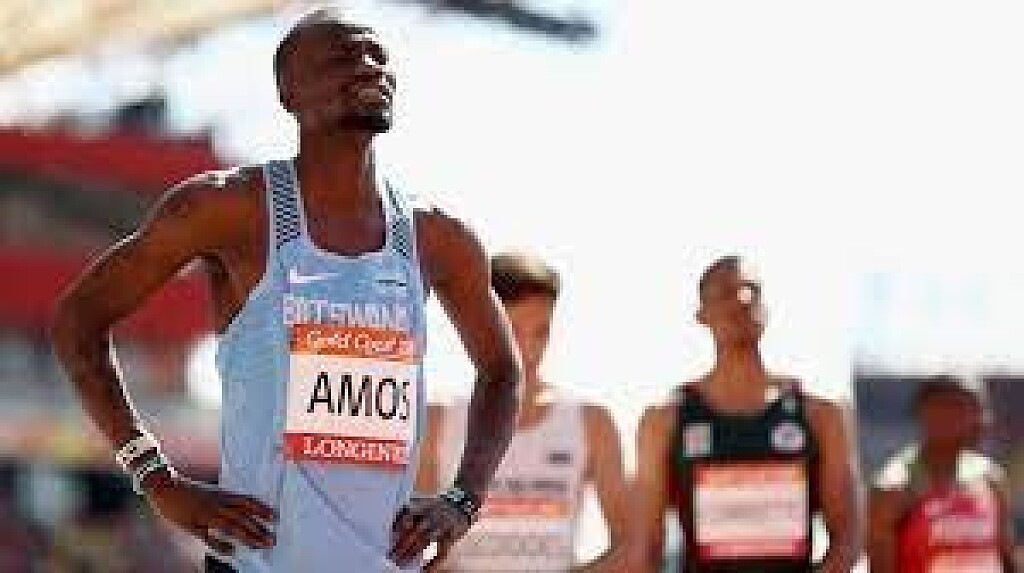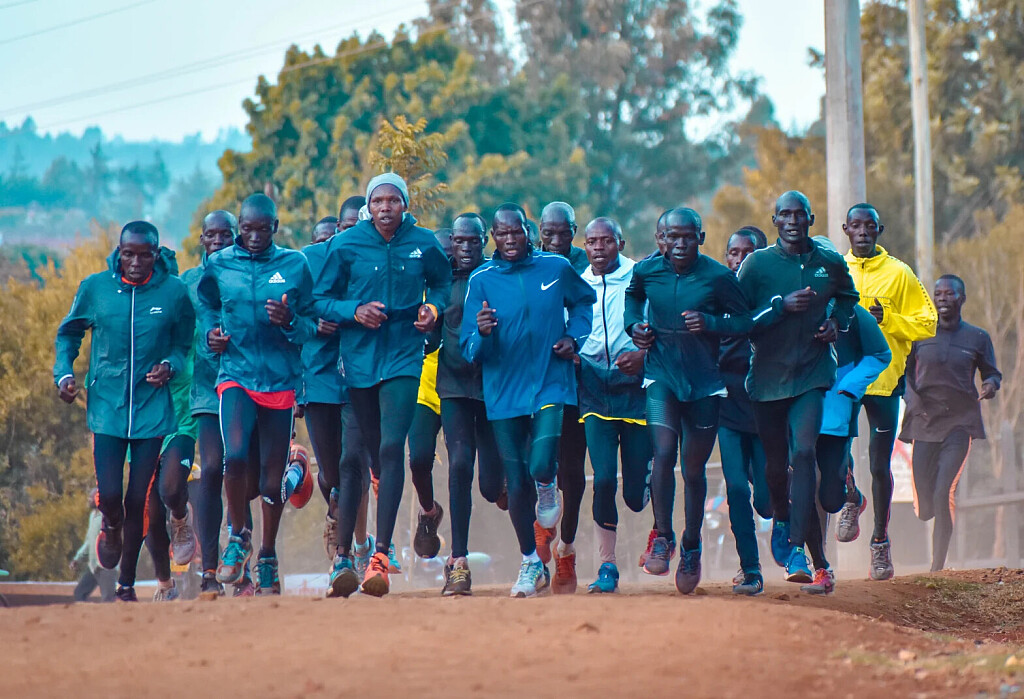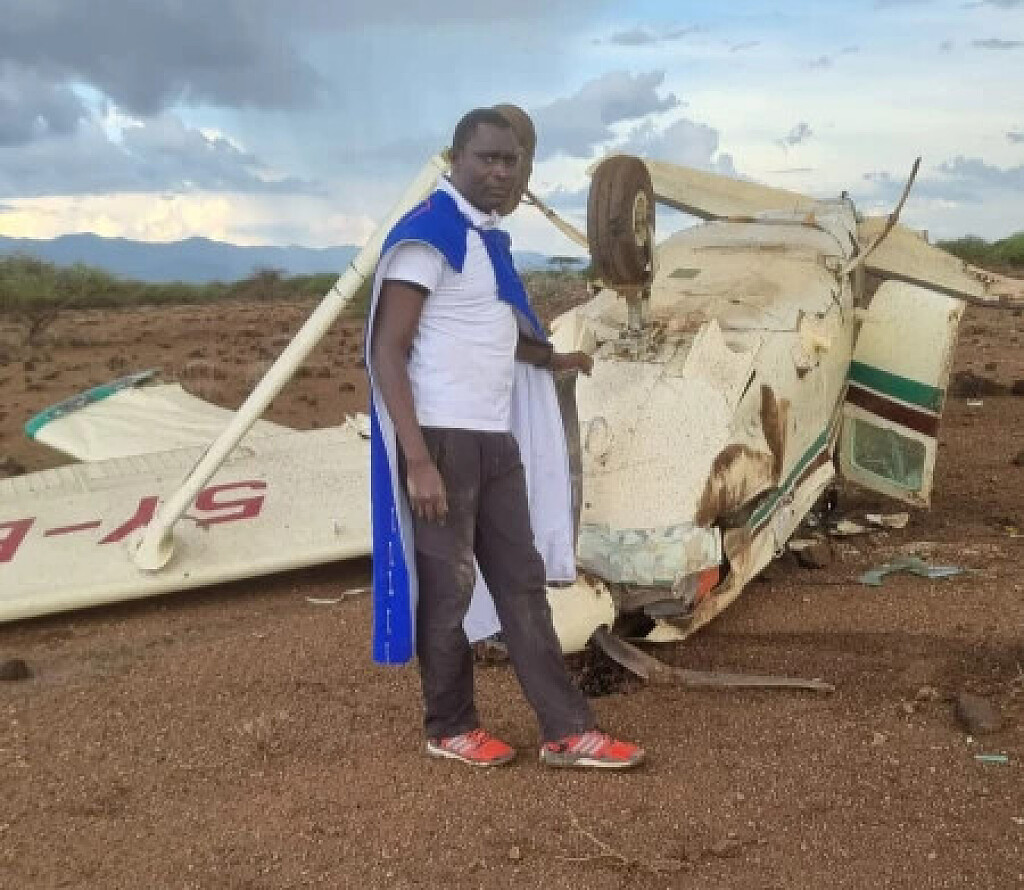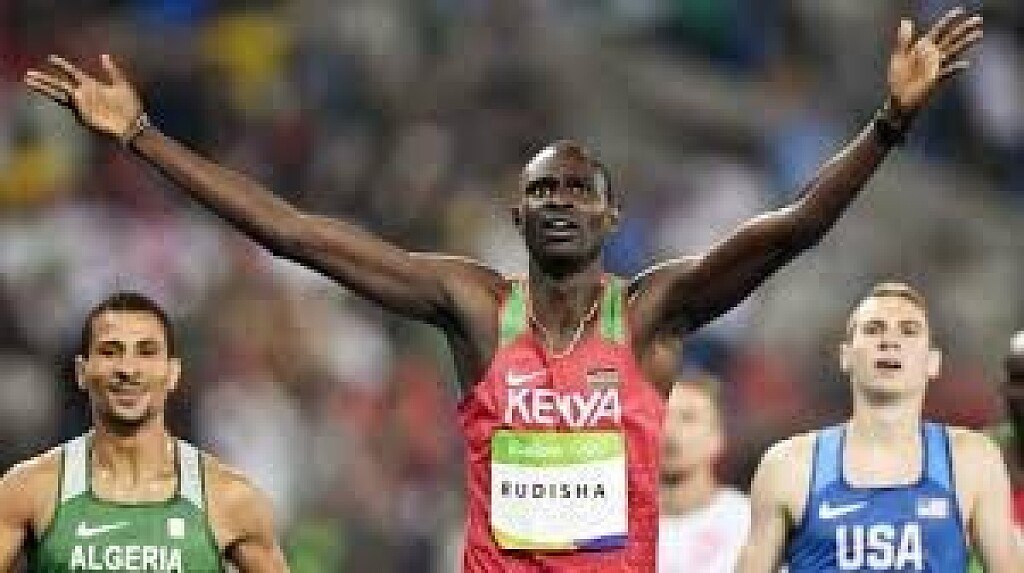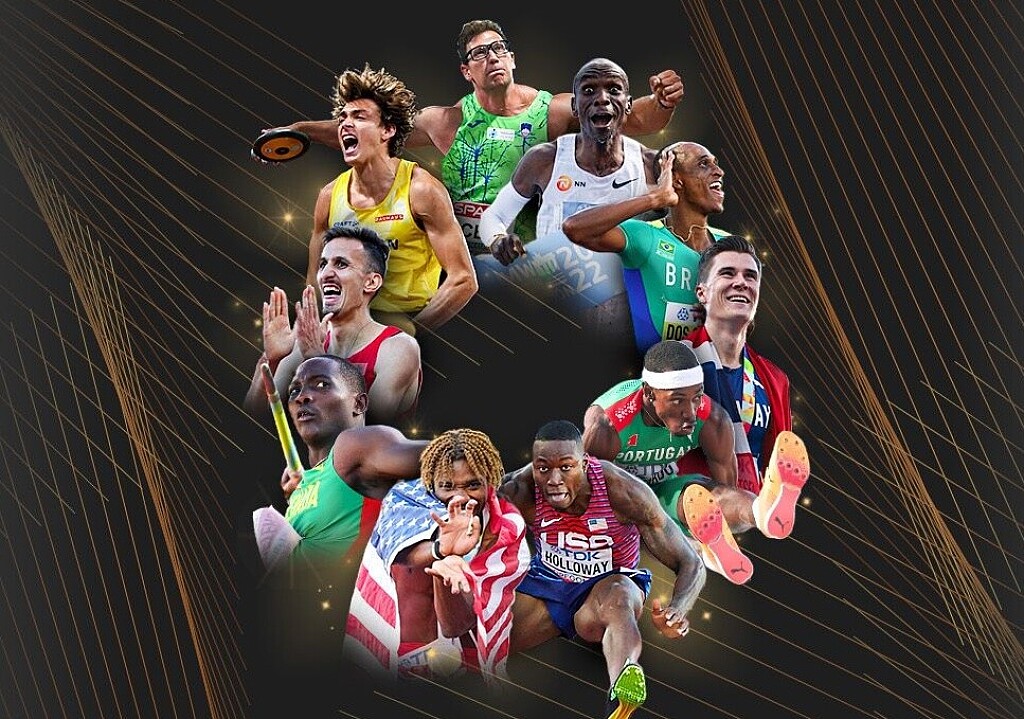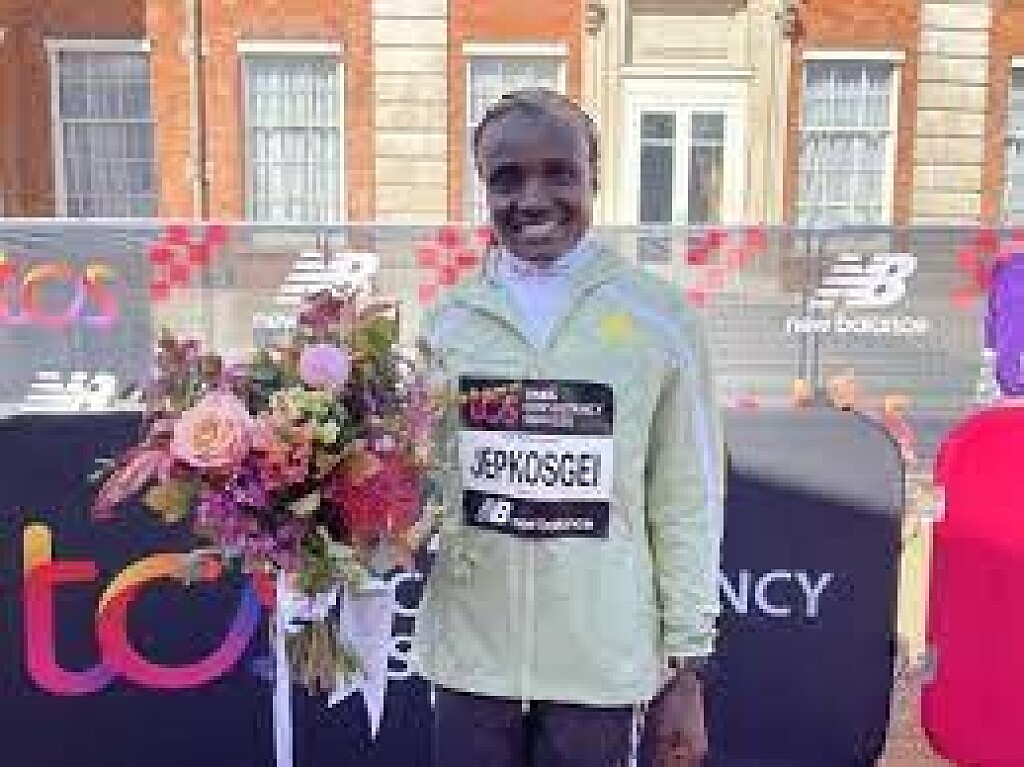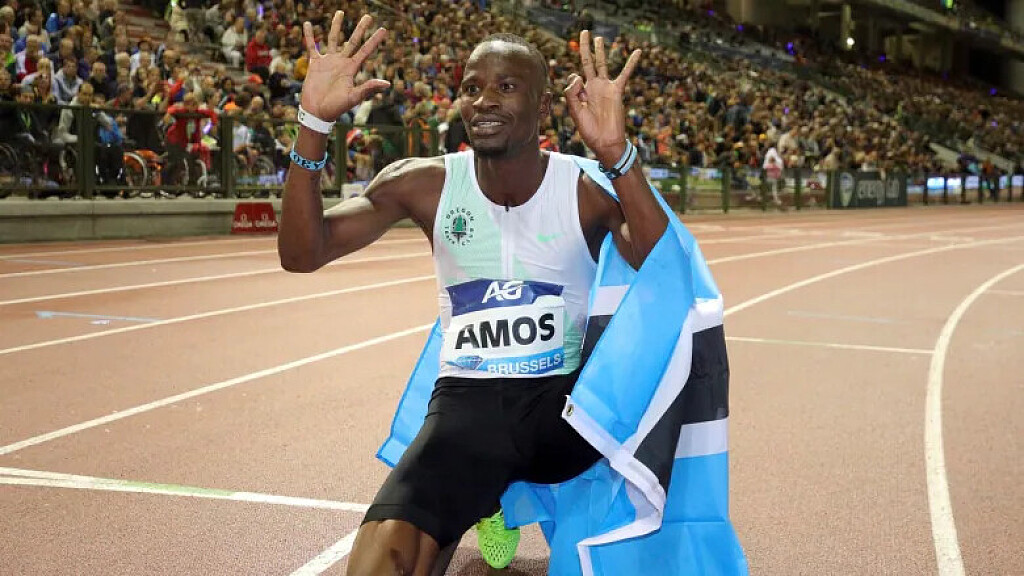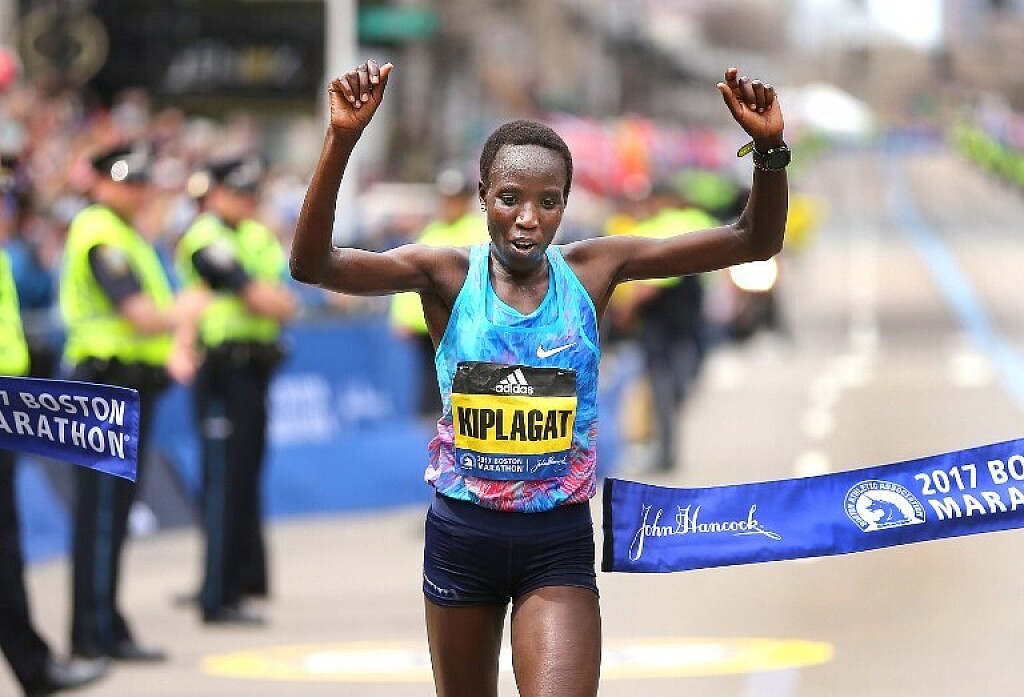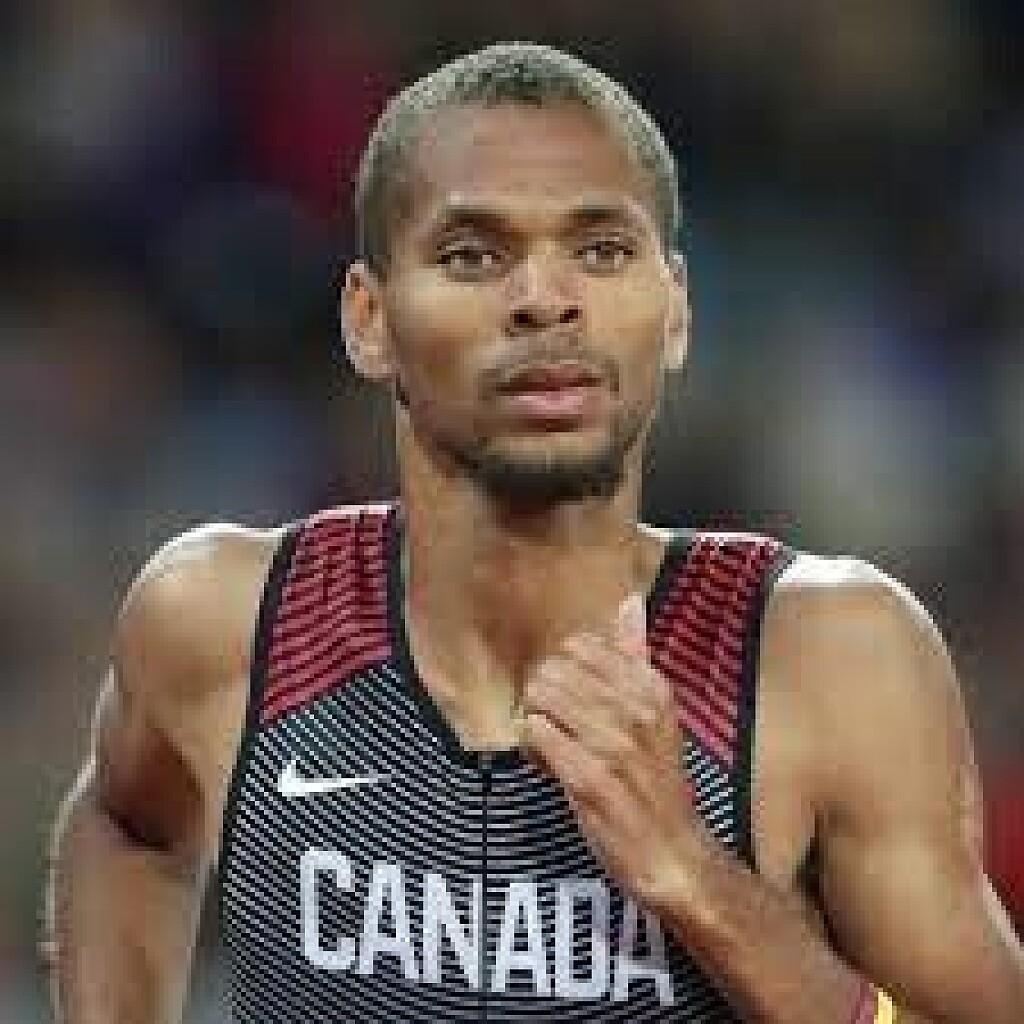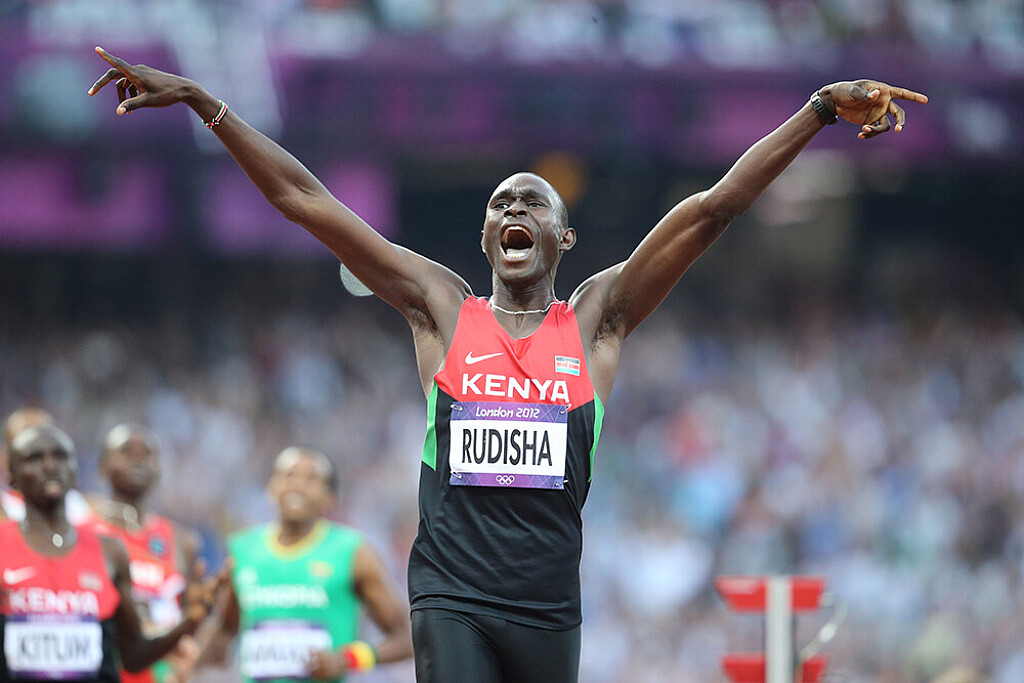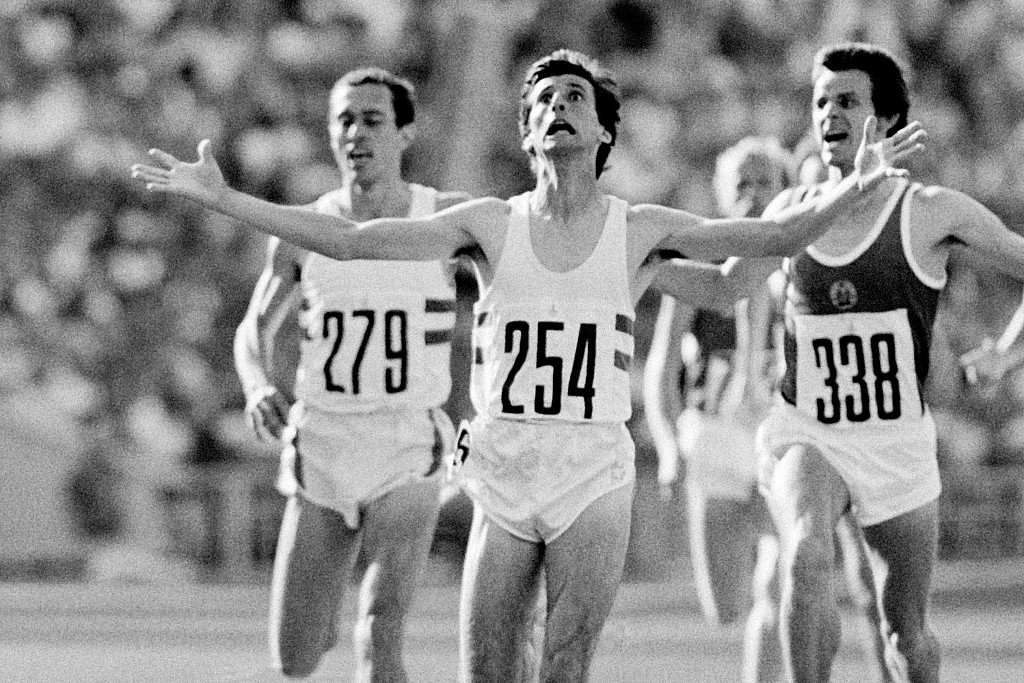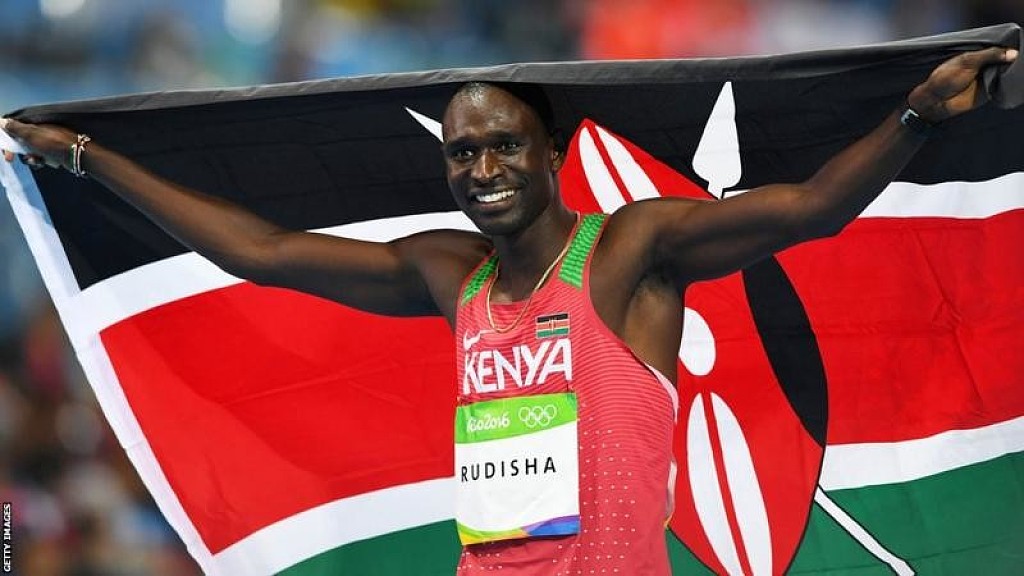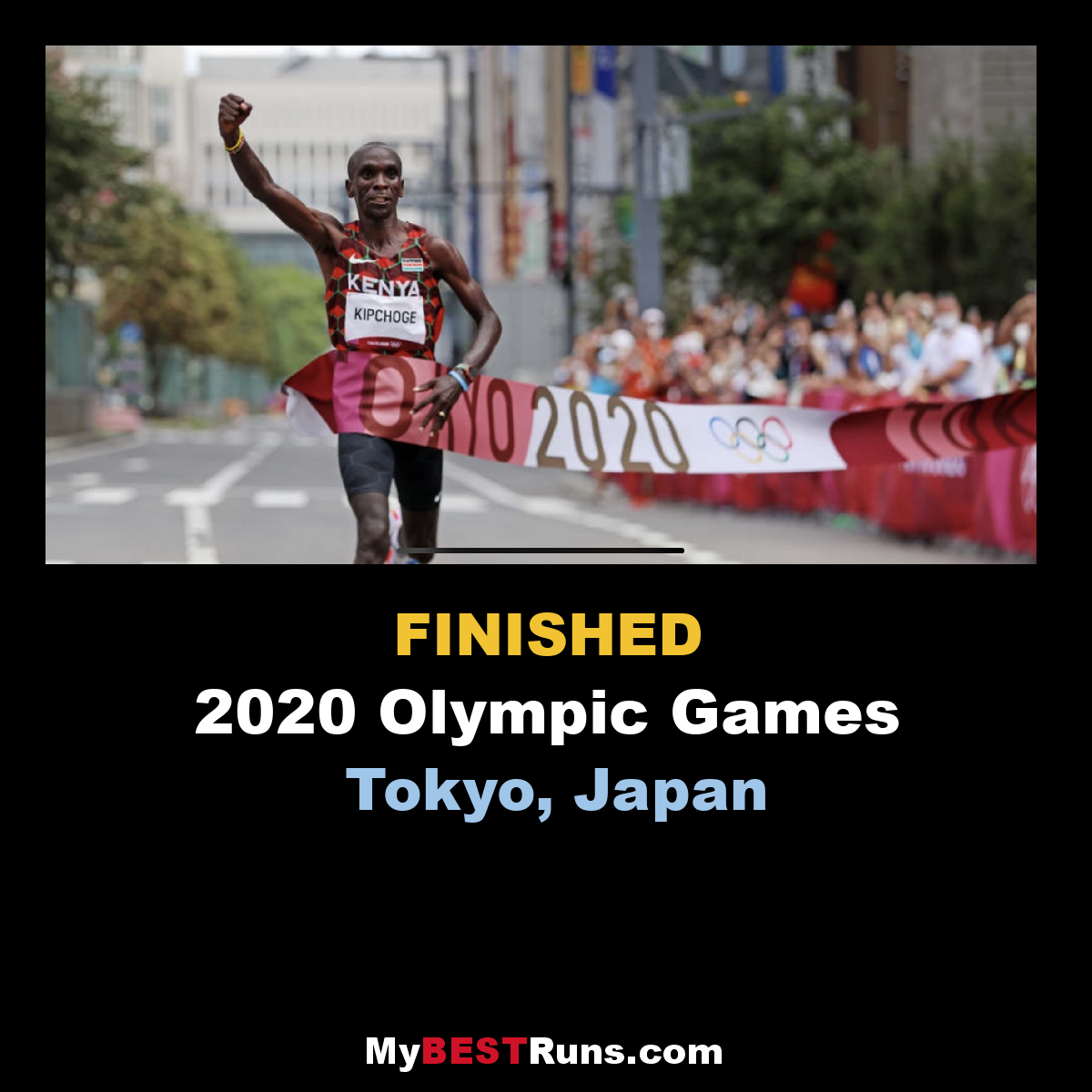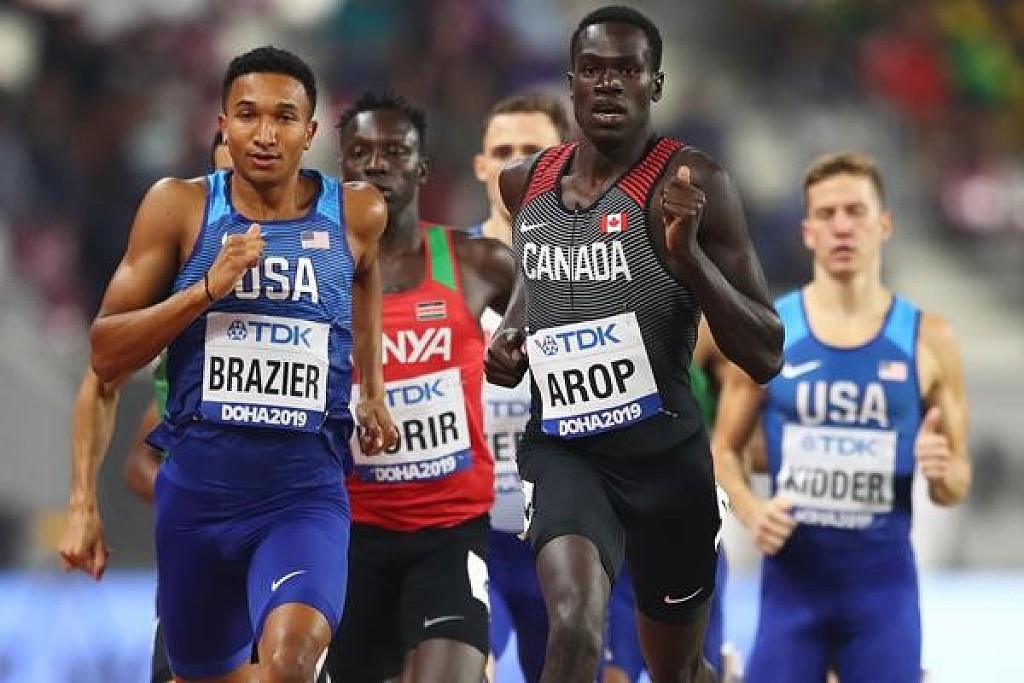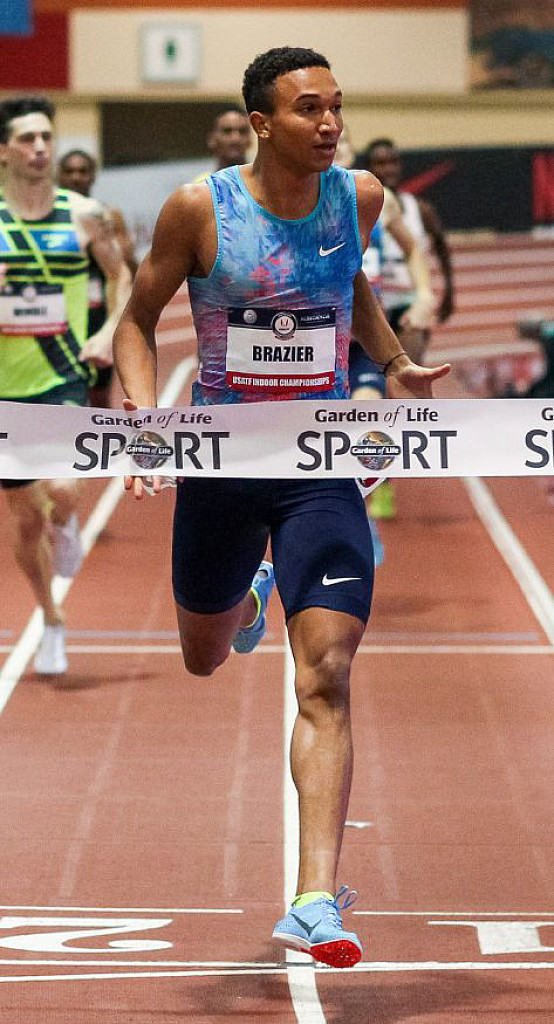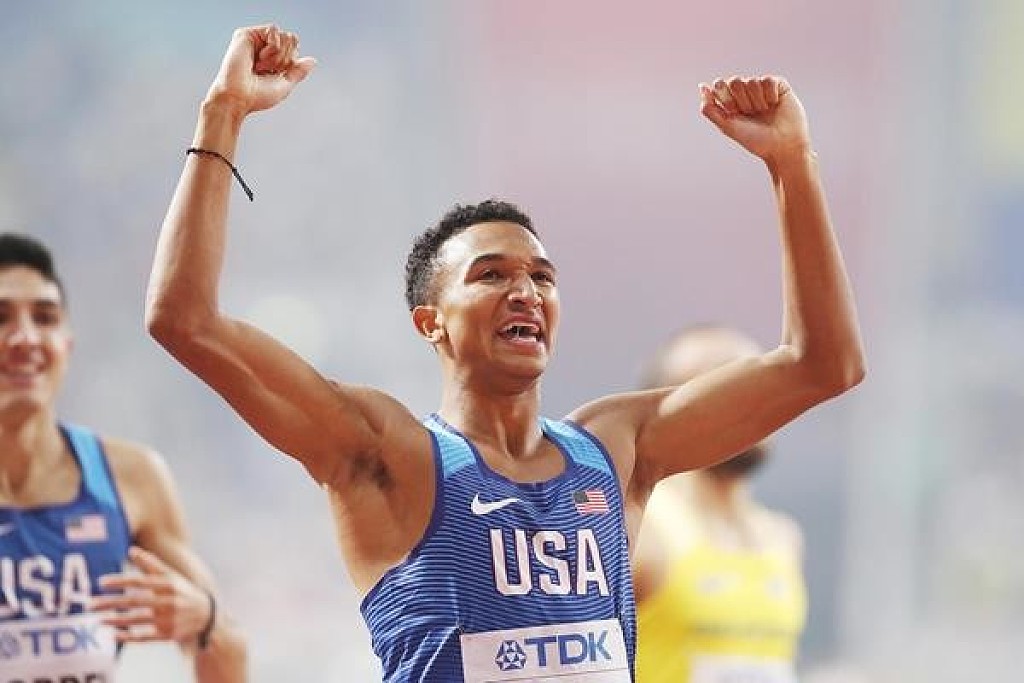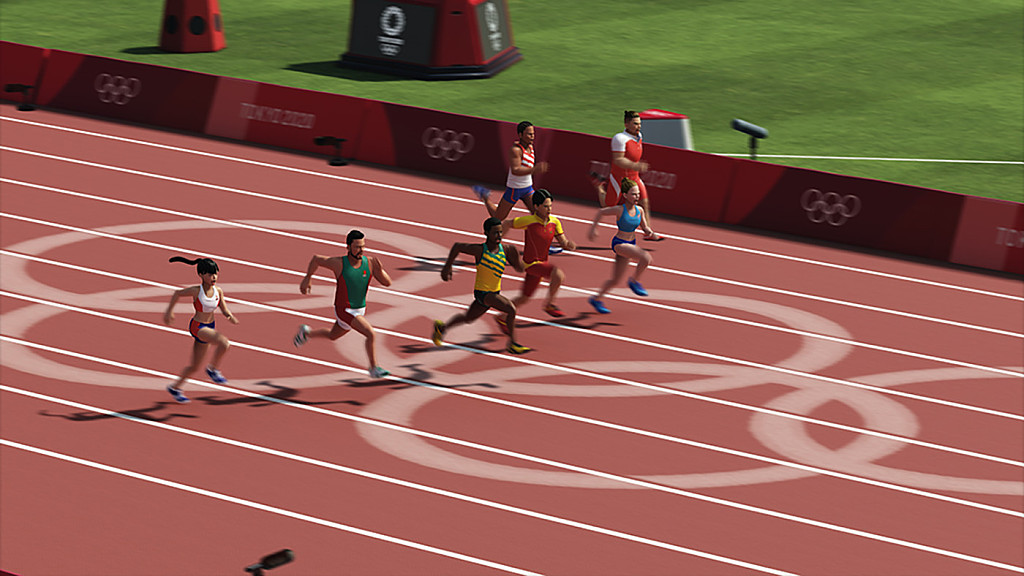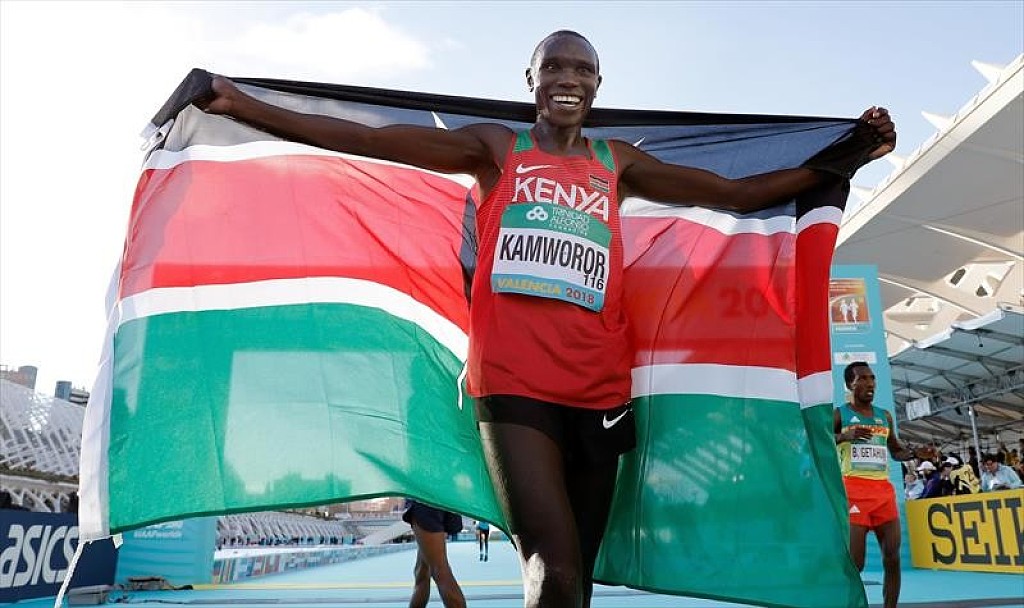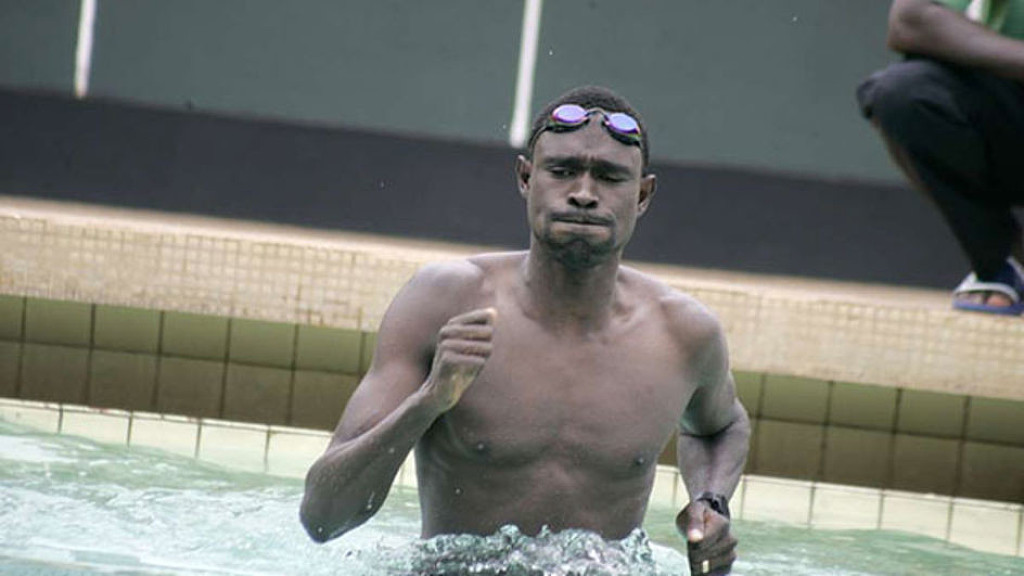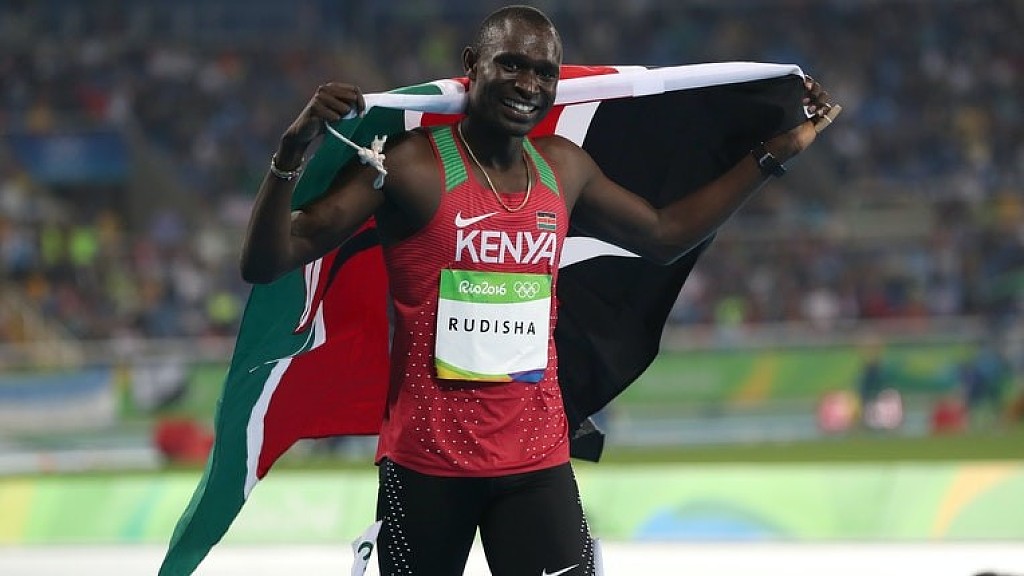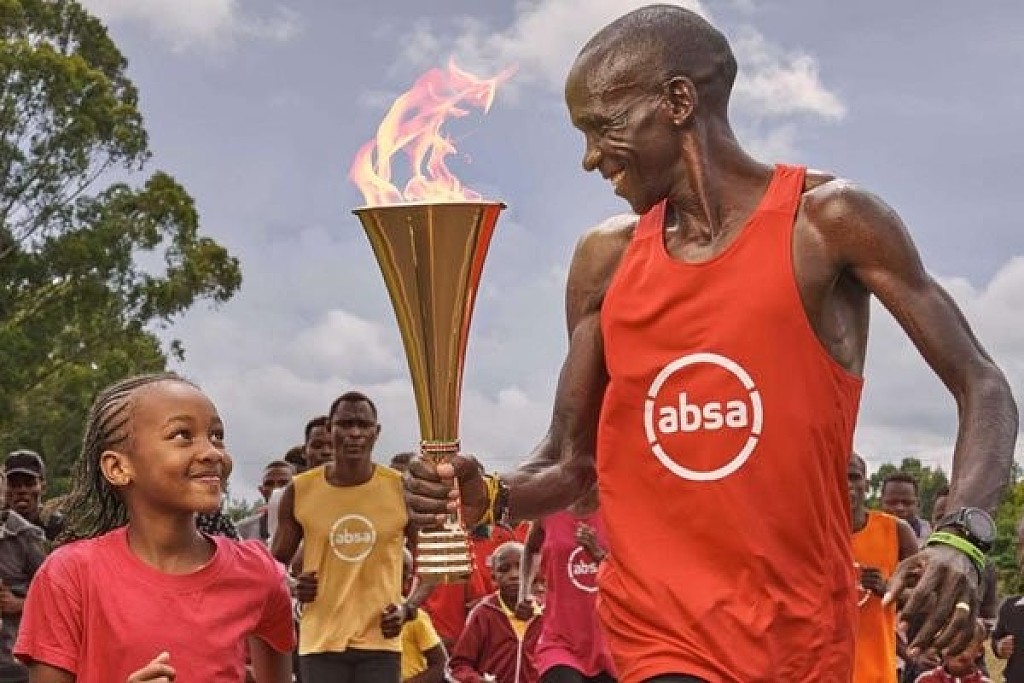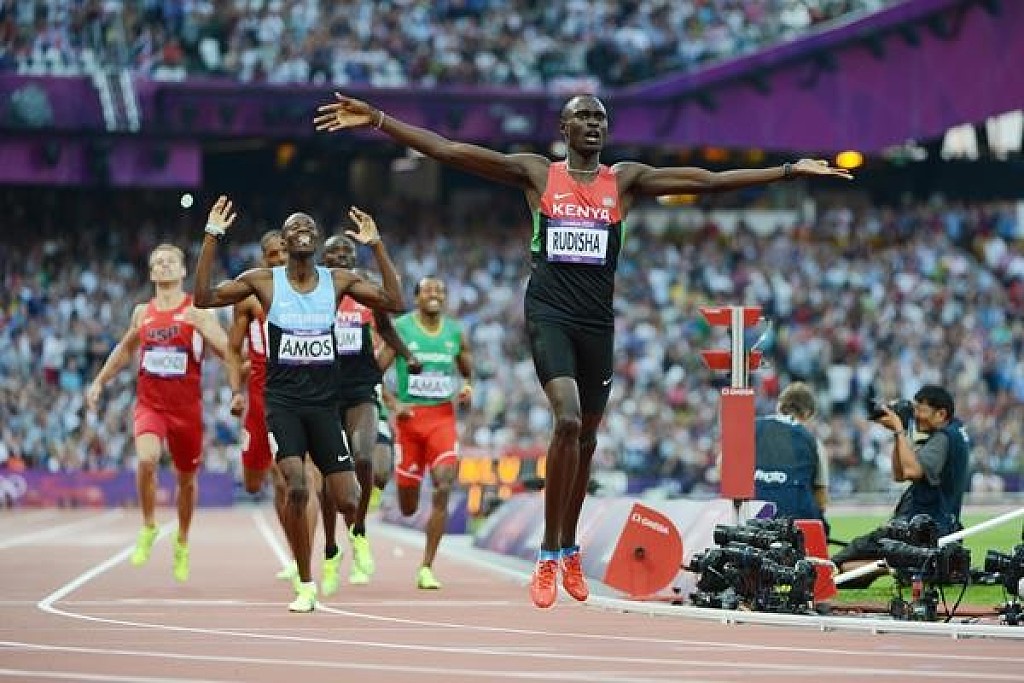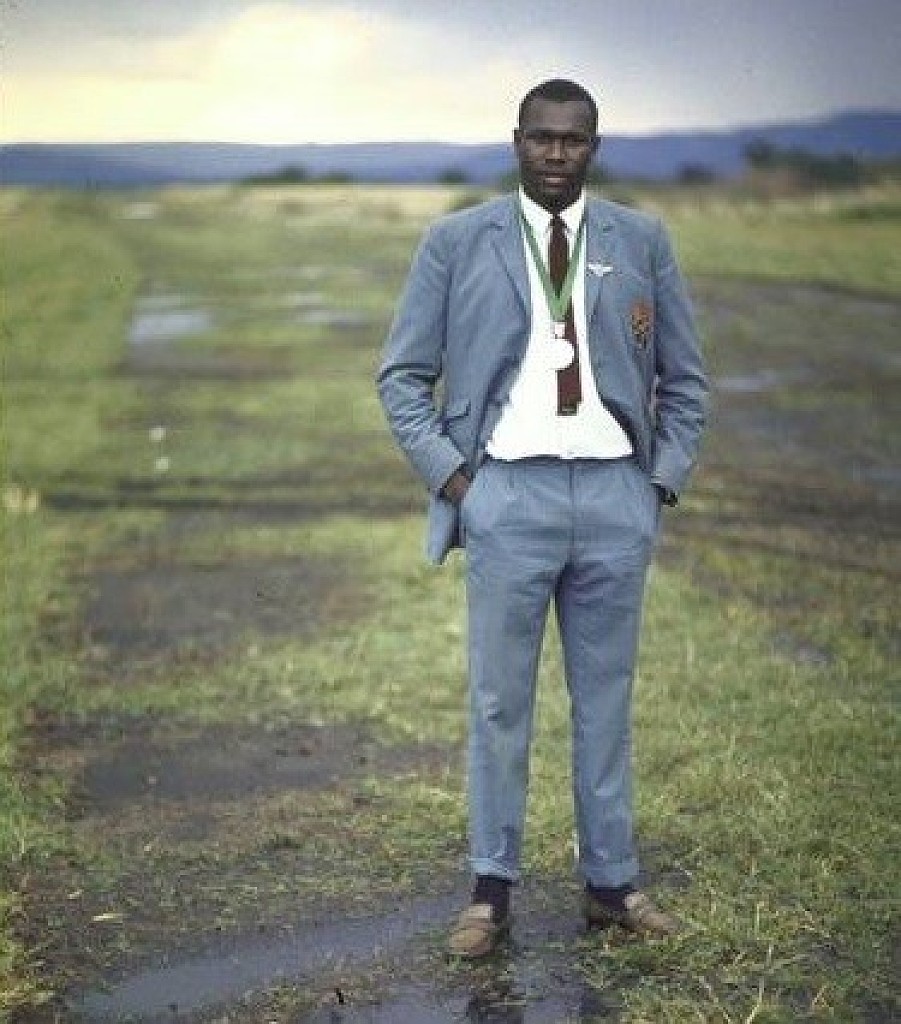Running News Daily
Running News Daily is edited by Bob Anderson. Send your news items to bob@mybestruns.com Advertising opportunities available. Train the Kenyan Way at KATA Kenya and Portugal owned and operated by Bob Anderson. Be sure to catch our movie A Long Run the movie KATA Running Camps and KATA Potato Farms - 31 now open in Kenya! https://kata.ke/
Index to Daily Posts · Sign Up For Updates · Run The World Feed
Articles tagged #David Rudisha
Today's Running News
Emmanuel Wanyonyi Named Male Track Athlete of the Year
Kenya’s Emmanuel Wanyonyi has been named Male Track Athlete of the Year, a recognition that felt inevitable after a season marked by dominance, composure, and electrifying performances on the global stage. At just 20 years old, Wanyonyi has already rewritten expectations in the men’s 800 meters—and 2025 proved to be his breakthrough year.
Wanyonyi consistently displayed the kind of front-end speed, race intelligence, and finishing strength that separates champions from contenders. His victories across the Diamond League circuit, combined with his commanding global championship run, made him the clear favorite for the award.
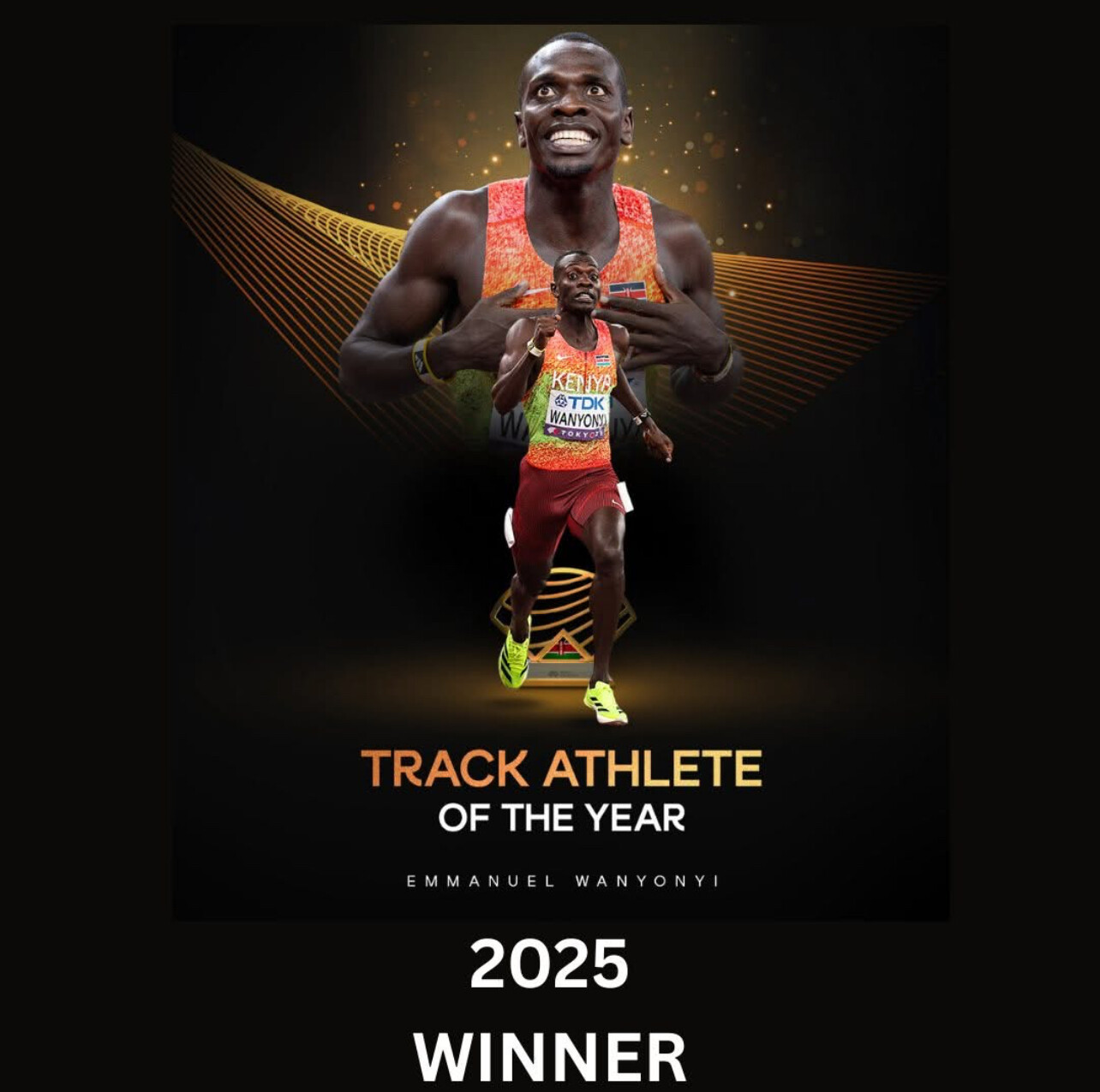
What sets Wanyonyi apart is his ability to take control of races early and maintain a pace that leaves even seasoned competitors scrambling. Whether he was pushing the tempo from the break or waiting to unleash a decisive final burst, Wanyonyi showed maturity well beyond his age.
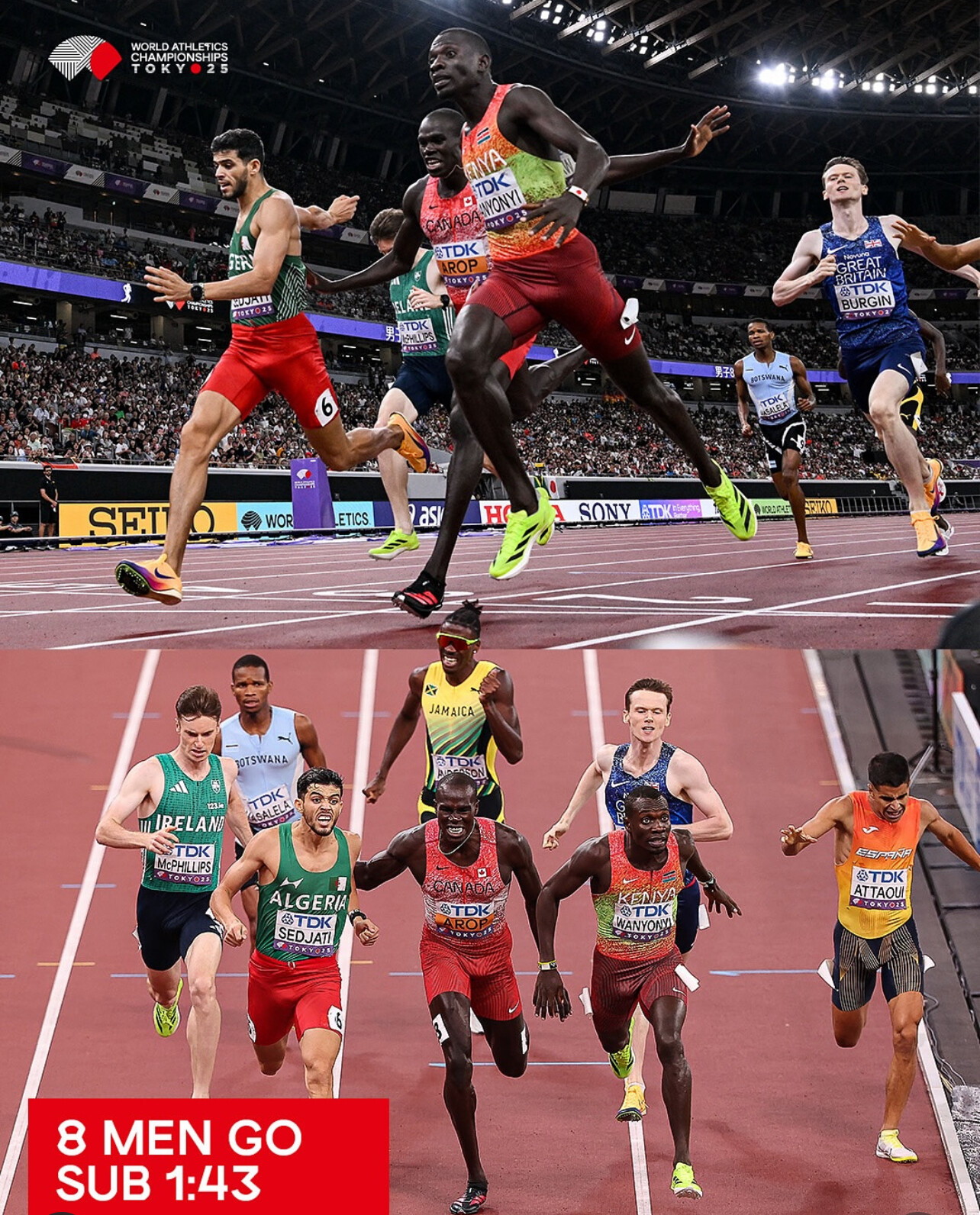
Could anyone else have challenged him?
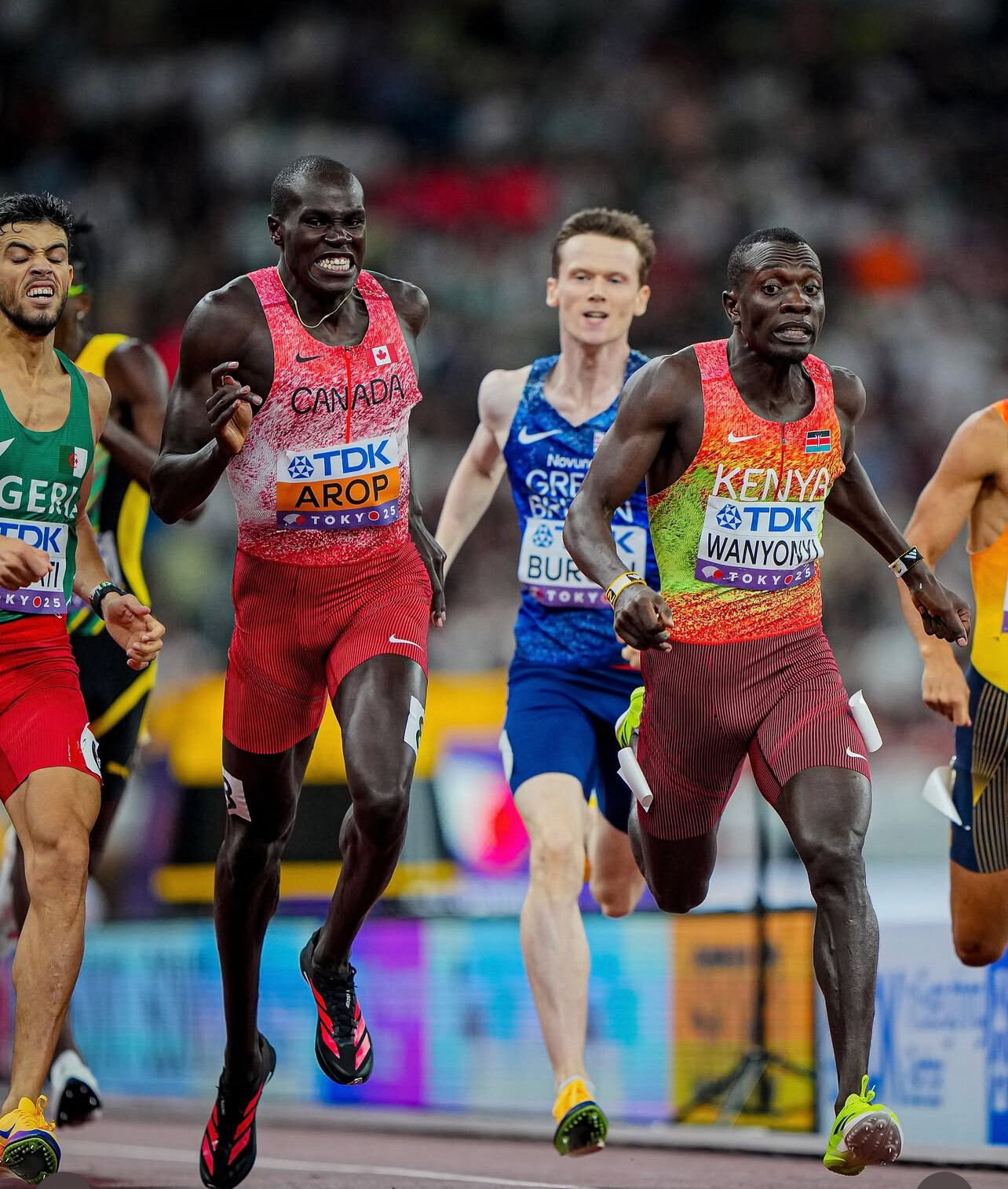
In truth, only a handful came close. Canada’s Marco Arop, the reigning world champion from 2023, mounted a strong season and pushed Wanyonyi in several marquee races. Algeria’s Djamel Sedjati also delivered standout performances. But no one matched Wanyonyi’s consistency, his fearlessness, or his results across the year’s biggest stages.
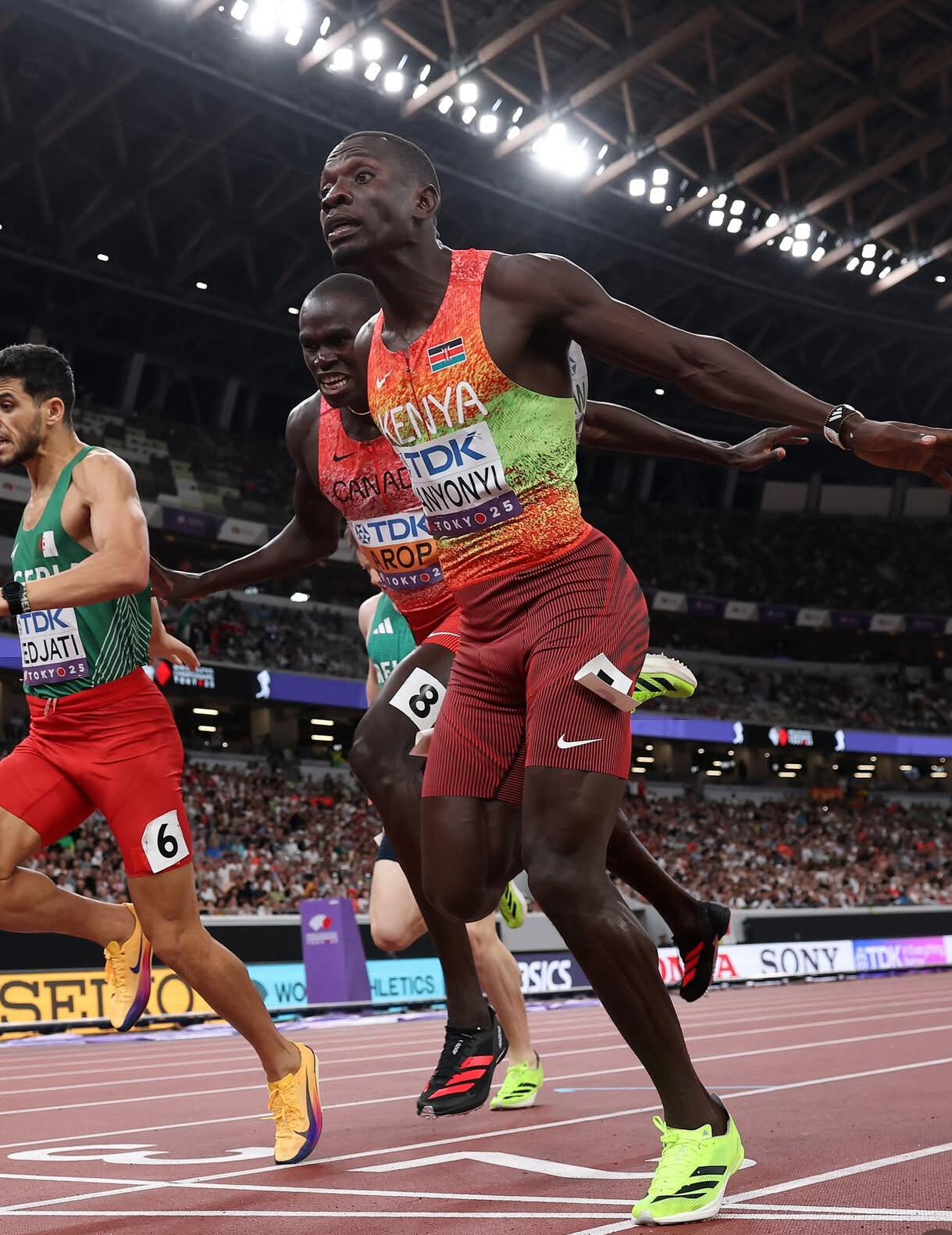
Wanyonyi’s rise is also seen as a resurgence for Kenya’s middle-distance dominance, echoing the eras of David Rudisha and Wilson Kipketer. Coaches and analysts agree: we may only be seeing the beginning.
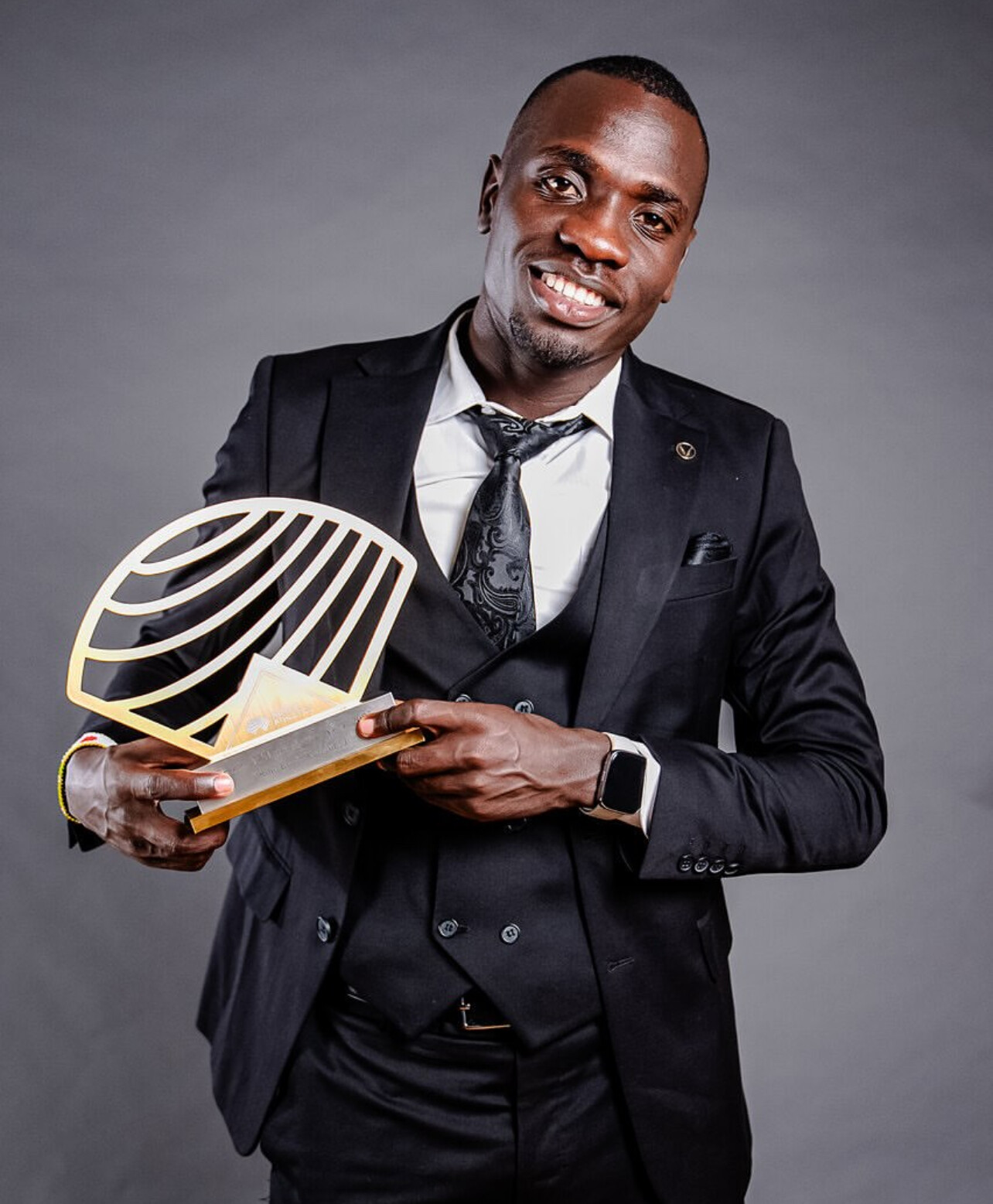
As 2026 approaches, Wanyonyi now stands as the man to beat—and the face of the next generation of 800m excellence.
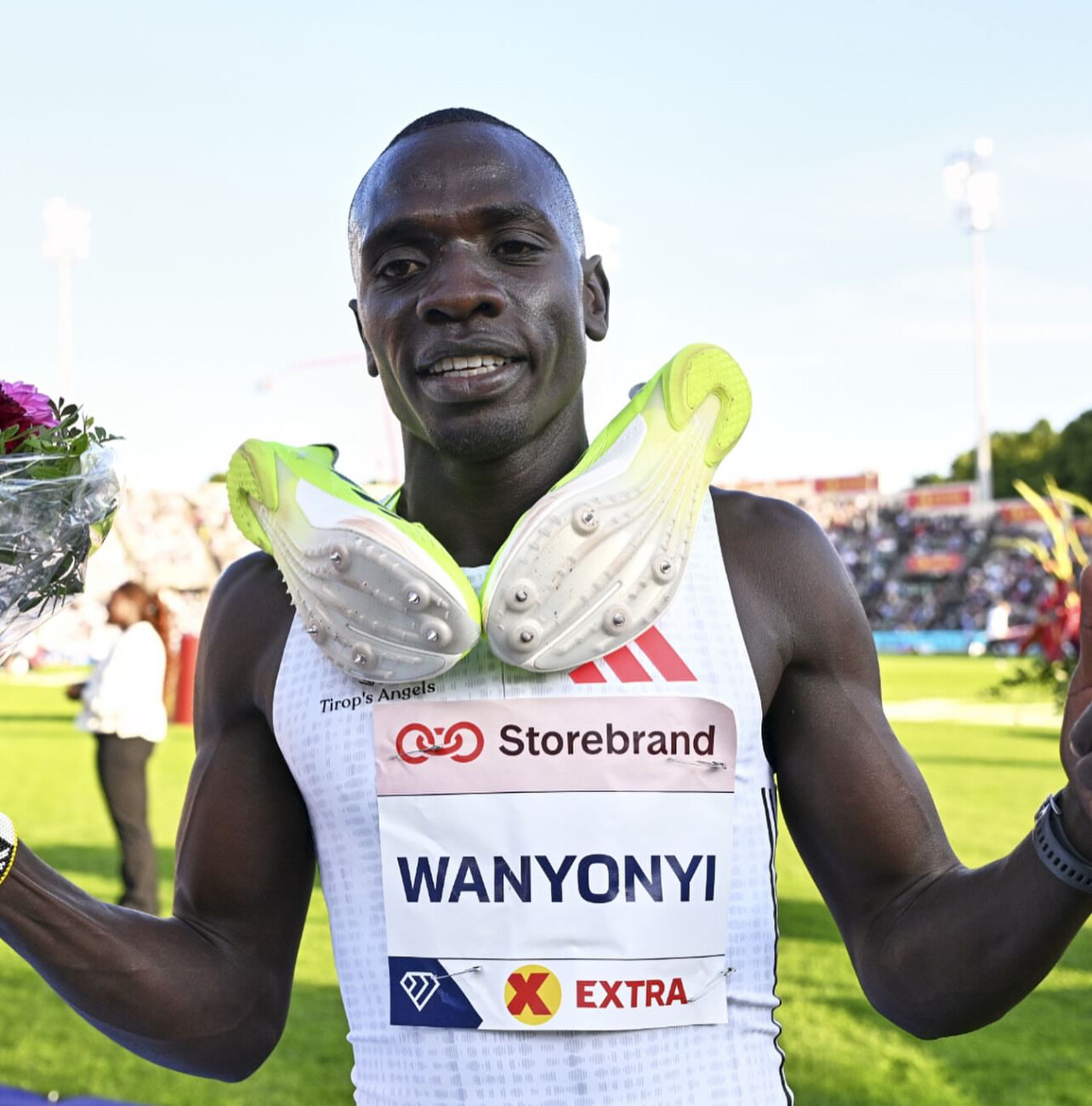
by Boris Baron
Login to leave a comment
David Rudisha’s Golden Run: A Moment Etched in Olympic History
Photo by internationally known photographer Mark Sherman
London, August 9, 2012 — The roar of the crowd at Olympic Stadium reached a fever pitch as David Rudisha of Kenya surged down the home straight, arms wide in triumph. Moments earlier, the world had witnessed history: Rudisha not only won the men’s 800 meters but shattered the world record with a time of 1:40.91, becoming the first man to break 1:41.
What made Rudisha’s run extraordinary was the way he achieved it — leading from the gun, running every lap faster than the last, and pulling the entire field to personal bests, national records, and season bests. It was a race with no pacemakers, just pure front-running brilliance.
The image captured here by internationally acclaimed photographer Mark Sherman freezes the exact moment Rudisha crossed the finish line — the embodiment of speed, power, and grace. His outstretched arms and triumphant expression tell the story: a champion at the peak of his powers, representing Kenya with pride.
Rudisha’s London 2012 performance remains one of the greatest races in Olympic history, a masterclass in middle-distance running. More than a decade later, his world record still stands, a testament to the perfect combination of talent, strategy, and fearless execution.
by Boris Baron
Login to leave a comment
Monaco Diamond League Preview: Distance Fireworks Expected from 800m to 5000m
The prestigious Monaco Diamond League meet is set to ignite the track today, with a thrilling lineup of distance races headlined by Olympic medalists, world record holders, and rising stars. With world-best times under threat, all eyes turn to Monaco’s lightning-fast track where history is often made July 11.
Men’s 800m – 2:23 p.m. ET
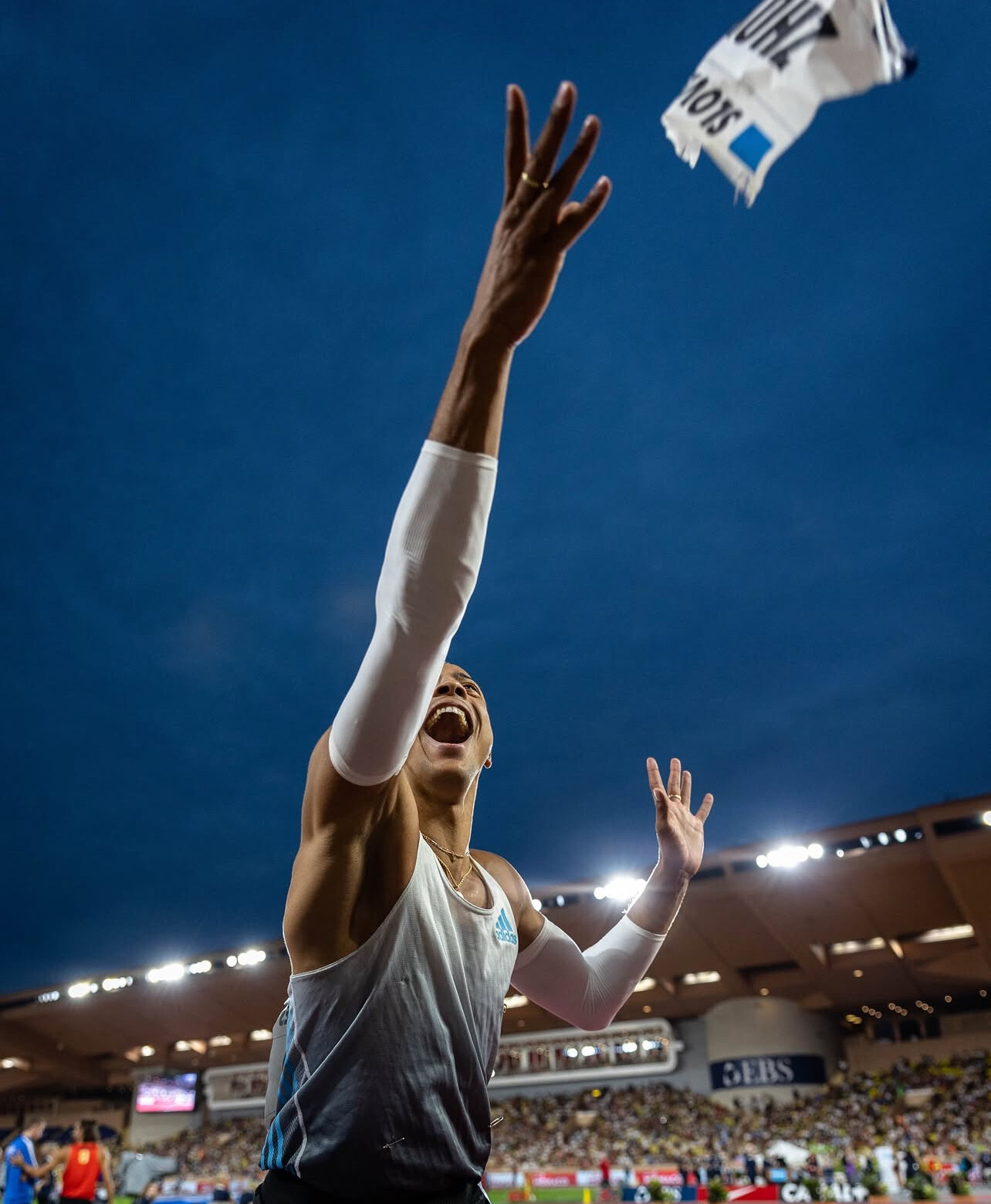
Arguably the most anticipated race of the day, the men’s 800m features seven of the eight Olympic finalists, and talk of David Rudisha’s legendary 1:40.91 world record is swirling. The pace will be red-hot, with athletes hungry to establish themselves ahead of the Paris Olympics.

Expect fireworks early. The pacing is likely to be aggressive, and with such a deep field, a sub-1:43 clocking may not even guarantee a podium spot. With a record on the line, this race is not to be missed.
Women’s 1000m – 2:43 p.m. ET
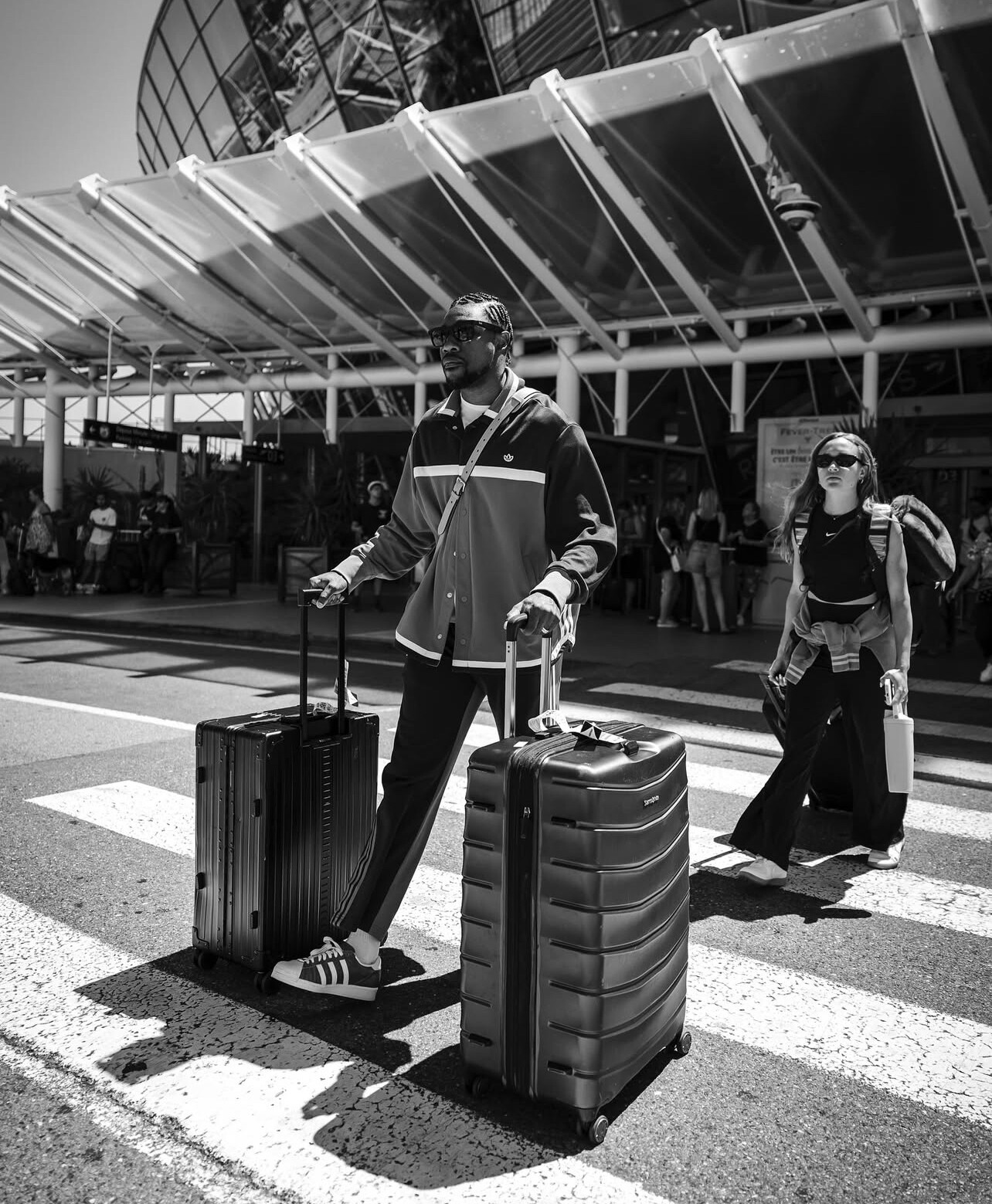
The rarely-run but always-exciting 1000m could see the 28-year-old world record of 2:28.98, set by Svetlana Masterkova in 1996, finally fall. Faith Kipyegon, the undisputed queen of middle distance, came close with a 2:29.21 earlier this year and owns the second-fastest time ever. She’s the clear favorite to take another crack at history.
Australia’s Jess Hull brings impressive credentials too, coming off a 3:52.67 1500m (the third-best of her career) and showing solid speed with a 1:58.58 800m PB. Also in the mix are:
• Mary Moraa, 800m world champion, with a 2:33.43 1000m PB,
• Nelly Jepchirchir (2:31.24 PB),
• Jemma Reekie (2:31.11 PB),
• Sinclaire Johnson and Addy Wiley, both looking to move up in distance.
With a blend of speed and endurance, this event has record-breaking potential.
Men’s 5000m – 3:05 p.m. ET
Seven men in today’s lineup have broken 12:50 this season, promising one of the fastest 5000m races of the year. Ethiopian sensation Biniam Mehari, just 18 years old, recently stunned with a 26:43.8210,000m win at the Pre Classic and a 12:45.93 at the Oslo Diamond League, where much of the spotlight went to Nico Young’s American record.
Sweden’s Andreas Almgren enters with momentum after clocking a 12:44.27 European record, currently the fastest time in the world this year.
The Ethiopian federation will be watching closely, as Yomif Kejelcha (12:47.84) and Hagos Gebrhiwetare also lining up—both seasoned athletes capable of upsets.
Final Word
Monaco has a storied history of delivering some of the fastest middle-distance times on the planet. With stars like Kipyegon, Mehari, and Almgren peaking at just the right time, the stage is set for records to be rewritten.
Stay tuned. If there’s ever a day to witness distance running greatness, this is it.
by Boris Baron
Login to leave a comment
Emmanuel Wanyonyi Is Redefining Middle-Distance Greatness at Just 20
At just 20 years old, Emmanuel Wanyonyi has emerged as one of the most electrifying talents in middle-distance running. From humble beginnings herding cattle in Kenya’s Trans-Nzoia County to Olympic gold in Paris, Wanyonyi’s rise has been nothing short of extraordinary—and 2025 is shaping up to be his most dominant season yet.
A Champion’s Origin
Born on August 1, 2004, Wanyonyi’s athletic journey began far from stadiums and stopwatches. He left school at age 10 to help support his family, working as a cattle herder. But fate intervened when a local teacher recognized his talent and encouraged him to return to school—and to running.
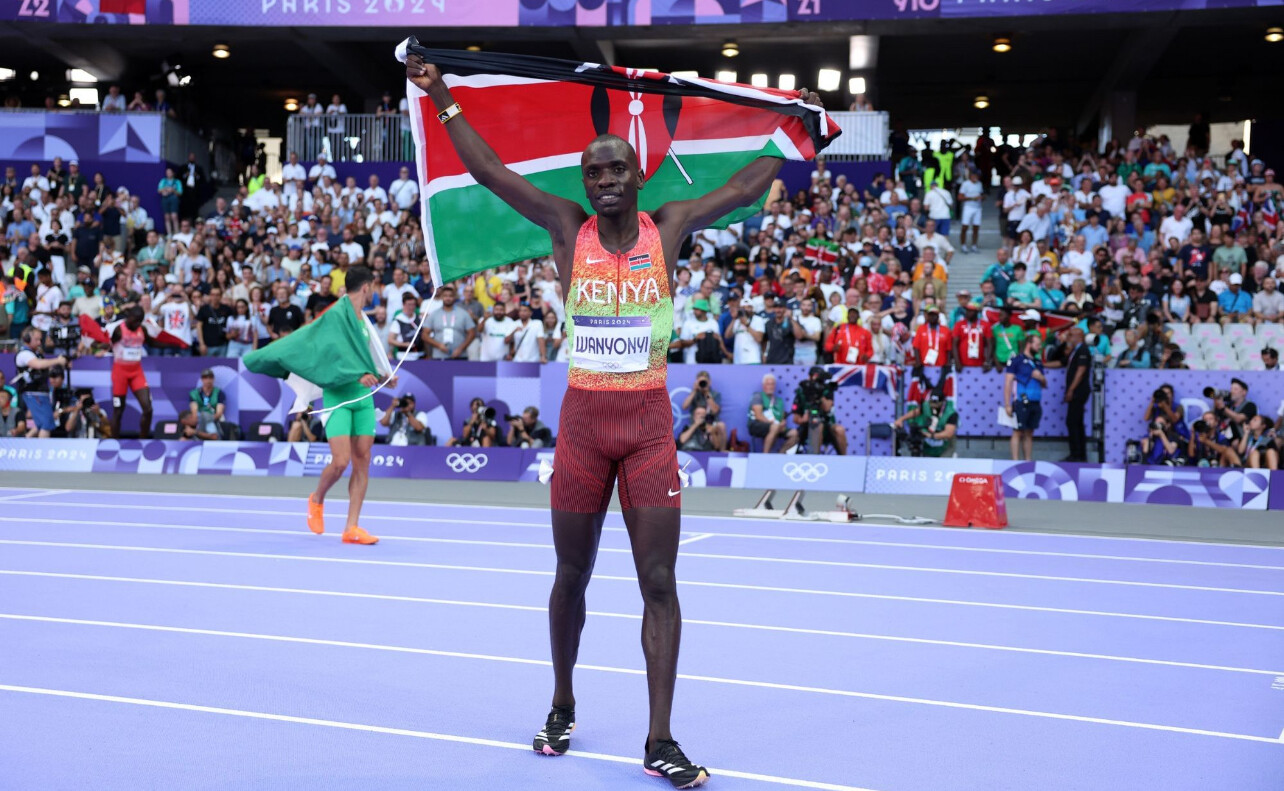
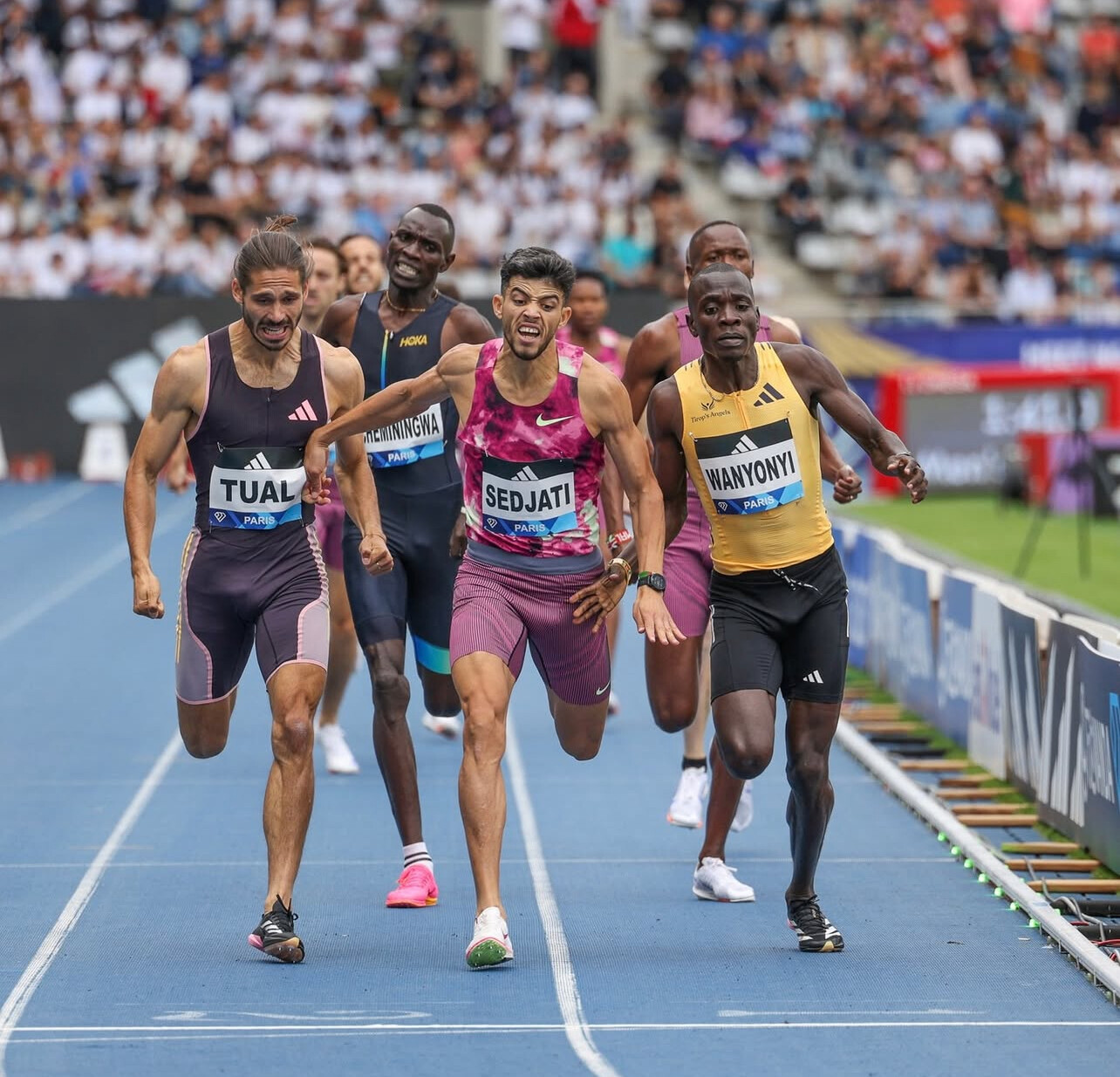
Mentored by 2007 world 800m champion Janeth Jepkosgei and coached by Claudio Berardelli, Wanyonyi made his international debut in style. At the 2021 World U20 Championships, he won the 800m in a championship record time of 1:43.76.
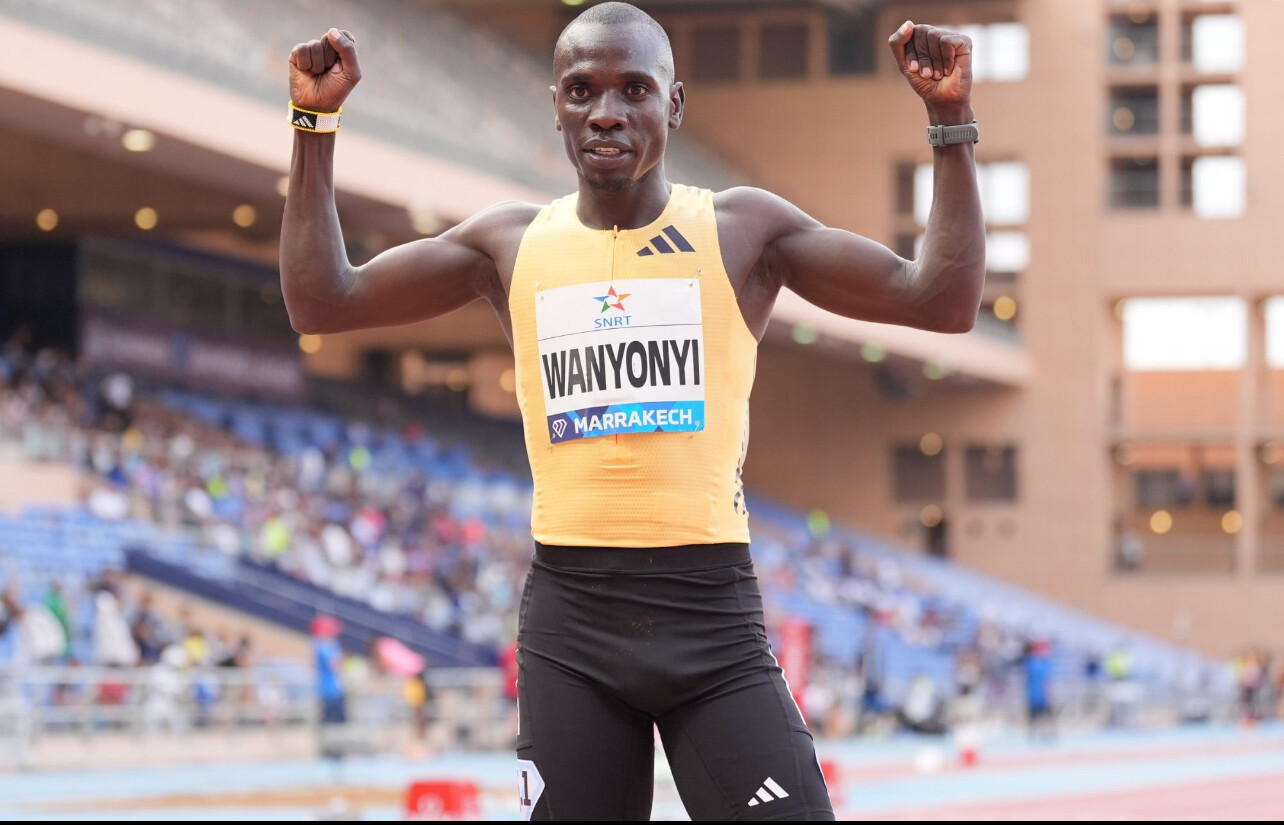
Since then, he has steadily climbed the ranks, placing fourth at the 2022 World Championships, winning silver in 2023, and claiming the ultimate prize—Olympic gold in the 800m at Paris 2024. His time of 1:41.19 was not only a personal best but also the third-fastest in history.
A New Level in 2025
Wanyonyi has wasted no time building on his Olympic success. At the Grand Slam Track event in Kingston this April, he stunned the field in the 1500m, taking down a world-class lineup that included Olympic medalists Josh Kerr, Cole Hocker, and Yared Nuguse. His time of 3:35.18 secured victory and confirmed his elite range beyond the 800m.
The next day, he returned to the track and finished second in the 800m, narrowly beaten by world champion Marco Arop. Wanyonyi’s combined performance earned him the men’s short-distance Slam Champion title and a $100,000 prize.
Just days later, he returned to the top step of the podium at the Adizero Road to Records event in Germany. Running the road mile, he clocked 3:52.45—his fastest time yet and the third-fastest road mile in history.
What’s Next
Wanyonyi’s next major test will come at the Stockholm Diamond League on June 15, where he’s slated to race the 800m against top international competition, including Djamel Sedjati and Gabriel Tual.
His official 800m personal best is 1:41.11, tied for the second-fastest mark ever alongside Wilson Kipketer. Only David Rudisha has run faster.
With his combination of tactical intelligence, powerful finishing speed, and increasing range, Wanyonyi is not just a rising star—he’s a generational talent already reshaping the middle-distance landscape.
Keep an eye on him. Emmanuel Wanyonyi isn’t just running races—he’s rewriting history.
by Boris Baron
Login to leave a comment
Kenya vs Ethiopia What Sets Their Runners Apart
When it comes to distance running, no two countries are more dominant—or more frequently compared—than Kenya and Ethiopia. From 5Ks to marathons, athletes from these East African nations consistently top podiums and rewrite record books. But while the results may look similar, the paths to victory are often quite different.
Altitude Advantage, Different Terrains
Both Kenya and Ethiopia benefit from high-altitude environments that naturally boost endurance. Kenya’s top training hubs, like Iten and Eldoret, sit between 7,000 and 8,000 feet. Ethiopia’s Bekoji and Sululta offer similar elevations. But terrain matters too: Kenya’s roads are often red clay or uneven gravel, ideal for building strength and resilience. Ethiopia’s runners more frequently train on hills and mountain trails, with steeper and more demanding climbs integrated into daily runs.
Training Philosophies Diverge
Kenyan training is rooted in simplicity and rhythm. Athletes often meet for large group sessions, with a strong focus on tempo runs, long-distance efforts, and unstructured fartleks. The vibe is community-oriented and competitive—if someone surges, the group follows.
In contrast, Ethiopia’s elite training tends to be more individualized and coach-driven. Athletes follow structured schedules with clearly defined paces, recovery sessions, and high-intensity track workouts. The approach is more scientific, and recovery days are strictly observed.
Daily Life and Recovery
Kenyan runners typically live together in camps, waking early to train, followed by long periods of rest. A second run often comes in the late afternoon, and the lifestyle emphasizes minimal distractions.
Ethiopian runners may train in smaller groups and return home between sessions. There’s more variety in how the day is structured, though the focus on discipline remains.
(Photos) Kenyan Training in Iten and Eldoret
1. Mass Training Run in Iten
A striking image capturing a large group of Kenyan runners during a typical morning session on the red dirt roads of Iten, known as the “Home of Champions.”
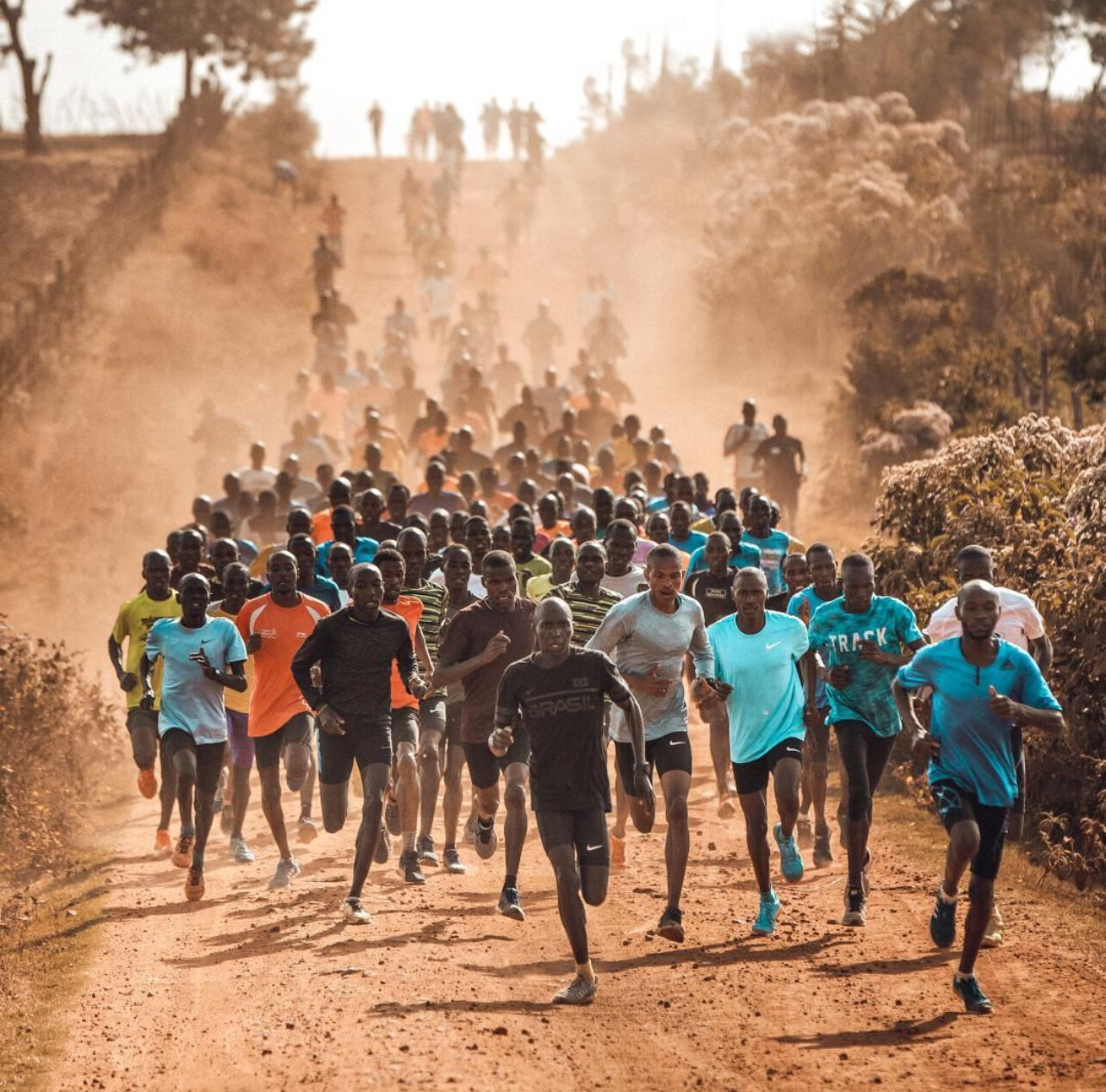
2. Track Workouts in Eldoret
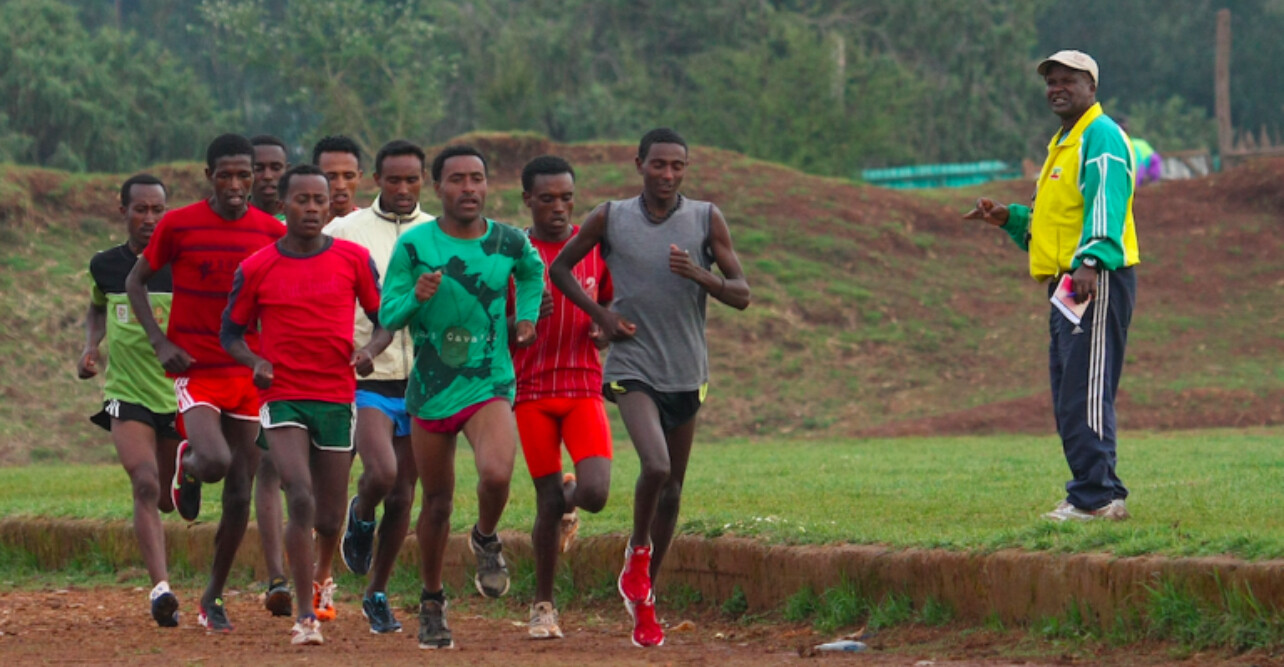
Kenyan marathon runners engaging in interval training at the athletics track in Eldoret, highlighting their emphasis on group cohesion and endurance.
(Photos) Ethiopian Training in Bekoji and Sululta
3. Group Training in Bekoji
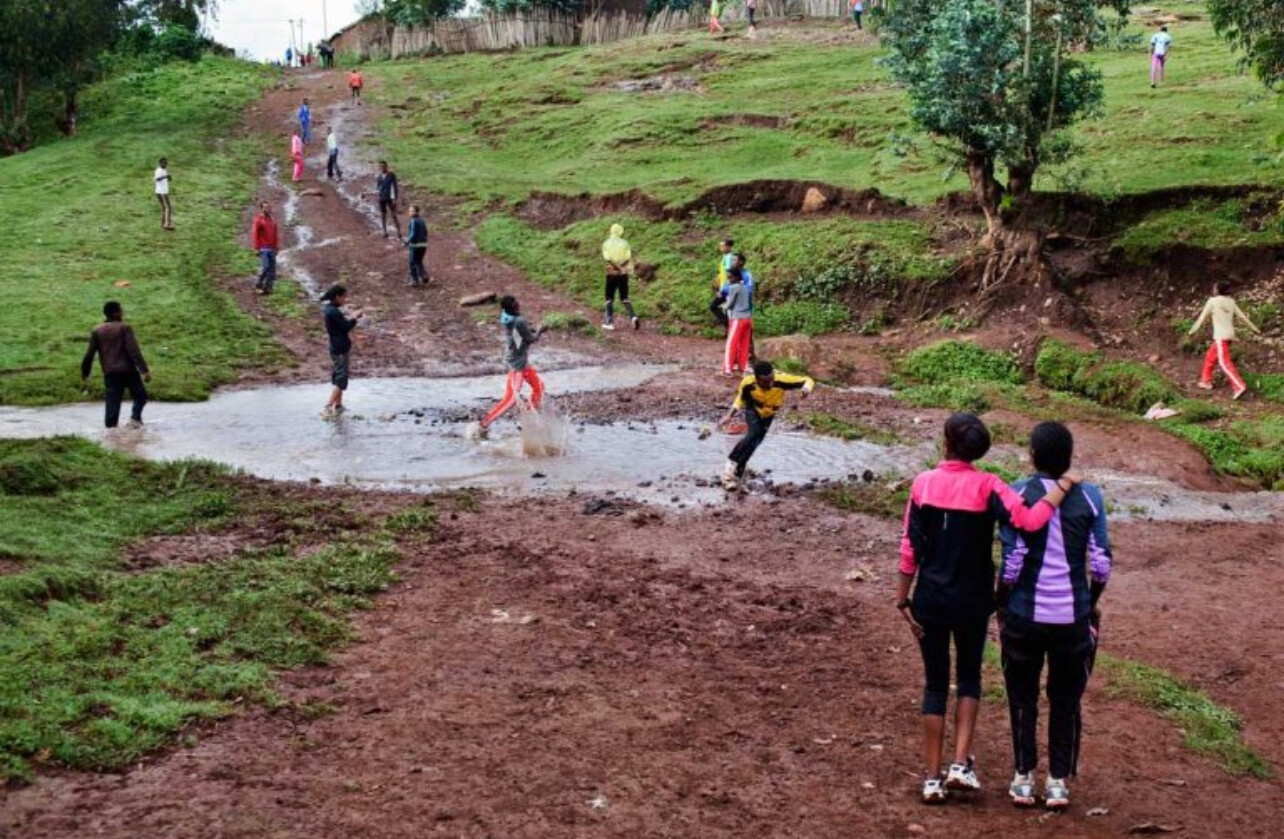
A glimpse into a training session in Bekoji, Ethiopia, showcasing runners on a dirt track, emphasizing their structured and coach-led routines.
4. Trail Running in Sululta
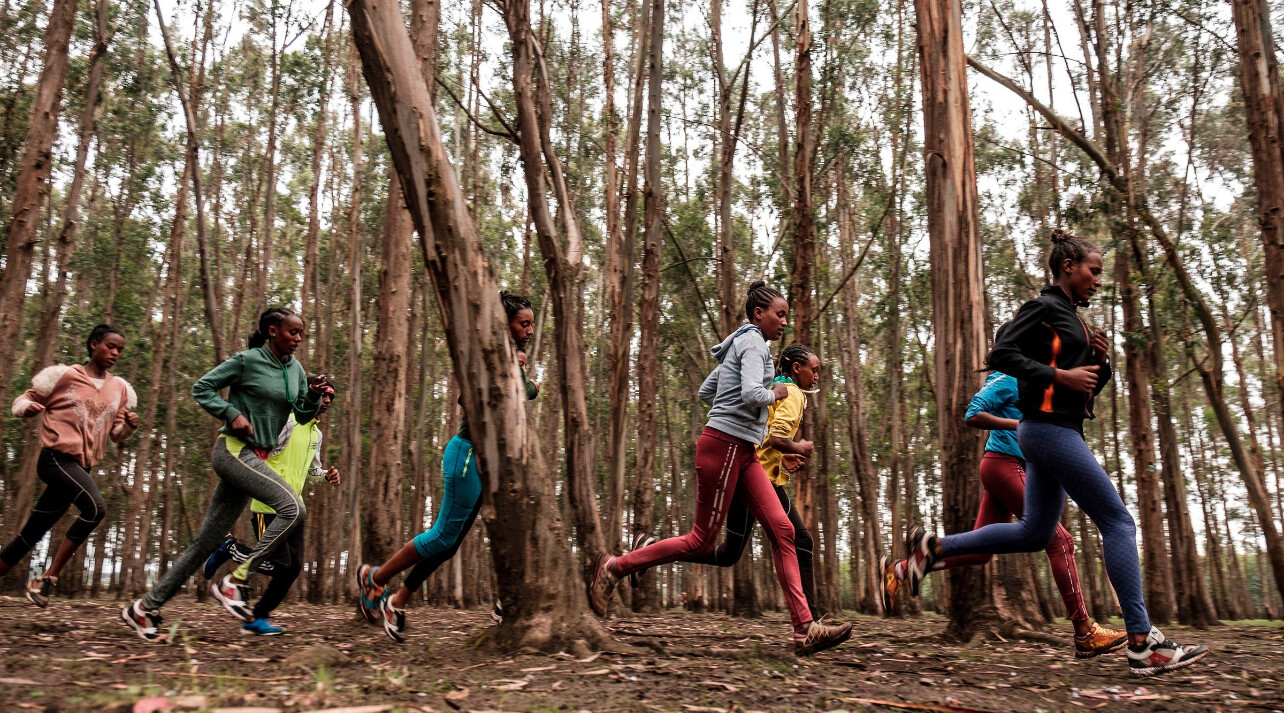
Ethiopian athletes navigating through forested trails in Sululta, reflecting their focus on varied terrains and natural environments.
Fueling for Success
Diet is another point of contrast. Kenyan athletes often eat ugali, a maize-based dish, with sukuma wiki (collard greens) and beans. Meals are consistent, simple, and heavy on carbohydrates. Hydration includes local teas and water, with little emphasis on supplements.
In Ethiopia, injera (a sour flatbread made from teff) is the foundation, served with protein-rich stews like shiro or doro wat. Teff is rich in iron and slow-digesting carbs—making it a valuable fuel for endurance.
Cultural and Coaching Influence
In Kenya, many athletes are inspired by runners from their own village or region—legends like Eliud Kipchoge or David Rudisha have inspired thousands. Training is often passed down through generations informally.
In Ethiopia, there’s a more centralized coaching system and support from the national federation. Greats like Haile Gebrselassie and Kenenisa Bekele have helped shape a more formal pathway from local clubs to the world stage.
Different Roads, Same Finish Line
Despite the differences, the results speak for themselves: both countries continue to dominate. Kenya may have the edge in the marathon, while Ethiopia consistently excels in 10K and track events. Together, they’ve redefined what’s possible in distance running.
by Boris Baron
Login to leave a comment
Chekwemoi and Chebolei claim victories in Chepsaita
Ugandan teenager Loice Chekwemoi and Kenya’s Samwel Chebolei Masai were unrivalled at the Great Chepsaita Cross Country – a World Athletics Cross Country Tour Gold meeting – held on the outskirts of Eldoret on Saturday (7).
Pre-race favourite Chekwemoi, aged just 17, won the women’s race by more than 80 seconds, while 23-year-old Chebolei had a tighter contest in the men’s event.
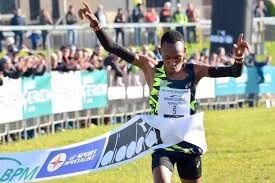
Ethiopian teenager Shimeles Mekides Molla put in an early surge after the first 2km loop of the women’s 10km race with Chekwemoi and Abigael Chepkoech trailing close behind.
Molla’s lead was short-lived, though, because Chekwemoi moved to the front and opened a gap steadily. It wasn’t long before the African steeplechase champion was running alone out in front with just the thousands of spectators for company.
The Ugandan teenager went on to finish in 34:32, while Molla was almost a minute-and-a-half behind, clocking 35:57 for the runner-up spot. Celestine Biwot completed the podium in 36:43.
“I couldn’t believe that I could win in the home of champions but I told myself I am also a champion and I have to fight for it,” said Chekwemoi. “To be a champion is not easy but I see progression and I am working hard to make sure I qualify for the World Championships in Tokyo next year.”
By contrast, there were 10 athletes running close together at the end of the first lap in the men’s race. That pack was soon reduced to five men, including world U20 cross-country bronze medallist Matthew Kipkoech Kipruto, 2019 African Games 5000m champion Robert Kiprop, and Samwel Chebolei, who was fifth at this year’s World Cross, contributing to Kenya’s team gold medal.
Heading into the fourth lap, Kipruto led from Kiprop and Chebolei. Kipruto’s challenge faded in the closing stages, though, while Chebolei proved to have the stronger finishing kick. He crossed the line in 30:49 to win by nine seconds. Kiprop took second place, improving on his fourth-place finish from last year. Pre-race favourite Kipruto was third in 31:12.
“I had to fight because there were a lot of good athletes in this race, it was not easy,” said Chebolei. “After the third lap, we still felt energetic and the three of us decided to drop the rest and the maths worked for us. I am hoping to build up from here and represent Kenya in Tokyo.”
Kevin Kiprop Biwott won the U20 men’s race, beating world U20 5000m champion Andrew Kiptoo Alamisi by 17 seconds.
Cynthia Chepkurui, who was ninth at the African Cross Country Championships earlier this year, this time emerged as the winner in the U20 women’s 6km race in 21:17.
Several of Kenya’s leading athletes, past and present, attended the Great Chepsaita Cross Country, including Eliud Kipchoge, Faith Kipyegon, Benson Kipruto, David Rudisha, Julius Yego and Janeth Jepkosgei.
by World Athletics
Login to leave a comment
Former world U20 800m champion Kipyegon Bett dies aged 26
The Kenyan passed away in hospital, where he’d been receiving treatment for an illness
Kipyegon Bett, the former world under-20 800m champion, has sadly passed away at the age of 26.
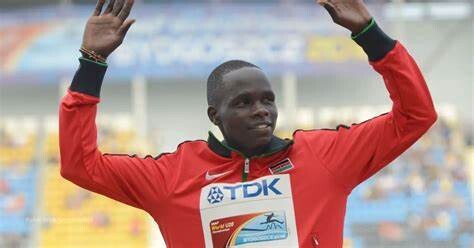
The Kenyan, who also secured a bronze medal over two laps at the 2017 World Championships in London, was receiving treatment for an illness in hospital.
According to Nation, Bett was vomiting blood due to damage to some of his internal organs.
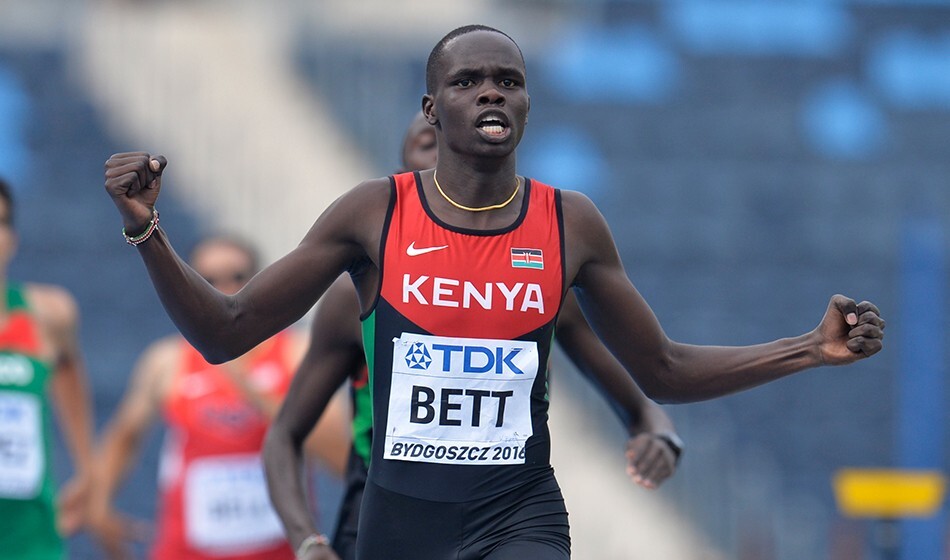
Purity Kirui, who is Bett’s sister and the 2014 Commonwealth 3000m steeplechase champion, told the outlet: “He’d been unwell for about a month and had been treated at AIC Litein Hospital as an outpatient. On Saturday (October 5), his condition deteriorated and was referred to Tenwek Hospital for further tests.”
Bett started competing internationally in 2015 and claimed respective gold and silver 800m medals at that year’s African and World Youth Championships.
The following season he became world under-20 800m champion in Bydgoszcz, clocking 1:44.95 to take the crown.
Bett also recorded his personal 800m best of 1:43.76 in 2016, with only world record-holder David Rudisha ahead of him at ISTAF Berlin.
It was therefore no surprise to see Bett make a global senior podium in 2017.
In a pulsating race at the World Championships, Bett clocked 1:45.21 and placed third behind France’s Pierre-Ambroise Bosse and Poland’s Adam Kszczot.
That year he also won the 800m at the Shanghai Diamond League, running 1:44.70 to win the event in China.
However, Bett tested positive for EPO in 2018 and subsequently received a four-year ban.
He only ever raced once after it ended and that was in the 400m hurdles two years ago.
by Tim Adams
Login to leave a comment
Jepkosgei donates world title singlet to Museum of World Athletics
Kenyan running legend Janeth Jepkosgei made a historic contribution to the Museum of World Athletics (MOWA), donating the singlet she wore on 28 August 2007 when winning the 800m title at the World Championships in Osaka.
It was the first ever world title won by a Kenyan woman in a middle-distance event, paving the way for eight more titles claimed by her successors in subsequent editions up to 2023.
Jepkosgei, who is now head coach of the U20 Athlete Refugee Team, made the donation to the MOWA during the World Athletics U20 Championships Lima 24, presenting her singlet to World Athletics CEO Jon Ridgeon.
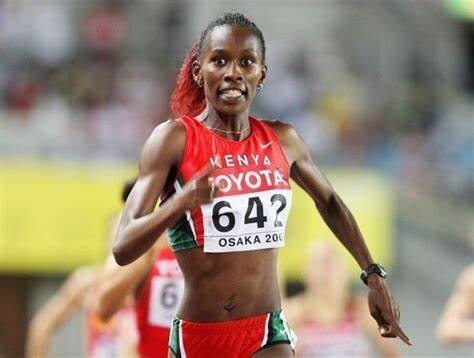
‘Inspiring the sport of running’
“I’m very happy to present my 2007 World Championships singlet to the Museum of World Athletics (MOWA),” said Jepkosgei. “When it is displayed in the online museum and exhibited around the world, I hope it helps to inspire and promote the wonderful sport of running, which, in my role as head coach for the U20 Refugee Team, I know is a powerful force for good.”
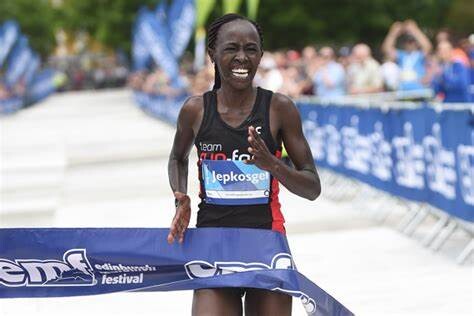
Ridgeon added: “Thank you to Janeth for her work with the Athlete Refugee Team and for the enormous generosity she has shown by donating her 800m world title-winning uniform to our museum’s collection. The support and encouragement of champions like Janeth is crucial to the success of our heritage programme, which helps preserve and promote our sport’s inspiring history to athletes and fans alike.”
From world champion to global role model
Janeth Jepkosgei Busienei, born in 1983 in Kabirirsang village (Rift Valley Province), was one of the most consistent 800m runners of her decade. Her journey began as a hurdler, but after transitioning to middle-distance running, she won the world U20 800m title in 2002.
Known for orchestrating races with fast starts, Jepkosgei stood on a major championship podium every year from 2003 to 2011, earning the 2007 world 800m title, 2008 Olympic silver, and two more world silvers in 2009 and 2011.
Off the track, Jepkosgei was deeply involved in her community, serving as the Kenyan team captain at numerous championships, sponsoring students, and supporting local projects. After the birth of her daughter Becky Olympia Jepchirchir and her retirement in 2016, Jepkosgei became even more involved in the sport’s development by hosting training camps and becoming one of the few female coaches in the athletics world.
She notably discovered young Emmanuel Wanyonyi, whom she coached to his world U20 800m title in 2021, and then mentored alongside her former Italian coach, Claudio Berardelli, to his Olympic title in 2024.
Since 2022, Jepkosgei has also been the head coach of the U20 Athlete Refugee Team (ART), a women-driven programme based near the South Sudan border in East Africa. She has embraced a mentorship role, passing on her vast experience to the next generation, a journey marked by her iconic victory in Osaka in 2007.
A soaring victory in Osaka
In Osaka, Jepkosgei astonished everyone as early as the semifinals, with a world-leading time and Kenyan record of 1:56.17, also the fastest prelim in 800m history.
In the final, she set a blistering pace right from the start, exiting the first turn with a three-metre lead and hitting the 100m mark in 13.0, an unprecedented achievement in a championship.
Neither the efforts of Belarusian Svetlana Usovich, Russian Olga Kotlyarova, Mozambican Maria Mutola, nor Moroccan Hasna Benhassi could keep up with the Kenyan’s solo race, as she easily won in 1:56.04, further improving the best time of the year.
Jepkosgei’s winning singlet will sit alongside the shoes and clothing of other world 800m champions in the Heritage Collection of MOWA, including Ana-Fidelia Quirot, Maria Mutola, Willi Wülbeck, Wilson Kipketer and David Rudisha.
by Pierre-Jean Vazel for World Athletics
Login to leave a comment
Jakob Ingebrigtsen considering competing at Sunday’s Copenhagen Half Marathon
It’s no secret that Norwegian distance running star Jakob Ingebrigtsen is on a mission to etch his name into the history books by setting as many world records as possible in his career. On Thursday, rumours began swirling on social media that Ingebrigtsen was competing at the Copenhagen Half Marathon on Sunday, marking what would be his debut at the distance. Should he decide to race, the world record of 57 minutes and 31 seconds could be in jeopardy.
On the Copenhagen Half Marathon start list, there is an unnamed athlete with bib number #2 who is the same age as Ingebrigtsen (23).
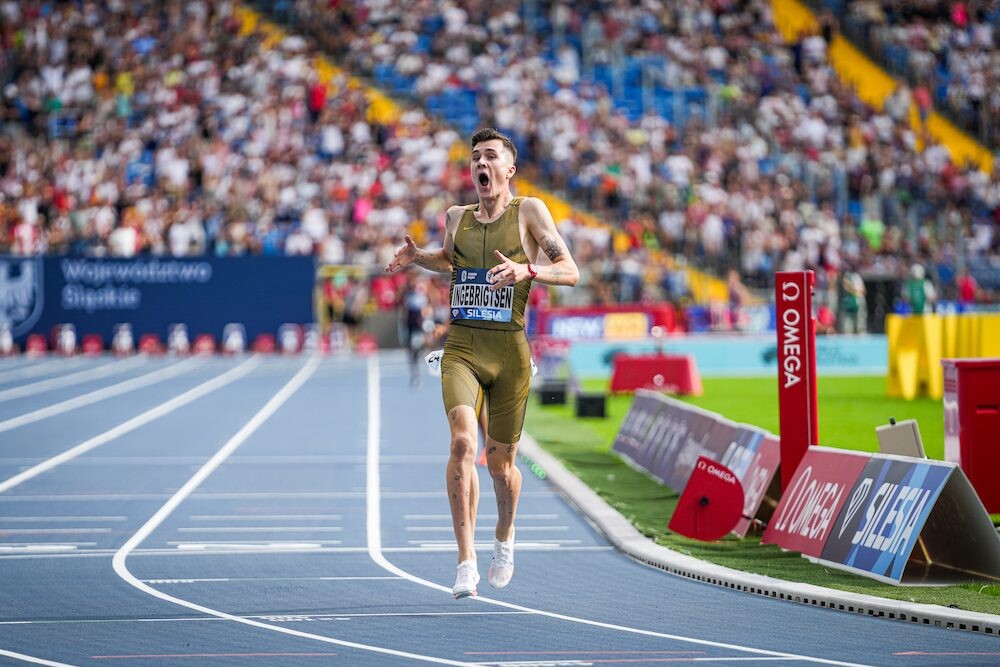
In a press conference ahead of Friday’s Diamond League Final in Brussels, Ingebrigtsen was asked if he had plans to compete in Copenhagen. “I’m focused on tomorrow’s race first, and what happens after that, I’m not sure,” the 23-year-old Norwegian responded, keeping the speculation alive. If the rumours prove true, he could be chasing another world record.
In tomorrow’s race in Brussels, Ingebrigtsen will be vying for his third-consecutive Diamond League title while trying to inch closer to Hicham El Guerrouj’s 1,500m world record of 3:26.00. “I believe it’s possible to break any world record,” Ingebrigtsen said in Thursday’s press conference. “For me, it’s about winning. It’s always exciting to race when there’s something bigger on the line. There’s always the chance of a world record, but likely not tomorrow.”
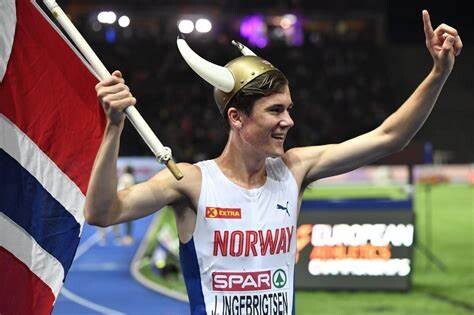
World record watch in Brussels
Meanwhile, the Diamond League Final could witness another world record in the men’s 800m, where Canadian Olympic silver medalist Marco Arop will face off against his rival, Olympic champion Emmanuel Wanyonyi. Both are the fastest 800m runners in the world this year, and they’ll be chasing David Rudisha’s world record time of 1:40.91. Arop will arrive in Brussels in record-setting shape, fresh off setting a North American record in the 1,000m at the Boris Hanžeković Memorial in Zagreb on Sept. 8.
by Marley Dickinson
Login to leave a comment
Copenhagen Half Marathon
The Copenhagen Half Marathon was the first road race in Scandinavia and is one of the fastest half marathons in the world. The Copenhagen Half Marathon has been awarded with the International Association of Athletics Federation's (IAAF) most distinguished recognition - the IAAF Road Race Gold Label. Copenhagen Half Marathon was awarded the IAAF Road Race Bronze Label in January...
more...Why David Rudisha believes Emmanuel Wanyonyi is destined to break his 800m world record
Wanyonyi got to within an eighth-hundredth of a second away from equalling David Rudisha's 12-year 800m world record at the Lausanne Diamond League classic on Thursday.
When David Rudisha tipped Emmanuel Wanyonyi as the athlete most likely to break his 12-year-old 800m world record during the Kenyan trials for the Olympic Games at Nyayo National Stadium last June, it wasn’t just a casual remark.
Rudisha’s prediction is now gathering weight, especially after Wanyonyi clocked a blistering 1:41.11 at the Lausanne Diamond League meet in Switzerland on Thursday.
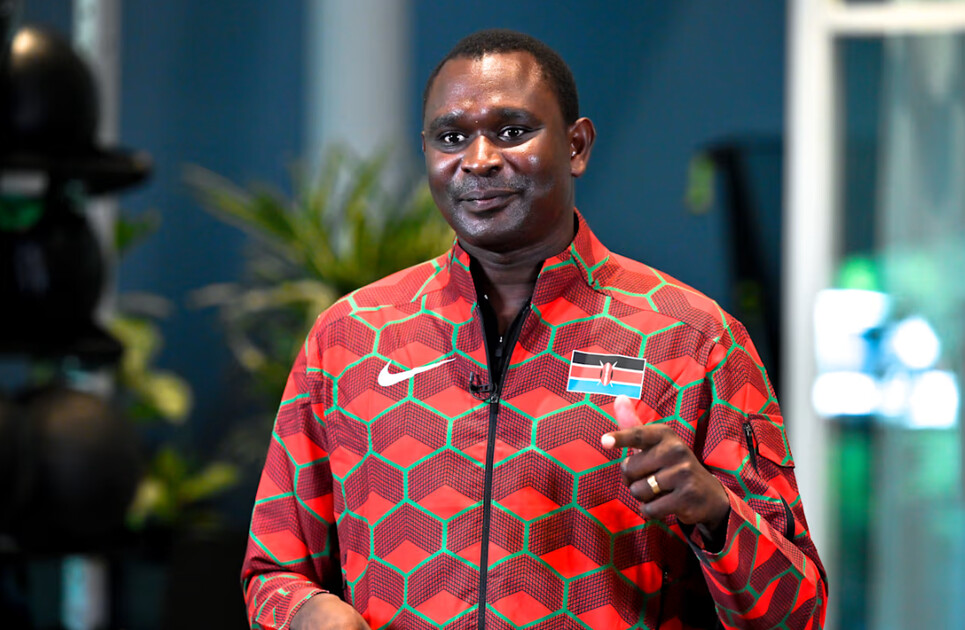
This time not only equaled Wilson Kipketer’s record but also placed Wanyonyi second on the all-time list, just eight hundredths of a second away from Rudisha’s world record of 1:40.91 set at the 2012 London Olympics.
“Wanyonyi is a young talented athlete. He has so much potential, and all he needs to do is fine-tune his craft, and this will see him push his time even lower,” Rudisha had told the media last June.
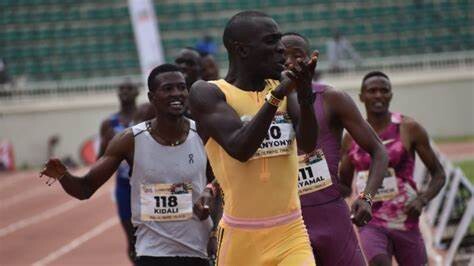
Rudisha, who knows a thing or two about world records, added, “He always shows his bravery and confidence whenever he steps on the track, and that has been the secret behind his success.
“World records are special. We are looking forward to seeing how the young generation is going to take up the challenge. Of course, there is a lot of innovation, and it improves performances. We believe that world records are there to be broken.”
Wanyonyi’s stunning performance in Lausanne has made him a force to be reckoned with in the world of athletics.
His time of 1:41.11 ties him with Kipketer and positions him as the most serious threat to Rudisha’s reign in the 800m. At just 20 years old, Wanyonyi’s rise to the top has been meteoric, and his determination to succeed mirrors that of Rudisha.
Rudisha himself had an illustrious career, beginning as a decathlete before switching to sprints and later focusing on the 800m in 2005. Just a year later, he won the 800m title at the World U20 Championships in Beijing, clocking 1:47.40.
In 2008, he claimed the African senior title in Addis Ababa with a time of 1:44.20. Then, on August 22, 2010, Rudisha set his first world record in Berlin, running 1:41.09 and breaking Kipketer’s 1997 mark.
Seven days later, he improved his record to 1:41.01 in Rieti. Rudisha continued his dominance by winning the world 800m title in Daegu in 2011, reclaiming it in Beijing in 2015, and becoming the first man since Peter Snell to retain the Olympic 800m title in Rio in 2016.
Now, Wanyonyi is carving out his own legacy. At 20, he became the youngest-ever Olympic 800m champion, leading a race of unprecedented depth in Paris.
He held off Canada’s Marco Arop, the reigning world champion, who briefly took the lead off the final turn before Wanyonyi surged back in the final steps. Arop finished with a North American record of 1:41.20 for silver, while Algeria’s Djamel Sedjati claimed bronze in 1:41.50.
Reflecting on his victory, Wanyonyi said, “It was going to be hard to defend as the only Kenyan in the final. I had a lot of pressure. I spoke to Rudisha yesterday, who told me I would win if I employed my tactics. I decided to run the way he did in London. If I had run a slow race, they would have beaten me.”
Although Wanyonyi didn’t quite match Rudisha’s record, he is keen on having another go at it when the Diamond League moves to Silesia, Poland, this Sunday.
While he has remained modest about his world-record ambitions, saying, “Maybe, but not now,” the Diamond League offers the perfect stage for him to make history. The Wavelight technology, which has been instrumental in helping athletes maintain pace, will also be in use, providing Wanyonyi with every opportunity to push the boundaries.
Wanyonyi is no stranger to breaking records. At 19, he shattered the previous one-mile (1,600m) record of 3:56.13 set by American Hobbs Kessler at the World Road Running Championships in Riga, Latvia, last year.
With Rudisha as his role model and mentor, Wanyonyi is poised to continue his upward trajectory and possibly eclipse the mark set by the man he so deeply admires.
As the athletics world watches, the question on everyone’s mind is not if, but when, Emmanuel Wanyonyi will break the 800m world record. And when that day comes, it will be the culmination of a journey inspired by greatness and driven by the relentless pursuit of excellence.
by Mark Kinyanjui
Login to leave a comment
How Emmanuel Wanyonyi’s rival faced an anti-doping raid before Olympic 800m final
A track athlete was raided by anti-doping officials at the Olympic village days before securing a bronze medal in the 800m event.
Olympic 800m bronze medalist Djamel Sedjati is believed to be still under scrutiny by the Athletics Integrity Unit (AIU) following a dramatic raid in the Olympic village just days before the final event.
The incident, which unfolded a week ago but garnered minimal media attention at the time, involved French anti-doping officers executing a search linked to an ongoing investigation into alleged doping practices.
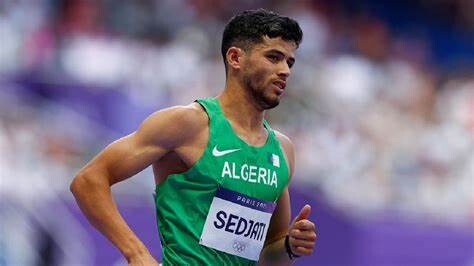
The raid, led by the French Anti-Doping Agency (AFLD), targeted Sedjati’s accommodations and was part of a broader probe that also implicated Algerian athletics coach Amar Benida.
According to the French sports daily L'Equipe, sources close to the investigation have indicated that Benida was the primary focus of the inquiry.
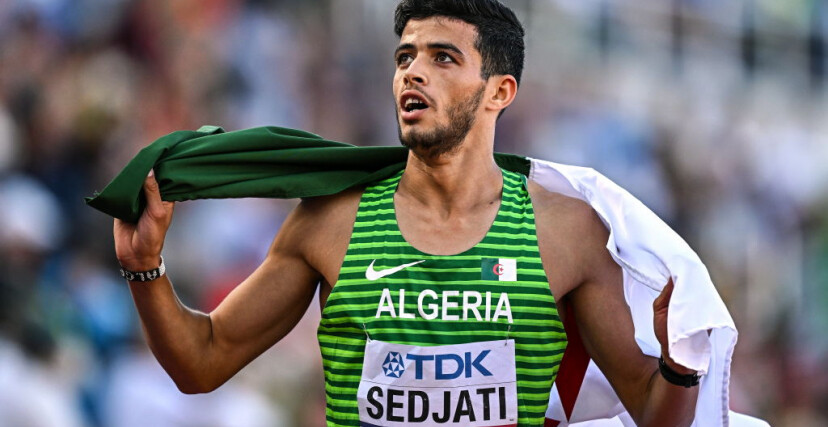
This revelation puts a different light on the events, suggesting that Sedjati may have been collateral in the broader investigation rather than the direct target.
In the wake of the raid, Sedjati displayed remarkable composure, securing a third-place finish in a fiercely competitive 800m final at the Stade de France.
The race itself was historic, with four of the seven top times on the all-time performance list being recorded, highlighting the extraordinary level of competition.
Emmanuel Wanyonyi of Kenya clinched gold with a time of 1:41.19, becoming the third-fastest performer in history.
Following his performance, Sedjati addressed the incident at a press conference.
"Nothing (important) happened. These are things that athletes can face. Thank God it was only a small inconvenience. I was quickly able to get back to normal," Sedjati told reporters.
The Paris prosecutor's office and the AFLD have remained silent on the matter offering no comments or insights into the ongoing investigation.
This lack of official information has fueled speculation and concern within the athletics community.
In response to the controversy, the Algerian Olympic Committee issued a strong statement via Al24News, condemning what they described as "malicious attempts aimed at tarnishing the image of the Algerian runner Djamel Sedjati, victim of unjustified attacks by certain sports media."
This statement reflects the tension and the high stakes involved, particularly in light of Sedjati’s recent performances and his stated ambition to break David Rudisha’s 800m world record.
Sedjati’s resilience was on full display just weeks prior at the Monaco Diamond League, where he won the race in an impressive 1:41.46, just shy of his personal best set in Paris.
His capabilities and recent form make him a significant figure on the track, and the timing of the raid raises questions about the implications for his career and reputation.
by Festus Chuma
Login to leave a comment
Paris 2024 Olympic Games
For this historic event, the City of Light is thinking big! Visitors will be able to watch events at top sporting venues in Paris and the Paris region, as well as at emblematic monuments in the capital visited by several millions of tourists each year. The promise of exceptional moments to experience in an exceptional setting! A great way to...
more...What next for Kenya after Paris 2024 Olympic Games
The curtains for the 2024 Paris Olympics fell on Sunday night with Kenya ranking 17th in the world after winning 11 medals.
Despite Kenya topping the African continent with 4 gold, 2 silver and 5 bronze medals, the results left a lot to be desired.
From 83 athletes competing in seven disciplines, a significant impact was expected from the Kenyan athletes and the world.
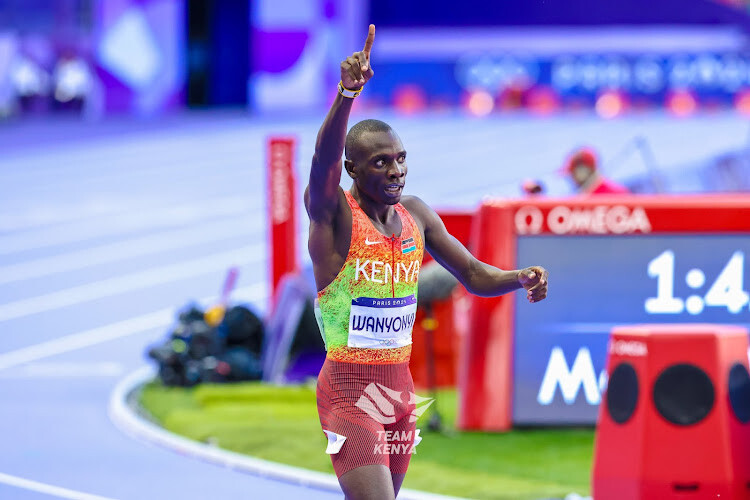
The show started with Judoka Zeddy Cherop falling 10-0 to Portugal’s Patricia Sampao in a record 22 seconds while Fencing African champion Alexandra Ndolo crushed out 13-12 to Ukranian Olena Kryvytska in her debut.
Maria Brunlehner and Ridhwan Mohamed finished 3rd and 4th in the women’s 50m freestyle and Men’s 400m freestyle heats respectively to crush out of contention for a swimming medal.
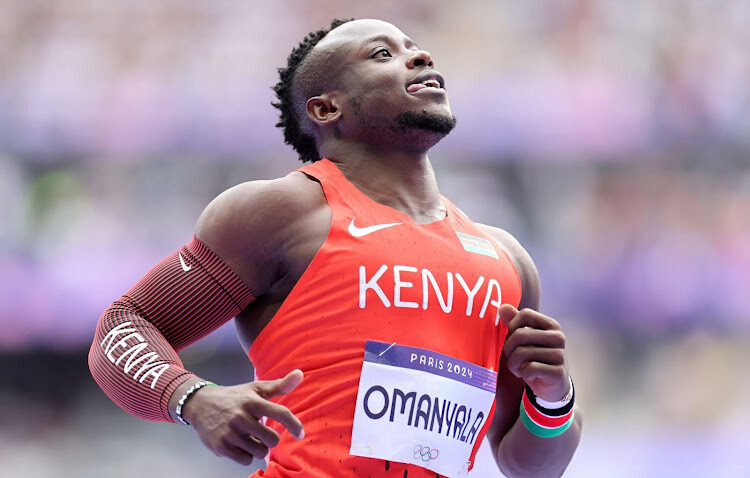
The sevens rugby team also crushed out in the group stage, after going down to Australia, Argentina and Samoa.
The women’s volleyball team booked their next flight after failing to win a single set following three identical 3-0 losses in a tough group B pool comprising Brazil, Poland and Japan.
Paris, the City of Love, had very little affection for Kenya as former world champion Julius Yego, finished a distant 5th in the javelin final with a 87.72m throw, to also bite the dust.
Africa's fastest man, Ferdinand Omanyala's 100m Olympic medal dream was shattered in the semi-finals after clocking 10.08 seconds to finish 8th.
However, Kenya redeemed herself with debutant Beatrice Chebet grabbing double gold in the 5000m and 10000m women’s races.
The best performer was followed closely by Faith Kipyegon who defended her 1500m gold and added the 5000m women’s silver.
Another debutant, Emmanuel Wanyonyi, grabbed the 800m gold, while Ronald Kwemoi struck the men’s 5000m silver.
Mary Moraa, the dancing queen, grabbed the 800m bronze, same as Faith Cherotich (3000m steeplechase) and Abraham Kibiwot (3000m steeplechase).
Hellen Obiri and Benson Kipruto rounded up the bronze tally in the men's and women's marathons.
Obiri failed in her quest for an Olympic medal having won silver in the women's 5000m in Tokyo, 2020 and Rio 2016 games.
History Making
Kenya will however keep pride in making history after Faith Kipyegon became the first woman to complete an Olympic hat trick after breaking her 1500m record in 3:51.29, before a fully packed iconic Stade de France.
Debutant Beatrice Chebet was the best performer entering the history books by winning a double gold in the women's 5000m and 10000m.
The feat makes Chebet the first Kenyan woman to win Olympic 10000m gold for Kenya since the race was introduced in the 1988 Olympics.
She is the third woman after Tirunesh Dibaba and Sifan Hassan to win the 5000m and 10000m double at the Olympic Games.
"I'm dedicating this medal to all Kenyans. I just want to hear my country is proud. This was for you, you were in my mind and heart in every lap; I might have made history but I will sleep better knowing Wananchi wataenjoy the weekend," she said.
Kenya’s legend Eliud Kipchoge failed to complete an Olympic marathon treble after dropping out of the race at the 20km mark.
Kipchoge later confirmed he won’t be running in the Los Angeles 2028 summer games.
“I felt a sharp pain in the stomach and I couldn’t continue. I'm disappointed that for the first time in my career, I failed to finish a race .” Kipchoge said.
Lady luck also smiled on Kenya after Kipyegon's 5000m silver medal was reinstated following an appeal, after a push and shove with Ethiopian nemesis, Gudaf Tsegay, had her initially disqualified.
In the 800m final, Canada appealed against Kenyan winner Emmanuel Wanyonyi's personal best of 1:41.91 in the 800m, claiming he obstructed silver medallist Marco Arop. Kenya won the appeal.
Tokyo 2020
Despite the dismal show in Paris, Kenya had bettered the 2020 Tokyo tally of 10 medals and a 19th spot finish.
The post-Covid games had challenges but Kenya grabbed four gold, four silvers and two bronze medals.
Emmanuel Korir (800m), Faith Kipyegon (1500m), Peres Jepchirhir (marathon), and Eliud Kipchoge (marathon) were the gold medalists while Hellen Obiri (5000m), Fergussin Rotich (800m), Brigid Kosgei (marathon) and Timothy Cheruiyot (1500m) won silver.
Benjamin Kigen and Hyvin Kiyeng won the men's and women's 3000m steeplechase races respectively.
Rio 2016
In the 2016 Rio De Janeiro games, Kenya managed six gold, six silver and one bronze medal for a tally of 13 medals.
Rio 2016 Olympics gold medalists were Jemima Sumgong in women's marathon, David Rudisha in 800m, Faith Kipyegon in 1500m, Conseslus Kipruto in 3000m steeplechase, Vivian Ceruiyot in 5000m and Eliud Kipchoge marathon.
Meanwhile, Vivian Cheruiyot (10000m); Paul Tanui (10000m); Hyvin Kiyeng (3000m steeplechase); Boniface Mucheru (400m hurdles); and Hellen Obiri (5000m) all grabbed silver, while Julius Yego managed a rare javelin silver. Margaret Wambui won bronze in women's 800m.
London 2012
The London 2012 Summer Games saw Kenya manage 2 gold, 4 silver and 7 bronze for a total of 13 medals.
Despite a cold and warm performance in the Queens land, Kenya won two gold medals to finish a distant 29th in the world rankings.
Legendary track masters Ezekiel Kemboi and David Rudisha grabbed gold in the men's 3000m and 800m races respectively.
Sally Kipyegon brought home the women's 10000m silver, while Priscah Jeptoo won the women's marathon silver medal as Vivian Cheruiyot grabbed the women's 5000m race.
Abel Kirui rounded up the silver medals haul after clinching the men’s marathon race.
Vivian Cheruiyot won bronze in the 10000m women's race, while Asbel Kiprop and Milcah Chemos clinched bronze in the men's and women’s 3000m steeplechase.
Timothy Kiptum and Pamela Jelimo clinched the men's and women's 800m race respectively while Thomas Longosiwa and Wilson Kipsang rounded off Kenya's bronze medals haul, winning the 5000m men's and women's marathon races.
What next?
As the nation awaits the Paris 2024 Games report on what worked and what didn't work, a lot will be looked into including preparations, sports science, lack of stadia and lack of funds among others.
However, one constant reminder is that Kenya must smell the coffee, lest our legacy is discarded by the improving rival nations every day.
The next Omanyala, Yego, Obiri and Kipchoge should be nurtured immediately if we are to remain world beaters in the summer games.
Beating the 2008 Beijing Summer Games remains the target, where Kenya sent a total of 46 athletes: 28 men and 18 women who brought home the best tally of six gold, four silver and six bronze medals.
The journey to the Los Angeles 2028 games starts with a new sheriff in town, CS Kipchumba Murkomen, at the helm of the Sports ministry.
by Eric Munene
Login to leave a comment
Paris 2024 Olympic Games
For this historic event, the City of Light is thinking big! Visitors will be able to watch events at top sporting venues in Paris and the Paris region, as well as at emblematic monuments in the capital visited by several millions of tourists each year. The promise of exceptional moments to experience in an exceptional setting! A great way to...
more...Emmanuel Wanyonyi and Wycliffe Kinyamal flawlessly sail to men's 800m semis as Koitatoi Kidali misses podium
Emmanuel Wanyoyi took a comfortable win in the men's 800m first round with Wycliffe Kinyamal finishing third as Koitatoi Kidali struggled to make an impact and he will be out to bid for a semifinal ticket in the repechage round.
Emmanuel Wanyonyi, Wycliffe Kinyamal and Koitatoi Kidali took to the starting line of the men’s 800m first round and did not fail to impress with their striking runs.
Marco Arop headlined the field and he secured a second position to sail through to the men’s 800m semifinal. He clocked a stunning 1:45.74 to cross the finish line behind Belgium’s Eliott Crestan who won the race in 1:45.51. Australia’s Peyton Craig completed the podium in 1:45.81.
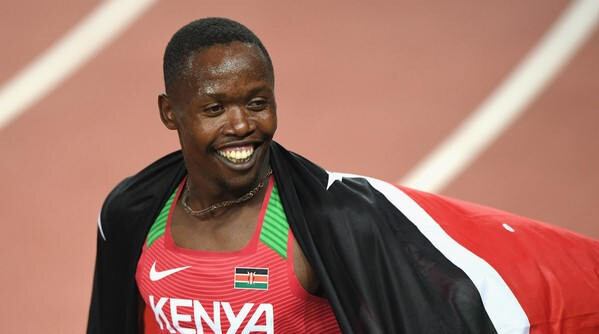
Competing in the second heat, Botswanan sprinter Tshepiso Masalela completed the podium in 1:45.58 as Gabriel Tual won the race in 1:45.13. Mark English of Ireland finished an impressive second in 1:45.15. Kidali finished a distant fifth and will have to contest for the semifinal in the repechage round.
Competing in the third heat, Emmanuel Wanyonyi was flawless as he claimed the win in a time of 1:44.64 ahead of Catalin Tecuceanu who finished second in 1:44.80. Andreas Kramer completed the podium 1:44.93.
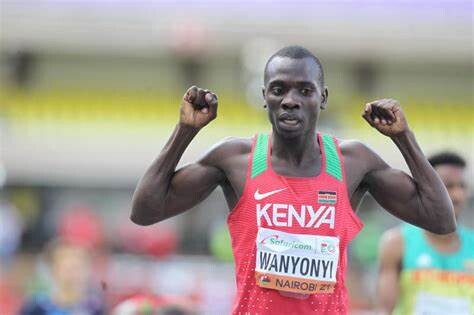
Djamel Sedjati led the qualifiers in the fourth heat as he crossed the finish line in a time of 1:45.84 as Great Britain’s Elliot Giles came in second in a time of 1:45.93. America’s Hobbs Kessler completed the podium in a time of 1:44.93.
Kinyamal sealed the podium competing in the fifth heat as he clocked a stunning 1:45.86 to cross the finish line. Great Britain's Ben Pattison won the race as South Africa's Edmund du Plessis finished a close second.
Heat six saw Spain's Mohamed Attaoui win the race as America's Bryce Hoppel came in second. Great Britain's Max Burgin completed the podium in the race.
Meanwhile, the Kenyan trio has been impressive this season, with Wanyonyi being the stand-out times with his impressive times in the build-up to the Olympics.
The world 800m silver medallist clocked the third fastest time since David Rudisha’s retirement at the Kenyan Olympic trials before Algeria’s Djamel Sedjati obliterated his time at the Diamond League Meeting in Paris.
He struck a world record in the men’s mile road to open his season in fashion. Wanyonyi also struck a win at the Kip Keino Classic.
Kinyamal has had impressive podium finishes in events and was looking to make an impact on the Olympic stage in his debut.
On his part, Kidali was a breakout athlete, making his first national team and he hopes to leave a mark on the Olympic stage. He has showcased his tactical run and is certainly a threat to his opponents going into the semifinal.
by Abigael Wafula
Login to leave a comment
Paris 2024 Olympic Games
For this historic event, the City of Light is thinking big! Visitors will be able to watch events at top sporting venues in Paris and the Paris region, as well as at emblematic monuments in the capital visited by several millions of tourists each year. The promise of exceptional moments to experience in an exceptional setting! A great way to...
more...David Rudisha explains why he never switched to a longer distance in his prime years
David Rudisha has explained why he could never dare to compete in a longer distance than the 800m.
World 800m record holder David Rudisha has disclosed why he could never dare to run a longer distance than the 800m.
Most 800m runners love blending the two-lap race with the 1500m but Rudisha opted to scale down to the 400m and he admitted that it worked perfectly for him.
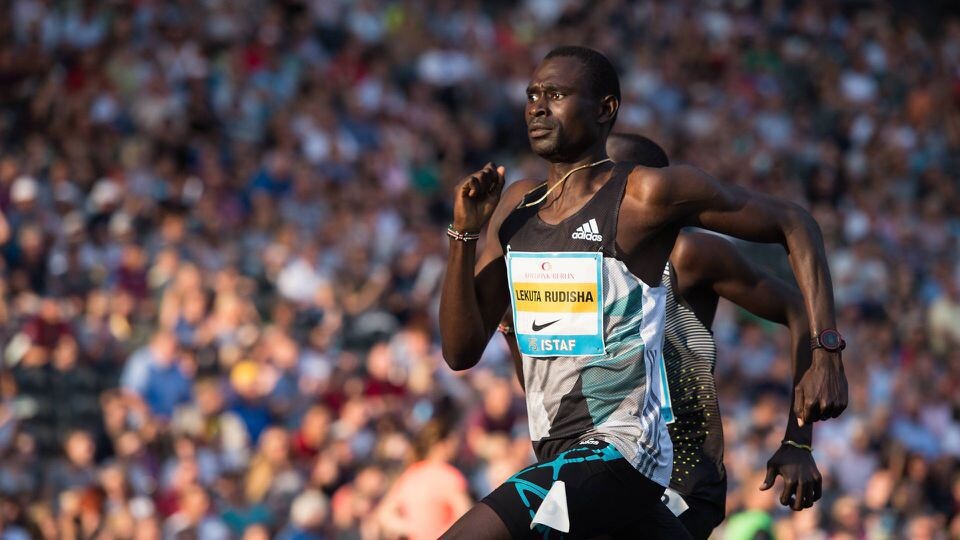
In Kenya, Emmanuel Wanyonyi is one of the athletes who does the 800m and combines it with longer distances but reigning world 800m champion Mary Moraa is more of Rudisha’s type. Moraa is always known to compete in the 400m and 600m and she rarely makes appearances in the longer distances.
“If you see 800m runners, you find that some are doing 800m and others can move to 1500m and 5000m. However, others can only move to the 400m and I believe I’m the one who could only do the 400m.
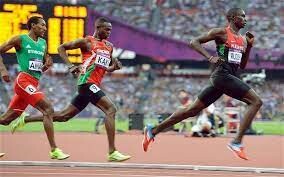
“Even during my training days, I wasn’t doing so well with the endurance and I would struggle a lot. I wasn’t kind of a longer-distance athlete and at some point, at the beginning of the season, my coach would tell me to do 800m and 600m races.
“However, I never liked that because it was tough. During training, I would usually do maybe one 600m race and then go down to 200m or 400m and then the 300m, the one that I loved,” Rudisha said in an interview with World Athletics.
Speaking about his world record at the 2012 London Olympics, Rudisha disclosed that he had worked towards achieving that goal for years.
The two-time Olympic champion was only making his debut at the Olympics and deep down, he knew there was no chance of making mistakes. He explained that his team had worked around the clock and refined the finer things in his training and he was confident of running something special.
However, the two-time world champion noted that it was not an easy thing but he knew if he missed that chance, he would have to wait for four more years to make history.
“London 2012 was my first Olympic Games and as I was training, way back, my coach used to emphasise and he would say we would be in the Olympics and that got into my mind. Over five, six, seven, or eight years, I was focusing on the Olympics.
“Going there was very special and we did very good preparation to make it happen since you can’t make mistakes at the Olympics. I knew that I had a better chance and I was still in the peak of my career and we did very good training.
“At the beginning of the season, I did like two races in New York and Paris and I did 1:41, and going to London, I knew it wasn’t easy. I made my plans and knew that if I executed the race well, I would win the 800m and because I was a front runner, it would be easier for me,” Rudisha said.
by Abigael Wuafula
Login to leave a comment
David Rudisha names 3 key athletes to shape 800m race this Olympic season
World 800m record holder David Rudisha has revealed the three key athletes who will shape the two-lap race this Olympic season and might even threaten his world record.
World 800m record holder David Rudisha has singled out three athletes that could shape the 800m at the Paris 2024 Olympic Games and beyond.
Rudisha was an 800m maestro and defined the two-lap race in his prime and he believes other athletes are coming up and have the ability to change the quality of the 800m race.
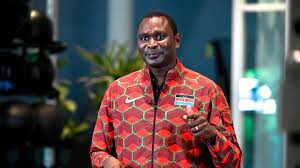
The two-time Olympic champion set his first 800m World Record of 1:41.09 on August 22, 2010 in Berlin, Germany before lowering his time to clock another world record of 1:40.91 set during the 2012 London Olympic Games.
No athlete has gotten near to the world record but the two-time world champion believes the trio of Emmanuel Wanyonyi, Marco Arop and Djamel Sedjati have the ability to redefine that.
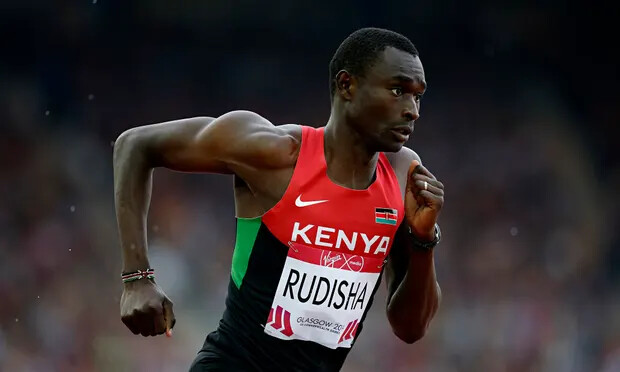
“From Kenya, we have Emmanuel Wanyonyi. Marco Arop from Canada. And I saw also a young kid Djamel Sedjati from Algeria running the world-leading time in Ostrava,” Rudisha told AFP.
“This is really amazing. We are looking forward to seeing how they are going to perform. In the Olympics, anything can happen. It's always very competitive and everybody goes there to win. So, there's a lot of expectation.”
Wanyonyi, the youngest of the three, has been in great form this season, and he will certainly be an athlete to watch in the city of love.
The world 800m silver medallist has been unbeaten in the 800m this season, winning the Kip Keino Classic and the Diamond League Meeting in Rabat, Morocco. He also set the road mile world record at the Adizero road to records event.
Meanwhile, Arop, the reigning world champion, has only raced once in the 800m outdoor and won in the Diamond League Meeting in Xiamen. He has been in great form, however, in his indoor events and will certainly be out to give his competitors a run for their money one more time.
Sedjati, 25, has also proven to be a strong athlete, striking with a world leading time of 1:43.51 in Ostrava in his season opener. He will also be looking to impress at the Paris 2024 Olympic Games, following his silver medal at the 2022 World Championships in Eugene, Oregon.
by Abigael Wuafula
Login to leave a comment
Sebastian Coe vows Enhanced Games athletes would be ‘banned for long time
The World Athletics president, Sebastian Coe, has hit out at plans for an Enhanced Games, that would allow athletes to take steroids and other performance enhancing drugs, and warned that anyone who competes will be banned for a long time.
Organisers of the Enhanced Games, which has been backed by venture capitalists including the billionaire Peter Thiel, have called their event “the Olympics of the future”. It will include athletics, swimming, weightlifting, gymnastics and combat sports.
Earlier this month the former swimming champion, James Magnussen, agreed to come out of retirement to compete in the Games and attempt to swim faster than the 50m freestyle record for a prize of $1m (£790,000).
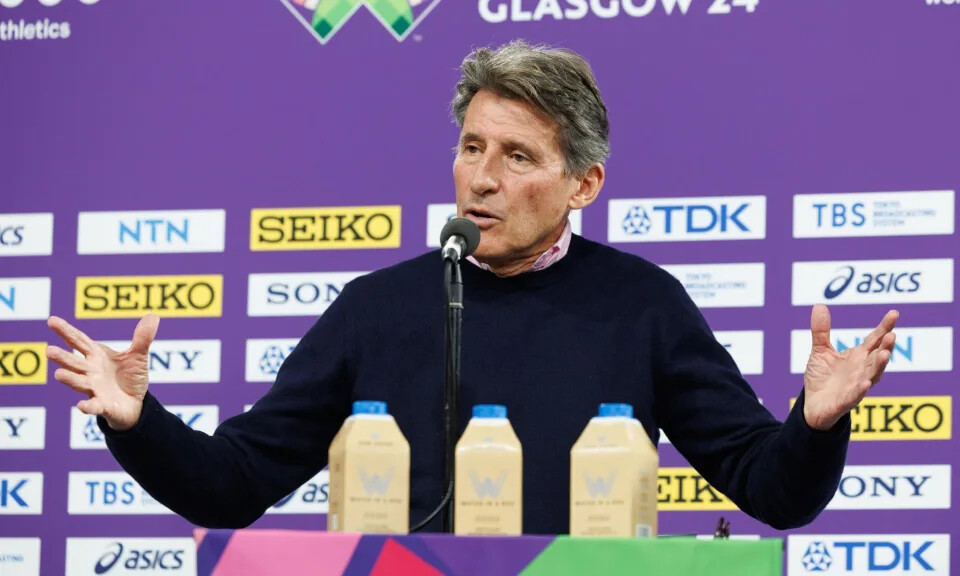
However, at a press conference for the world indoor championships in Glasgow, Lord Coe was withering when asked for his thoughts.
“It’s bollocks isn’t it?” he said. “I can’t really get excited about it. There’s only one message, and that is if anybody is moronic enough to officially take part in it, and they are in the traditional part of our sport, they’ll get banned for a long time. But I really don’t get sleepless nights about it.”
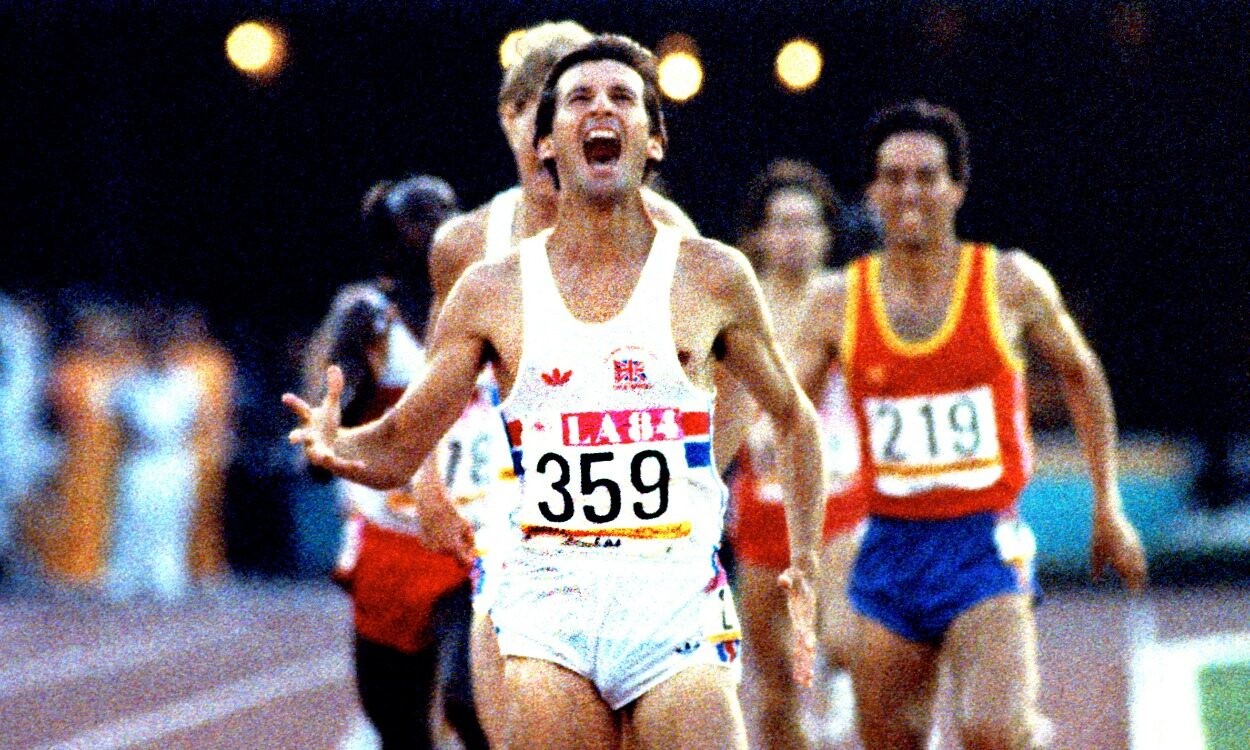
His message was supported by the men’s 800m world record-holder, David Rudisha, who said: “The integrity of the sport needs to be protected at all times. This is not a good thing and just brings a lot of confusion to people and sponsors.”
Coe also promised that World Athletics would not be deterred from trialling new proposals in the long jump and other events, despite the negative reaction to a “take-off zone” instead of the traditional wooden board.
“Our sport is 150 years old and there are elements of it that you absolutely want to protect,” he said. “They are sacrosanct. But there is stuff there that just leaves people a little cold. And 31% of all long jumpers are failing attempts. Now, I’m not saying that the take-off zone is the only remedy and it’s one of a raft of changes.”
Coe said that World Athletics knew that from detailed research from the world championships in Budapest last summer, which found that people left their seats during some events, or stopped watching the event on TV.
“We’re not going to back off innovation here,” he said. “It is really important. We have a responsibility to futureproof the sport, to continue to create the landscape financially.
“We have had meetings with world-class businesses in the last few weeks. And world-class businesses do not routinely want to join enterprises they think are going in the wrong direction.”
He added: “We can’t just sit there. The holy grail of every sport is to remain salient, interesting, and exciting to young people.
“We’re not going to frame the sport entirely around them. But we have to admit that the way people consume sport, the way they consume entertainment is different than it was even three years ago. And we have to move with the times.”
Login to leave a comment
David Rudisha named ambassador for WIC Glasgow 24
David Rudisha has been named World Athletics Indoor Championships Glasgow 2024 ambassador inspiring athletes for the event on 1-3 March.
World 800m record holder David Rudisha has been appointed as the World Athletics ambassador for the upcoming World Athletics Indoor Championships set to dazzle Glasgow from 1-3 March 2024.
The Kenyan legend, a revered figure in athletics with two Olympic gold medals and two World Championships titles in his storied 800m career, is no stranger to the city, having clinched a silver medal at the 2014 Commonwealth Games held there.
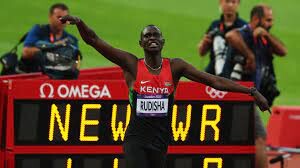
David Rudisha has been named World Athletics Indoor Championships Glasgow 2024 ambassador inspiring athletes for the event on 1-3 March.
World 800m record holder David Rudisha has been appointed as the World Athletics ambassador for the upcoming World Athletics Indoor Championships set to dazzle Glasgow from 1-3 March 2024.
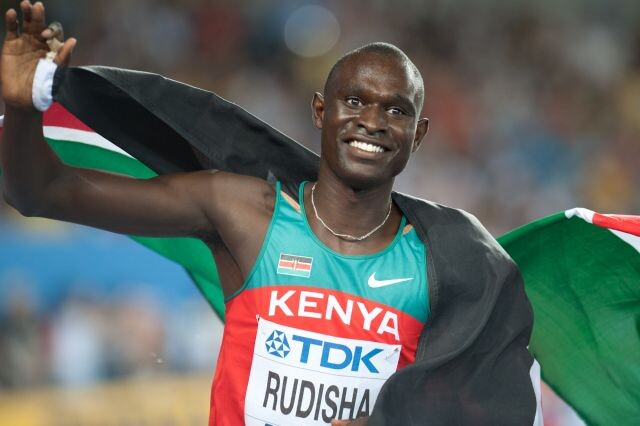
The Kenyan legend, a revered figure in athletics with two Olympic gold medals and two World Championships titles in his storied 800m career, is no stranger to the city, having clinched a silver medal at the 2014 Commonwealth Games held there.
The 35-year-old's career has been punctuated by remarkable achievements, notably his world record-breaking performance of 1:40.91 at the London 2012 Olympics.
With this ambassadorship, Rudisha is poised to inspire a new generation of athletes at the first global championships of 2024.
"I really feel honored," Rudisha remarked, reflecting on his successful career and his role in encouraging young talents to aspire to global accolades.
Rudisha's fond recollections of competing in the UK, and particularly in Glasgow, add a personal touch to his ambassador role.
He recounted the 2014 Commonwealth Games with fondness, praising the supportive and kind-hearted Glasgow crowd.
"The people were very kind and supportive. I got silver in that race, but it was clear that the crowd supported and cheered for every athlete, regardless of the position they finished," he said.
As the world gears up for the Paris 2024 Olympics, Rudisha highlighted the importance of a strong start to the competitive season.
"The Olympics is at the helm of any sport," he asserted, underscoring the significance of the Games in an athlete's career.
His anticipation for the championship in Glasgow is not just as an ambassador but also as a fan, especially for events close to his heart like the 800m and 400m races.
He expressed his excitement to see athletes like Femke Bol, who has already posted impressive times early in the season.
The World Athletics Indoor Championships Glasgow 2024 promises to be a spectacle, with over 700 athletes from around 130 nations vying for medals across 26 disciplines.
by Festus Chuma
Login to leave a comment
World Athletics Indoor Championships
World-Class Competition Lands in China: 2025 World Athletics Championships The global spotlight shines on China as it hosts the 2025 World Athletics Championships, bringing together the planet’s most elite runners, jumpers, and throwers. This prestigious event, organized by World Athletics, represents the pinnacle of track and field competition—where national pride, personal records, and world titles are on the line. ...
more...Kenyan Emmanuel Wanyonyi plotting to break David Rudisha's 800m world record
Emmanuel Wanyonyi has made his intentions clear about breaking David Rudisha's world record.
Teenage sensation Emmanuel Wanyonyi believes his dream of breaking David Rudisha’s 800m world record is inching ever so closer.
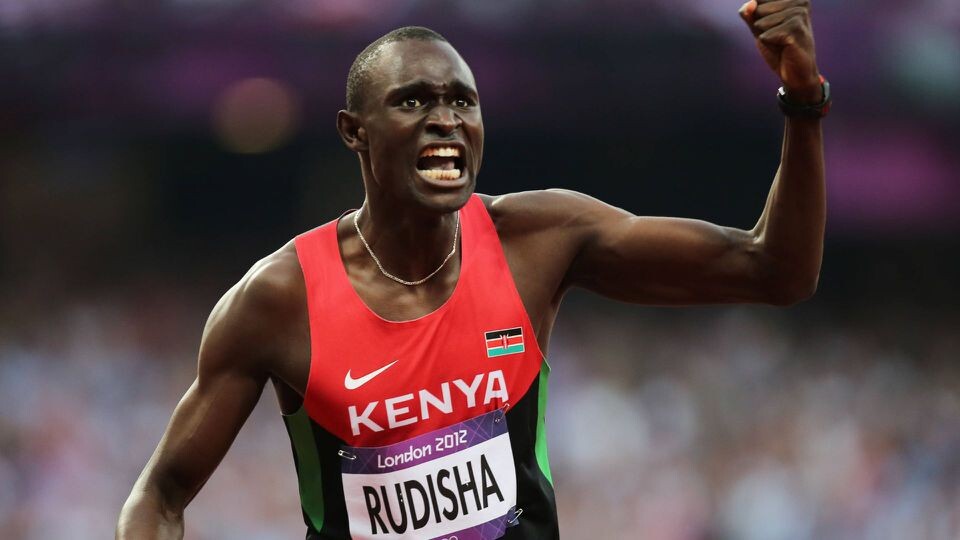
Wanyonyi, the reigning world 800m silver medalist, told Sports Brief that he believes everything is possible and if Rudisha did it, he can also do it.
“In one of my first interviews, I said that I would break the world record. I want to use my talent to show people that it is possible.
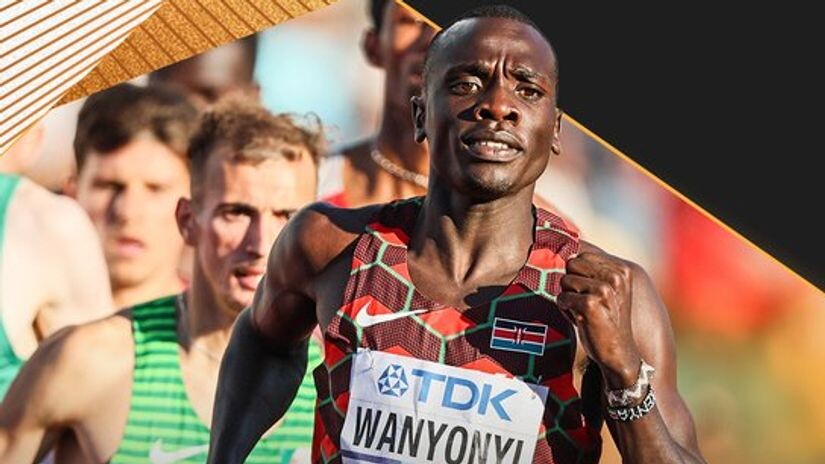
"If David Rudisha did it, I can also do it. I just have to believe in my potential,” Wanyonyi said.
On his part, Rudisha first broke the world record on August 22, 2010, at the ISTAF World Challenge meeting in Berlin where he clocked 1:41.09 to win the race.
He then went ahead to break his own world record, clocking 1:40.91 set during the 2012 London Olympic Games that still stands to date.
Meanwhile, 19-year-old also talked about his training routine which has seen him achieve a number of feats in the 2023 season.
At just 19, he bagged a silver medal at the World Championships in Budapest, Hungary, finishing second behind Canada’s Marco Arop, 25.
He also won the Diamond League Meeting final, Prefontaine Classic, held at the Hayward Field in Eugene, USA.
Wanyonyi explained that his training includes a 20 to 25-kilometer run on alternate days. He also switches the running with fieldwork to work on speed, given that 800m is a combination of endurance and a little bit of sprinting towards the tail end.
by Abigael Wuafula
Login to leave a comment
David Rudisha explains significance of Olympic Games in his glittering career
David Rudisha has explained why the Olympic Games are special to him and will forever be in his story.
World 800m record holder David Rudisha will forever hold the Olympic Games close to his heart because of the memories he made.
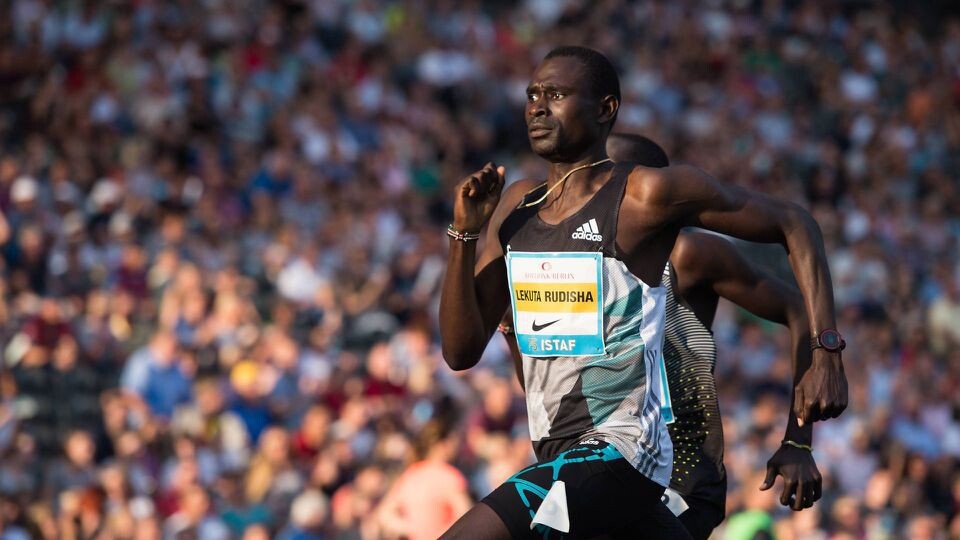
Rudisha first broke the world record on August 22, 2010, at the ISTAF World Challenge meeting in Berlin where he clocked 1:41.09 to win the race.
He then went ahead to break his own world record, clocking 1:40.91 during the 2012 London Olympic Games which still stands to date. The two-time World champion then defended his title at the Rio Olympic Games in 2016.
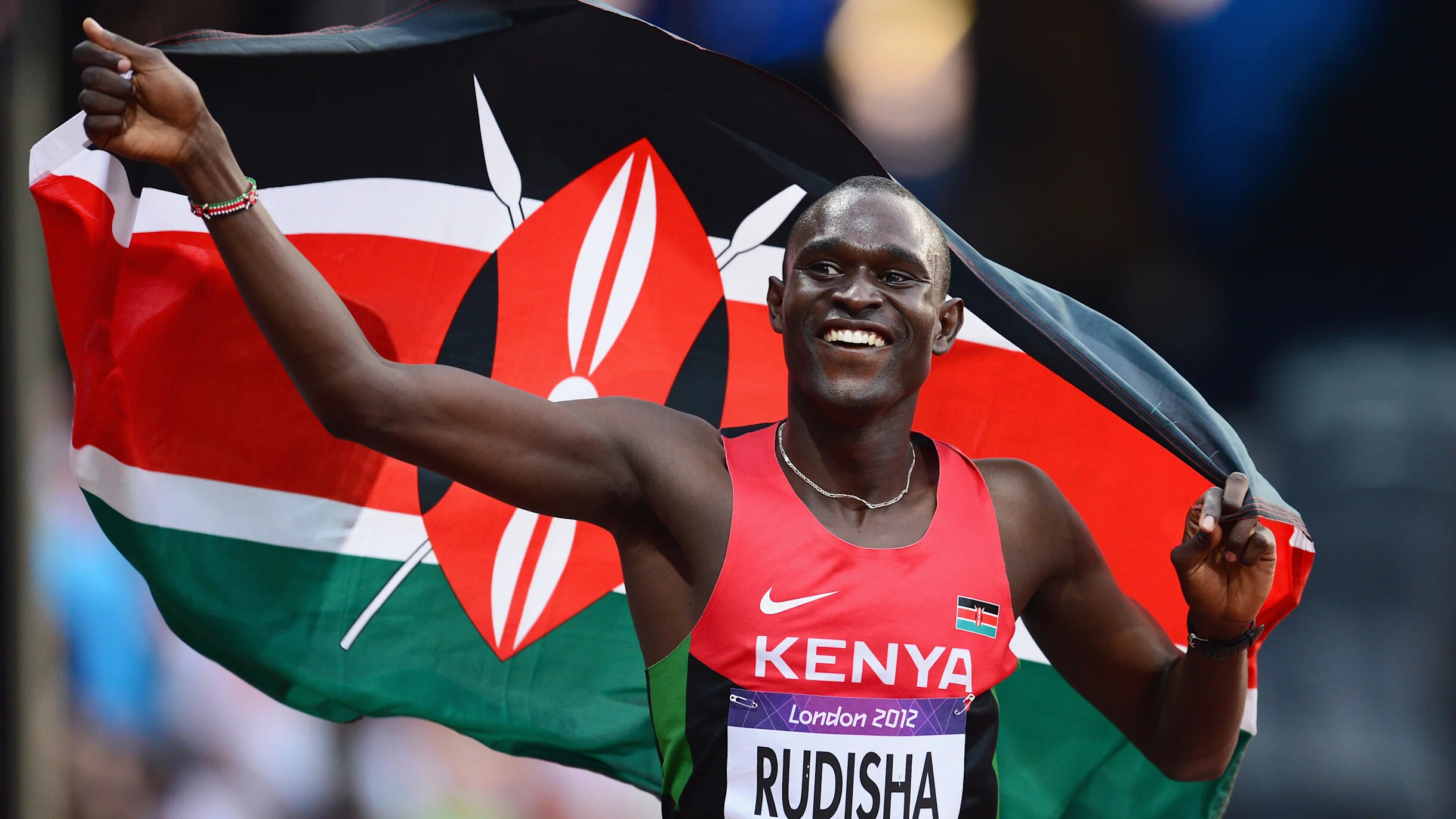
“Olympics are very special to me and one of the greatest stages one can compete on…I have so many memories of the event.
"That is where I made history in London 2012 where I won the 800m and broke the world record. I also defended my title in Rio in 2016.
"It is a special event and will always remain in my mind and will be a story for the rest of my life because that is where I hit the top,” Rudisha said.
The 34-year-old is also bubbling with excitement ahead of next year’s Olympic Games scheduled for Paris, France where he will particularly be following the 800m.
Rudisha revealed that he is expecting a good outcome since there are strong athletes who have come up in the two lap race.
He singled out world 800m champion Mary Moraa and silver medallist Emmanuel Wanyonyi, noting that he expects them to do wonders.
“The 800m is close to my heart since it was my specialty during my prime. I’m very keen and will be looking forward to seeing young guys like Wanyonyi who did very well at the World Championships.
"We hope he will be more experienced and will be the one to watch. Moraa will also be trying her best to clinch Kenya a gold medal since it’s missing in her trophy cabinet,” he concluded.“The 800m is close to my heart since it was my specialty during my prime. I’m very keen and will be looking forward to seeing young guys like Wanyonyi who did very well at the World Championships.
"We hope he will be more experienced and will be the one to watch. Moraa will also be trying her best to clinch Kenya a gold medal since it’s missing in her trophy cabinet,” he concluded.
by Abigael Wuafula
Login to leave a comment
Kelvin Kiptum, Noah Lyles among 11 men shortlisted for World Athlete of the Year Award
World marathon record holder Kelvin Kiptum will battle it out for the Men’s World Athlete of the Year Award with 10 other athletes, including world 100m and 200m champion Noah Lyles
World marathon record holder Kelvin Kiptum has been shortlisted for the World Athletics’ Men’s World Athlete of the Year Award.
Kiptum, who ran an astonishing 2:00:35 at the Chicago Marathon on Sunday, is among 11 male athletes who had an outstanding 2023 season who have made the shortlist.
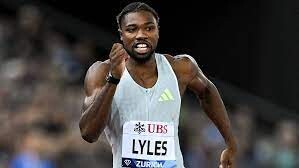
The 23-year-old has made the list after winning in Chicago and breaking Eliud Kipchoge’s world record by 34 seconds as well as claiming victory at the London Marathon in April, when he clocked 2:01:25, the second fastest time in history at the time.
Kiptum will battle it out for the prestigious award with American Noah Lyles, the world 100m and 200m champion who was undefeated in six finals at 200m.
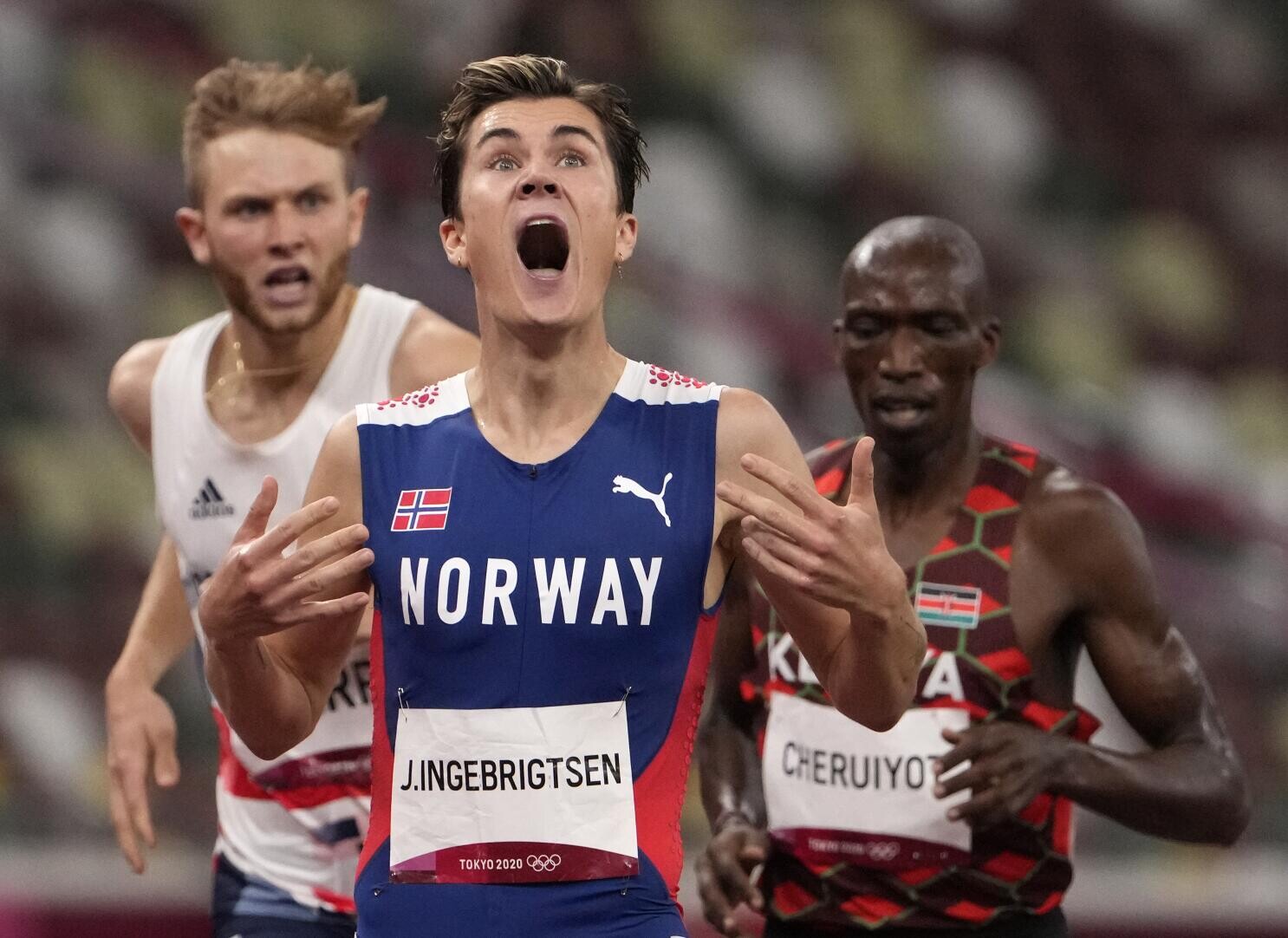
Norwegian Jakob Ingebrigtsen, the world 5,000m champion and 1,500m silver medalist, who is also the European record holder in 1,500m, mile and 3,000m, is also among those shortlisted as well as Morocco’s Soufiane El Bakkali, the world 3,000m steeplechase champion, who was undefeated in six finals in 2023.
World javelin and Asian champion Neeraj Chopra from India, American Ryan Crouser, the world shot put champion and record holder, American-born Swede Mondo Duplantis, who is the world pole vault champion, and Decathlete Pierce LePage from Canada are also on the list.
World walking race champion Alvaro Martin from Spain, Miltiadis Tentoglou, the world long jump champion, and 400m hurdles world champion Karsten Warholm complete the 11-man shortlist.
A three-way voting process will determine the finalist wit the World Athletics Council and the World Athletics Family casting their votes by email, while fans can vote online via the World Athletics social media platforms.
Individual graphics for each nominee will be posted on Facebook, X, Instagram and YouTube this week; a 'like' on Facebook, Instagram and YouTube or a retweet on X will count as one vote.
The World Athletics Council’s vote will count for 50 per cent of the result, while the World Athletics Family’s votes and the public votes will each count for 25 per cent of the final result.
Voting for the World Athletes of the Year will close on October 28. At the conclusion of the voting process, five women and five men finalists will be announced by World Athletics on 13-14 November. The winners will be revealed on World Athletics’ social media platforms on 11 December.
Kiptum will be seeking to join Kipchoge and David Rudisha as the Kenyan men to have won the prestigious award while multiple world champion Faith Kipyegon seeks to become the first woman from the country to be feted.
by Joel Omotto
Login to leave a comment
Wanyonyi sets focus on Paris 2024 Olympic Games
World 800m silver medalist Emmanuel Wanyonyi is already looking forward to the Paris 2024 Olympic Games after bagging silver at the World Athletics Championships which concluded last night.
Wanyonyi won silver in a time of 1:44.53 behind Canadian Marco Arop who took gold in 1:44.24. Ben Pattison completed the podium in 1:44.83.
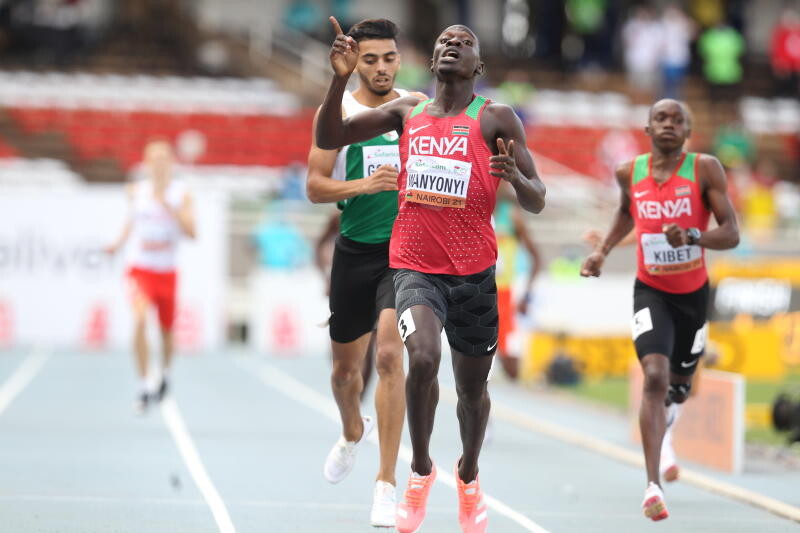
Wanyonyi said the silver not only means a whole world to him but it’s a great inspiration going into an Olympic year.
He added the silver is a dream come true after finishing fourth at the World Championships last year in Oregon. He said the story would have been even better for him if the race was faster.
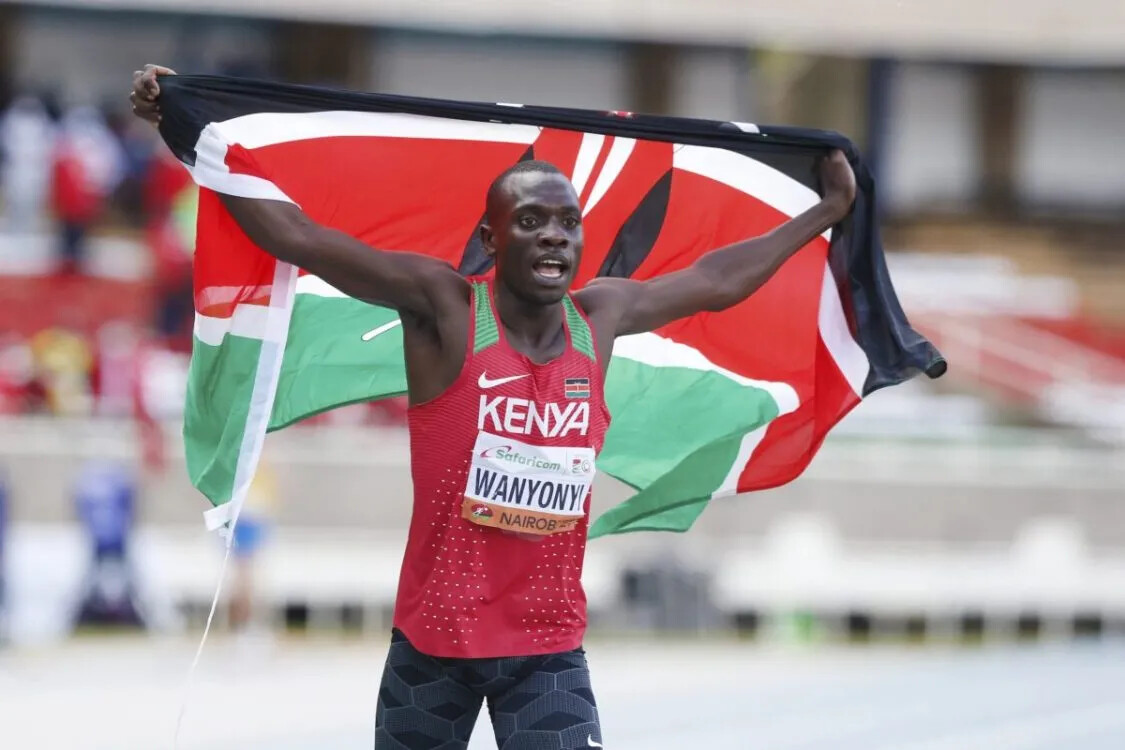
“I tend to thrive better in a faster race but this one was very slow. All the same, I thank God for the silver and I can only build up on it,” he added.
He talked to Kenya’s 800m world record holder, David Rudisha, just before the race and this gave him a lot of motivation.
“Rudisha told me to relax, believe in myself, and go for it and I guess that is exactly what I did,” noted Wanyonyi.
He said he would have loved to qualify for the final alongside fellow Kenyans, including Olympic champion Emmanuel Korir, Ferguson Rotich, and Alex Ngeno, but things did not work out and he was left as a lone ranger.
“Maybe if we were here all of us we would have won the title. Unfortunately, my colleagues were locked out with injuries and I just had to do what I did,” he noted.
Wanyonyi paid tribute to, especially, Korir and Ferguson, saying they are better runners than him especially when they are fit.
“As Kenyans, we just need to celebrate this silver because there is little we can do about injuries as was the case of Korir and Ferguson,” he noted.
He said he had learned that the World Championships are a totally different ball game compared to the Diamond League.
“ At the global championships, one has to go through the first round, semis, and eventually final, and surviving through all stages can be tricky. Just one mistake can easily lock you out and I guess this is what happened to many athletes,” he added.
He explained that the Diamond League is a one-off with comparatively easier competition.
He will compete in the Xiamen Diamond League in China on September 2 before returning home.
Wanyonyi, who is currently a Form 4 student, said it has been a delicate balance between books and training.
He, however, noted that he is happy that he is doing his final year and he can not wait.
by Chris Mbaisi
Login to leave a comment
Paris 2024 Olympic Games
For this historic event, the City of Light is thinking big! Visitors will be able to watch events at top sporting venues in Paris and the Paris region, as well as at emblematic monuments in the capital visited by several millions of tourists each year. The promise of exceptional moments to experience in an exceptional setting! A great way to...
more...World Athletics provides equipment to support Ukrainian athletes
World Athletics President Sebastian Coe has met with members of the Ukrainian team and newly elected World Athletics Council member Nataliya Dobrynska in Budapest to deliver much-needed equipment provided by the Ukraine Fund.
The fund – which was established by World Athletics, together with the International Athletics Foundation (IAF) and Members of the Diamond League Association, last year and renewed in May – was created to support elite athletes affected by the conflict in their home country.
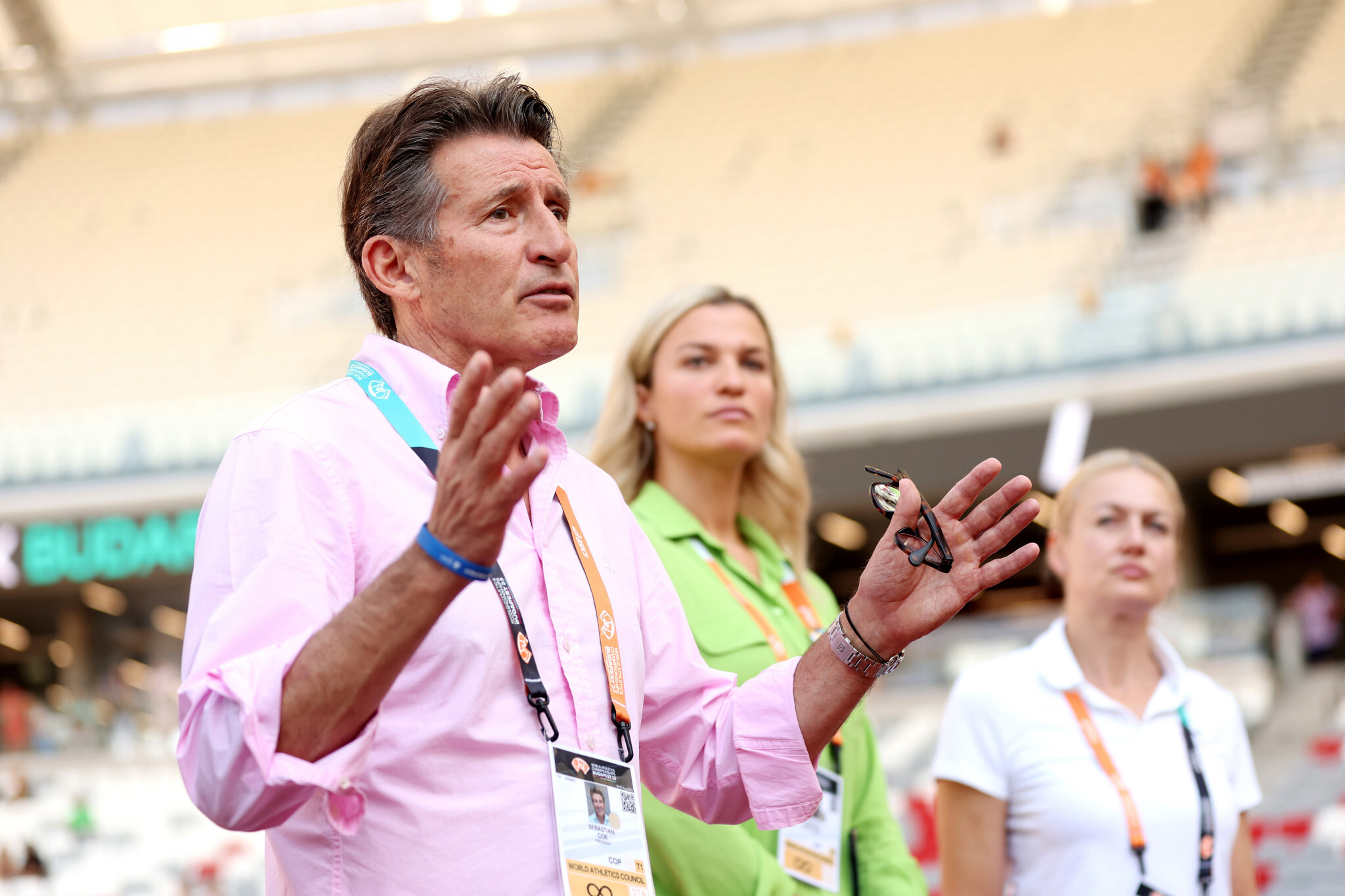
Its primary purpose is to ensure that Ukrainian athletes can continue to train, qualify for and participate in World Championship events, following Russia’s invasion of Ukraine last year. A team of 29 Ukrainian athletes is currently competing at the World Athletics Championships in Budapest.
The fund has USD$190,000 available this year to assist the athletes, their immediate family and key support personnel. As well as paying for travel and accommodation for elite athletes at training camps, and for non-quota officials and athletes at World Athletics Series events, support also included purchasing equipment – particularly for the pole vault – to replace items that have been destroyed during missile attacks.
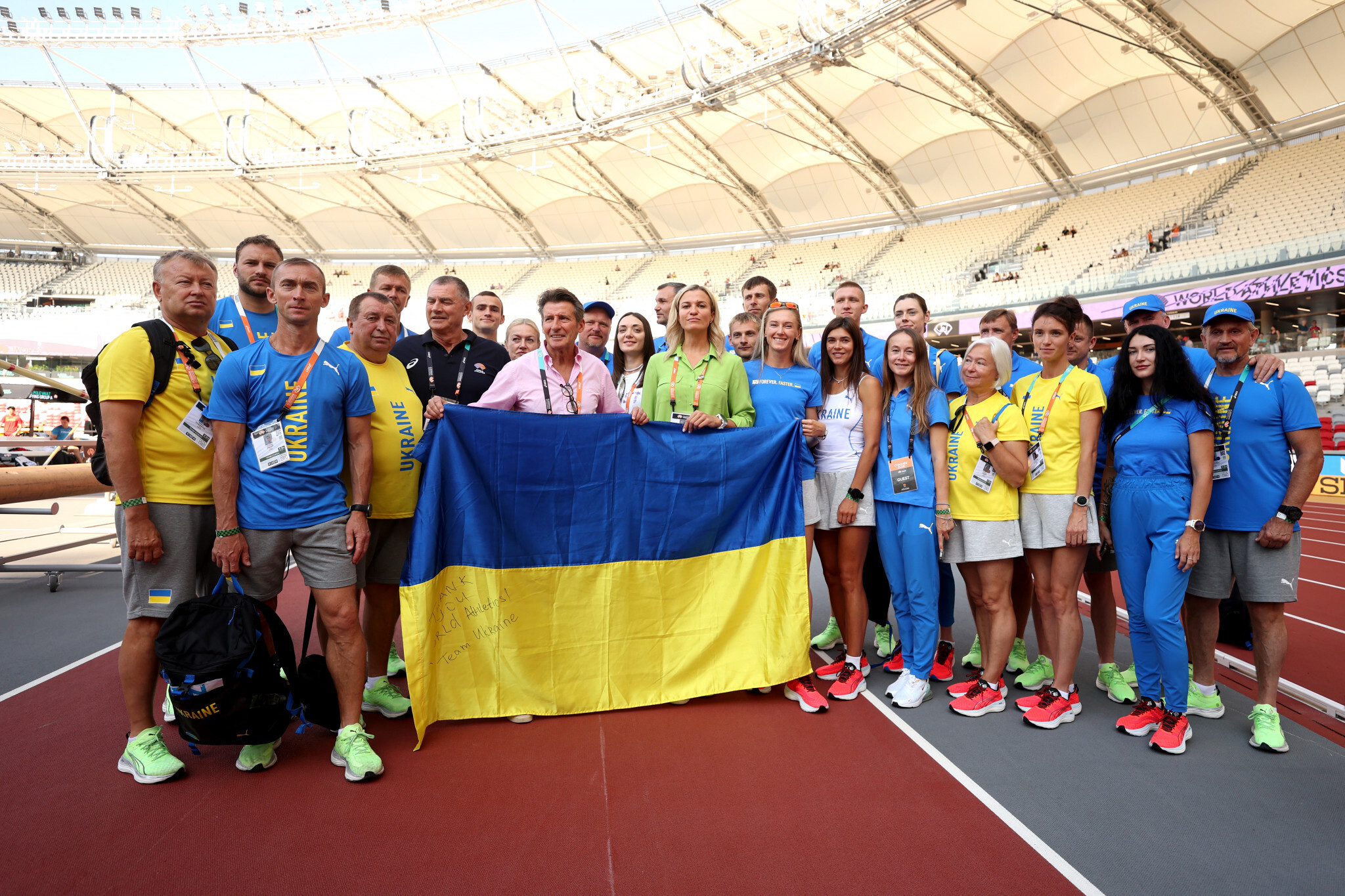
On Thursday (24) Ukraine marks its 32nd anniversary of independence and, meeting with the athletes the day before that anniversary, Coe said: “I am grateful you are here competing at this 40th anniversary of the World Championships.
“I know how hard it has been for you emotionally and physically. I have spoken to many of you since Russia invaded Ukraine in February last year. And I want you to know that World Athletics will continue to support you as long as you need help.”
The equipment provided includes pole vault poles, as well as mats.
“This year, we have heard your request to provide athletics equipment destroyed by the war, and support for summer camp training and preparation for Budapest,” Coe added. “And this is where we have focused our efforts. We have the poles, and I am delighted they are being used. The mats will follow.
“Thank you, all of you – the athletes, the coaches and the federation – for keeping our sport alive in Ukraine.”
Dobrynska said: “Today, we come together to express our huge gratitude to World Athletics, led by President Sebastian Coe, for being a pillar of support during these challenging times in Ukraine.
“In a world that sometimes feels divided, you remind us of the power of unity. You should know that all of Ukraine appreciates your commitment and involvement in what our athletes are trying to achieve under very difficult circumstances.”
It is expected that up to 100 members of the Ukrainian athletics community may require some financial support this year.
Also on Wednesday, Ukrainian 400m hurdler Anna Ryzhykova, Athlete Refugee Team (ART) member Perina Nakang, ART coach Janeth Jepkosgei and World Athletics ambassador David Rudisha met with refugees families, including those from Ukraine, currently living in Hungary.
The refugee families, who are being assisted by the UN refugee agency UNHCR and Hungarian agency Menedek, were provided with tickets to attend Wednesday morning’s session of the World Athletics Championships before meeting with the athletes.
They came together at the WCH Budapest 23 Green Zone, which is hosting sustainability awareness-raising activities and meet & greets with athletes over the course of the championships.
by World Athletics
Login to leave a comment
David Rudisha reveals his favorite track athletes in Budapest
Rudisha has already spotted some of his favorite athletes who he believes are the future of the track.
World 800m record holder David Rudisha is currently in Budapest for the World Championships, this time around not as an athlete but as an ambassador.
So far in his stay there, the two-time Olympic 800m champion has already spotted some of his favorite athletes who he believes are the future of the track.
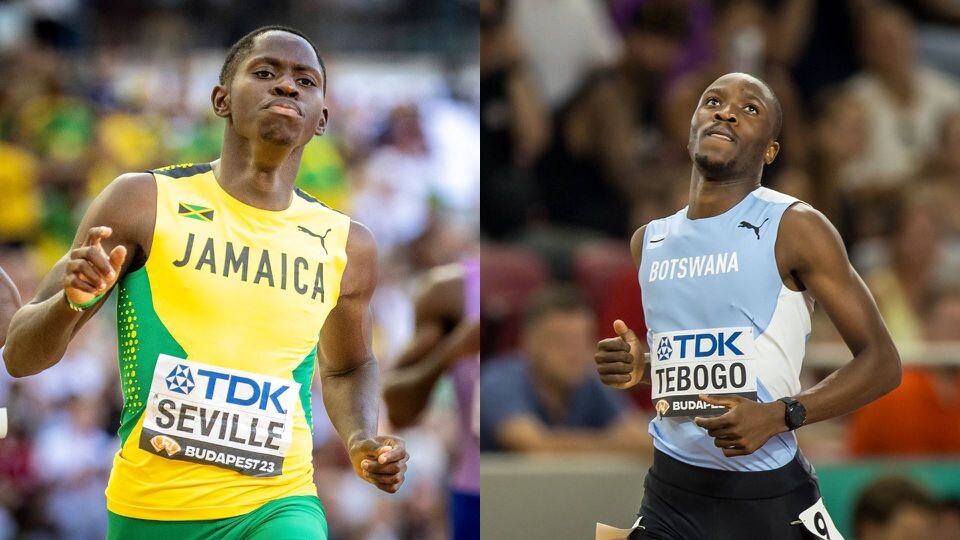
Speaking to Citius Mag, Rudisha disclosed that Botswana’s wonder kid Letsile Tebogo and Jamaica’s Oblique Seville. Tebogo on Sunday night, August 20 made history to become the first African to win a medal in the 100m at the World Championships.
In the men’s 100m final, Seville finished fourth behind Great Britain’s Zharnel Hughes. World 200m champion Noah Lyles reigned supreme in the race. Apart from finishing fourth in the final, Seville also equaled his Personal Best time of 9.86 during the Heats of the event.
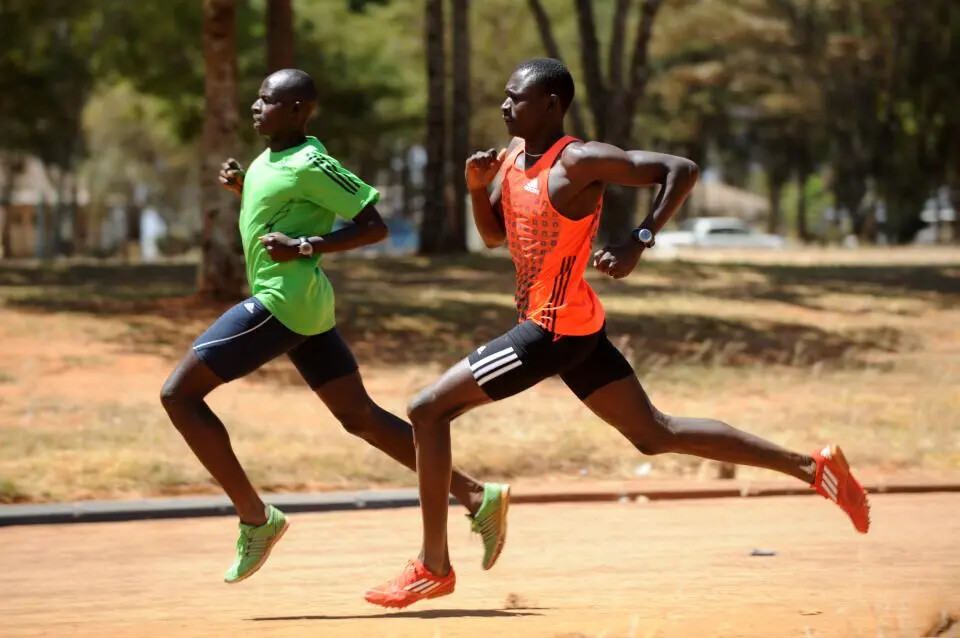
“We have very strong young athletes who are taking over the stage…every day is full of surprises. Letsile Tebogo was just coming from the junior category and he is doing so well at the moment.
We also have Seville from Jamaica who is very impressive. He has run fast times here and I’m impressed. These ones are now the future of the sport,” Rudisha said.
He added that it is also amazing to see Africa doing well in the sprints and he singled out Africa’s fastest man Ferdinand Omanyala.
Even though he failed to impress at the World Championships after finishing seventh, Rudisha lauded him for placing Kenya on the world map.
“He is really doing well and these are some of the athletes we admire since they are the future,” Rudisha said.
by Abigael Wuafula
Login to leave a comment
World Athletics Championships Budapest 23
From August 19-27, 2023, Budapest will host the world's third largest sporting event, the World Athletics Championships. It is the largest sporting event in the history of Hungary, attended by athletes from more than 200 countries, whose news will reach more than one billion people. Athletics is the foundation of all sports. It represents strength, speed, dexterity and endurance, the...
more...Is Wavelight technology good for the sport?
Last week at the Paris Diamond League, we witnessed one of the most extraordinary single-day spectacles in the history of the sport. Over the course of two hours, two world records and a world best were shattered; the races were nothing short of spectacular, particularly when Faith Kipyegon skilfully closed the gap on the Wavelight during the final two laps, leaving Ethiopia’s Letesenbet Gidey in the dust and achieving the seemingly impossible: a new women’s 5,000m world record.
The question of whether Wavelights are beneficial for the sport remains subjective, with opinions among track fans varying. On one hand, they enhance the performance and make races more engaging for spectators at the track or watching from home. On the other hand, they provide a precise pacing strategy for elite athletes, potentially facilitating faster times and diminishing the traditional element of intense competition.What is Wavelight technology?
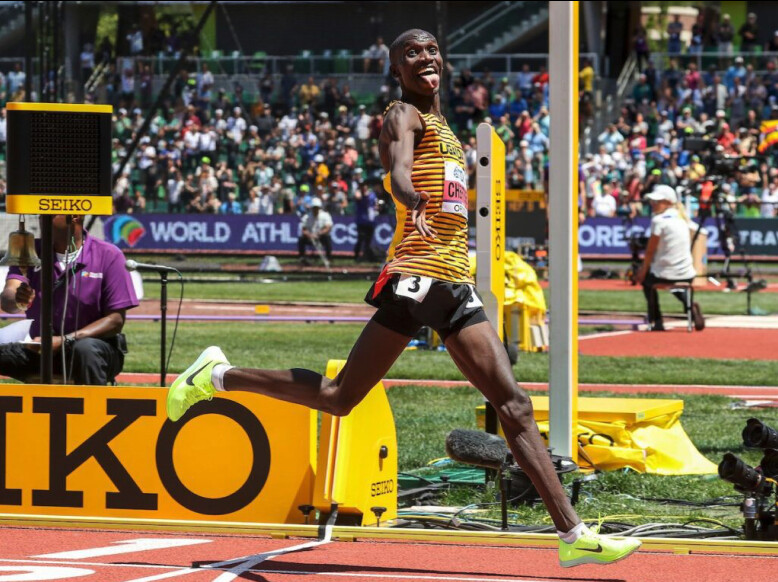
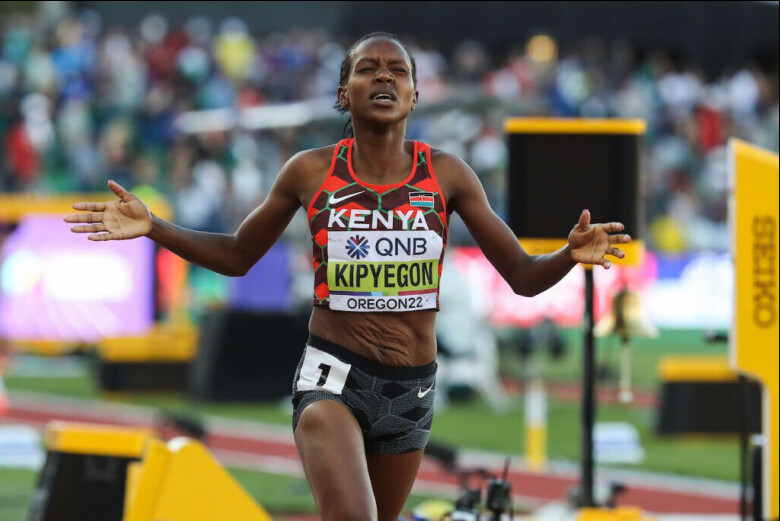
Wavelight technology, named for the Mexican Wave, was introduced by World Athletics in 2019. It serves as a tool for athletes and spectators, offering assistance with pacing and providing a visual representation of the race’s progression. A wave of lights appears along the inside edge of the track, moving at the desired pace for the race. Typically used in distance events like the 800m, 1,500m, or 5,000m, these lights are programmed to signify specific benchmarks, such as world championship standards, meeting records or world record times.Pros
People are drawn to track and field events to witness athletes breaking records, and Wavelight can serve as a valuable tool for athletes to gauge their paces and attempt to break records. A notable example: at the Paris Diamond League on June 9, where Jakob Ingebrigtsen of Norway and Lamecha Girma of Ethiopia ran ahead of the lights to set new records in their respective races. In Girma’s case, the lights pushed and challenged him throughout the 3,000m steeplechase, with Girma narrowly staying ahead in the final 100m to break the previous world record by one second.
Girma’s reliance on the lights became evident as his pace dropped off after 1,000m, and he had to dig deep to maintain the pace set by the flashing lights. Without them, it is unlikely he would have achieved the record.Track and field has faced challenges since the departure of Usain Bolt in 2017, with the sport seeking its next superstar. The success of major events like the World Championships and the Olympic Games significantly increases the sport’s popularity.
World Athletics recognizes the importance of world or national records in the Diamond League circuit, which contribute to increased viewership. The implementation of Wavelight technology allows athletes to run faster and challenge these record times, catering to the audience’s desire for exciting and fast-paced performances.While not every race will produce record-breaking times, Wavelight enhances the potential for thrilling performances that captivate viewers and generate greater interest in the sport.
Cons
When Ingebrigtsen shattered Daniel Komen’s two-mile record, which had stood for 26 years, my immediate thought was how fast Komen could have run with today’s technology. Komen had pacers guide him through the first 2,000m before running the final kilometre alone against the clock. Similarly, Ingebrigtsen had pacers until around the 2,000m mark, but they gradually dropped off, leaving him with a lead of 10-15 metres over the lights.
Depending on the race style or purpose, I believe Wavelight can have a positive impact on the sport. But they also detract from what track and field is fundamentally about—the world’s best athletes competing against one another. Watching a Diamond League event where one athlete outpaces the rest of the field by 15 to 20 seconds in the 3,000m steeplechase does not benefit the sport. While celebrating superstars is important, track and field legends like Komen, Kenenisa Bekele, Genzebe Dibaba and David Rudisha never had events specifically set up for them to chase world records.
They achieved their records in the heat of competition, racing against other competitors. This is where I believe Wavelight technology crosses a line.A compelling comparison was published in Track & Field News in 2020, analyzing the current and former 10,000m world records—Joshua Cheptegei’s record with pace lights versus Bekele’s record without them. The analysis revealed that Cheptegei maintained much more even splits than Bekele, with a variance of less than a second (0.8s) between his kilometres, which is truly remarkable. In contrast, Bekele’s variance was five times greater, with a difference of nearly five seconds between his fastest and slowest kilometres.I am not suggesting that Wavelights are ruining the sport of track and field, but I believe their use should be limited to specific situations, such as aiming for world standards or being present only during the final lap or two of distances ranging from 1,500m to 10,000m.
By implementing such limits, World Athletics can strike a balance between using technology for pacing assistance and preserving the essence of competitive racing.
by Running Magazine
Login to leave a comment
Rhonex Kipruto, 10K world record holder, suspended on doping allegations
On Wednesday, the Athletics Integrity Unit (AIU) announced the provisional suspension of 10K world record holder Rhonex Kipruto of Kenya. The 23-year-old was charged with the use of a prohibited substance or a prohibited method related to his Athlete Biological Passport (ABP).
Kipruto is the fastest man in history over 10 kilometres, clocking an impressive 26:24 on the roads at the Valencia 10K in January 2020. He is also the third-fastest half marathoner in history with a personal best of 57:49. Kipruto won a global medal at the 2019 World Athletics Championships in Doha in the 10,000m, finishing third behind Uganda’s Joshua Cheptegei and Ethiopia’s Yomif Kejelcha.
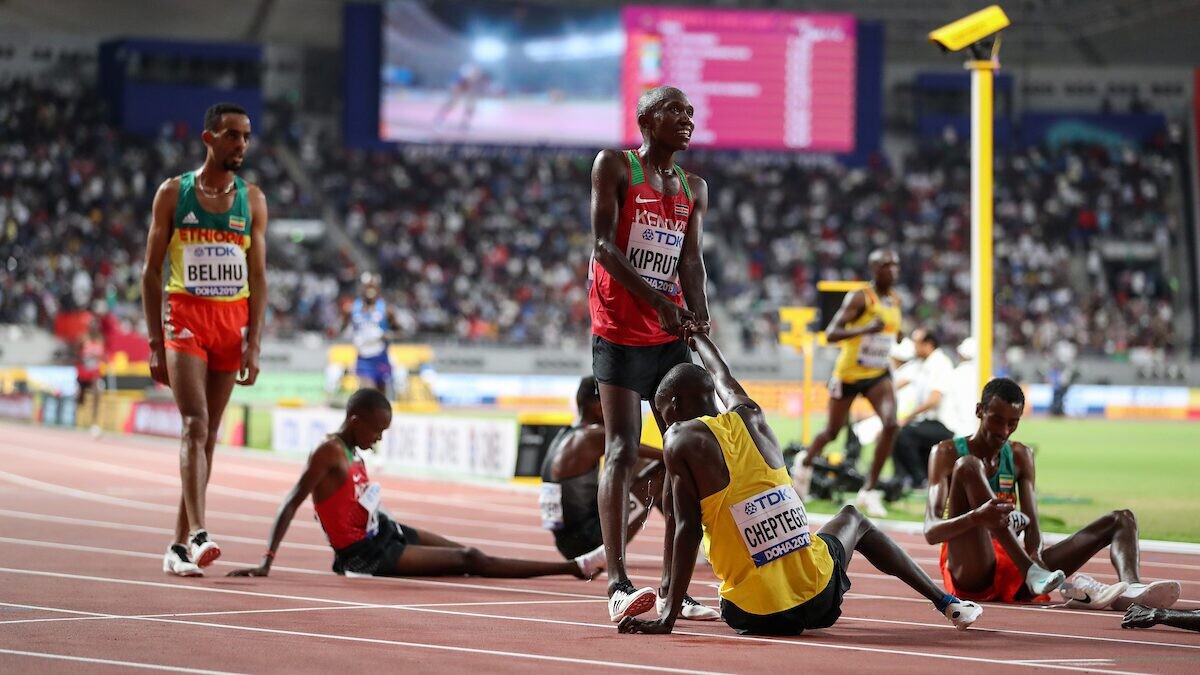
Kipruto has been informed by the AIU of alleged inconsistencies in his ABP blood values, dating back to 2018. The AIU has not directly accused him of using prohibited substances, but he is provisionally suspended and asked to provide an explanation.
What is an ABP suspension?
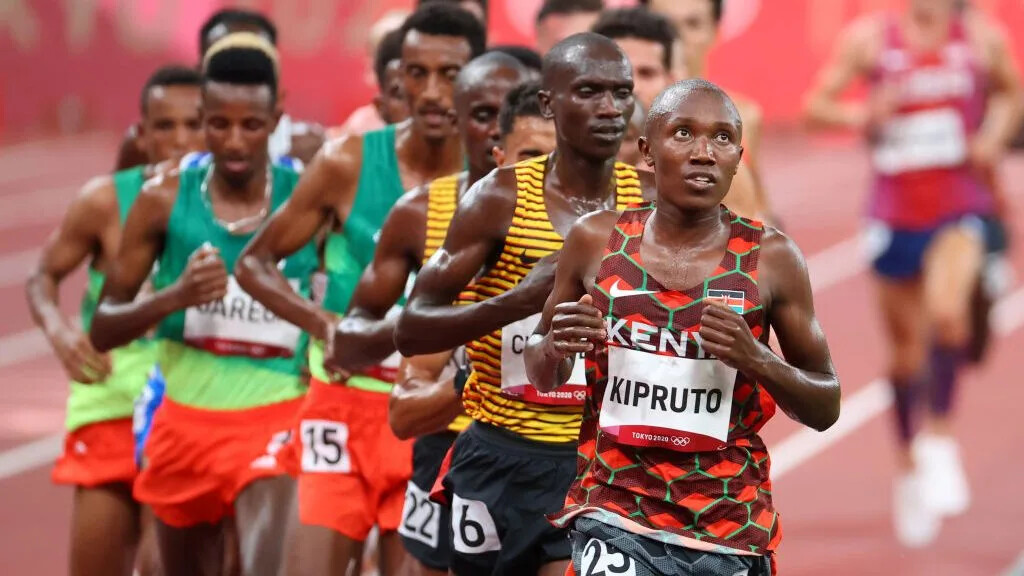
The purpose of an Athlete Biological Passport is to track their blood values over a long period to monitor for possible signs of doping, even if they never fail a drug test.
The AIU will analyze an athlete’s ABP data to monitor select biological parameters over time that may indirectly reveal the effects of doping. This approach allows the AIU to generate profiles for each athlete and to look for any fluctuations that may indicate that the athlete has been using performance-enhancing drugs.
The profile for each athlete is generated based on statistics that utilize data from previous (given) samples to predict the individual’s performance limits or range for future samples. According to the AIU, if any data from a test sample falls outside of the athlete’s range, it could be an indication of doping.
In Kipruto’s case, he has been sentenced to a provisional suspension while the AIU investigates further and schedules a hearing, meaning he is unable to compete or train with his training group until the case is closed. If Kipruto is found guilty at the hearing, he could face a four-year plus suspension.
Kipruto denies the charges
Kipruto’s agency, Ikaika Sports, released a 4,000-word press release acknowledging the provisional suspension, denying the charges. “I don’t cheat or dope!” said Kipruto after the announcement. “The truth is on my side. This is all I can say.”
His agency included expert opinions suggesting that there may be other factors, such as training load, health status, hydration, travel, and alcohol consumption, that could explain Kipruto’s ABP values.
Kipruto is coached by the famous Irish athletics coach Colm O’Connell, who is nicknamed the “Godfather of Kenyan running”. O’Connell has coached the likes of two-time Olympic 800m champion and world record holder David Rudisha and two-time Boston Marathon champion Edna Kiplagat. According to the press release, O’Connell has not had a single doping case in his 50-year coaching career.
His agency expresses concerns about the presumption of guilt and the lack of transparency in the ABP process, emphasizing Kipruto’s clean record, regular testing, and willingness to undergo further study to clear his name.
by Marley Dickinson
Login to leave a comment
Nijel Amos is trying to sell his 2012 Olympic silver medal
One week after Botswana’s Nijel Amos was handed a three-year ban for doping, he is now selling the Olympic silver medal he won in the 800m at the London 2012 Olympics.
Amos’ reason for selling his Olympic medal is to support his family. According to the BBC, the 29-year-old met with someone who wants to buy it for 4.5m Botswanan pula (USD $300,000), but Amos believes the value of his medal will double with the release of his upcoming documentary on Netflix, to be released later this year.
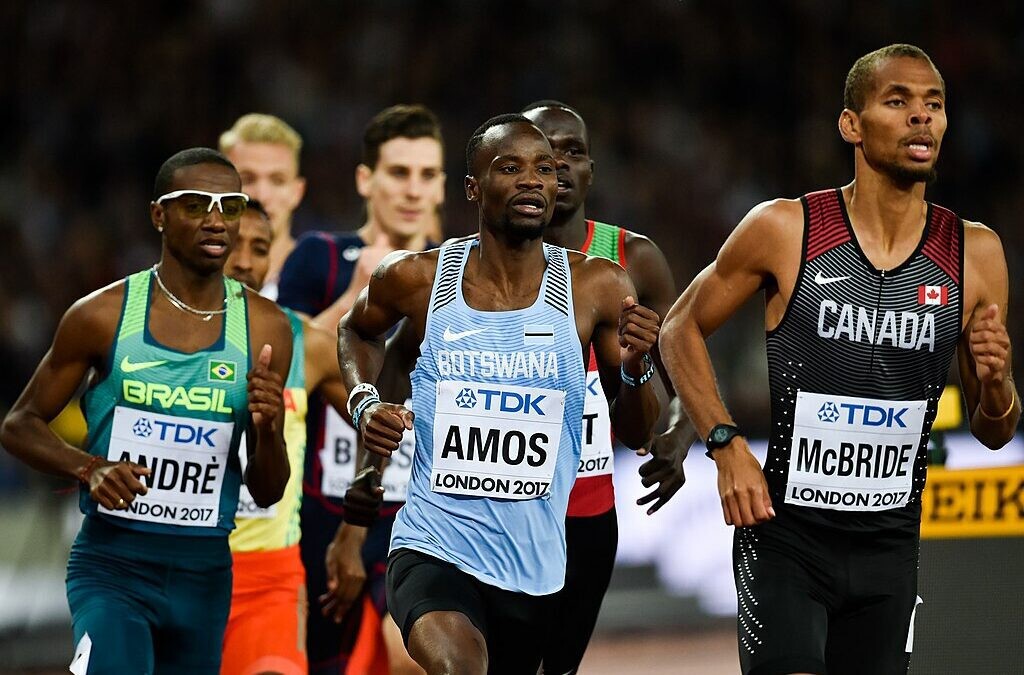
He finished second in the 800m behind world record holder David Rudisha of Kenya, making him the first Botswanan to win an Olympic medal in any event. Amos holds the third-fastest 800m time in history (1:41.73), and is one of only five men who have gone under 1:42.
The 800m runner was initially suspended in July 2022 after an out-of-competition test revealed a banned metabolic modulator, GW1516. Amos faced a four-year ban, but it was reduced to three years after he signed a letter of admission.
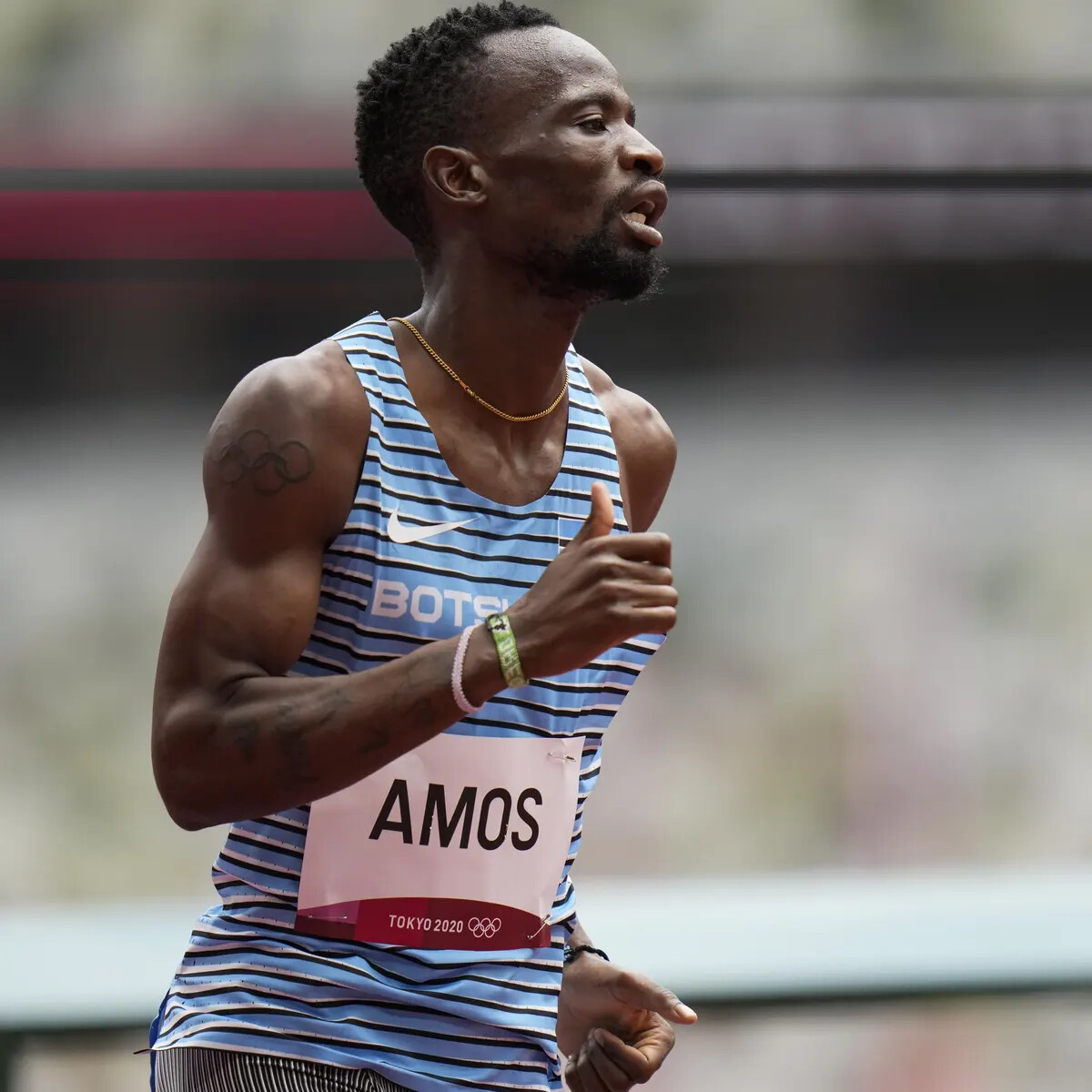
However, he is still fighting the case. “It has been a financially draining process,” Amos said in a statement. He has reportedly incurred $67,000 in legal fees and travel expenses.
Amos said it is difficult to survive in Botswana, where athletes are not given pensions or any lump sum insurance payouts.
GW1516 was originally developed to treat obesity and diabetes but is not approved for human use, since it was discovered to be carcinogenic. It is banned in and out of competition, and not eligible for a therapeutic use exemption (TUE).
by Marley Dickinson
Login to leave a comment
Botswana’s Nijel Amos 800m star and Olympic medalist, banned three years for doping
Botswana’s Nijel Amos, the joint-third-fastest 800m runner in history, was banned three years for doping.
The case stemmed to last June, when he tested positive for GW1516, an experimental drug which can modify the body’s metabolism but has been considered too dangerous for human use.
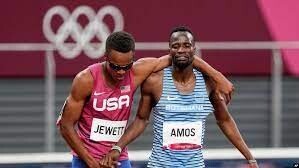
The ban was backdated to last July, when Amos was provisionally suspended pending an investigation. His ban now runs to 2025, which means the 29-year-old Amos will miss the 2024 Paris Olympics.
Amos received a one-year reduction of what would otherwise be a four-year ban because he made an early admission and acceptance of the suspension.
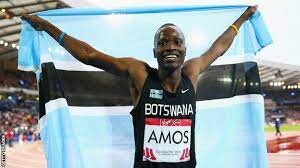
That came after he requested a supplement be tested for the presence of the drug. The test did not detect any GW1516 in opened and sealed bottles.
GW1516 was developed to help build endurance and burn fat but was found to cause cancer during tests on rodents. Anti-doping organizations have warned athletes not to use it on safety grounds.
The drug has previously been found in samples given by professional cyclists and by Olympic race walker Elena Lashmanova. The Russian served a two-year ban and was later stripped of the 20km gold medal she won at the 2012 Olympics for another doping offense.
In 2012, Amos, then 18, took silver in the 800m at the London Games in what many called the greatest Olympic race in history. Kenyan David Rudisha lowered his world record. Amos matched Seb Coe as the third-fastest man in history in the event (1:41.73). Every runner’s time was the fastest ever for that finishing placement.
Amos has not won an Olympic or world championships medal since. In July 2019, he ran 1:41.89, the world’s best time since that London Olympic final.
At the Tokyo Olympics, Amos and American Isaiah Jewett got tangled in the final lap of their semifinal. In an act of good sportsmanship, the runners helped each other up and later jogged across the finish line together in the last two places. Amos was granted a place in the final and finished eighth.
by OlympicTalk
Login to leave a comment
Recovery Running: What’s the Point?
This blog discusses the reasons why recovery running is an important part of any athlete’s training program and reflects on insights that the author noticed during a training camp in Iten, Kenya.
A small village called Iten in rural Kenya has produced some of the finest distance runners in the history of the sport; Olympic champions, world record holders and professional athletes choose to make this their training ground. It’s not uncommon to bump into someone on the street who can casually talk about their marathon pb of 2.08 or below who are far from boasting, or see a group or 20 athletes training at the track, all of whom have sub 28 minute 10k’s to their name.
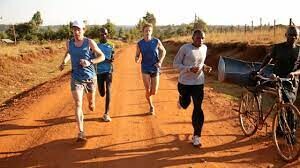
Would it then surprise you to see these same athletes jogging along the dirt trails at 9:00/mile pace?
We hear stories of top Kenyan athletes running well in excess of 100 miles per week but while that is indeed true for many individuals, there is still an overwhelming consensus that quality beats quantity. To train at ones best the body must be in good physical condition and the Kenyans are well aware of this fact. One aspect they believe is an important factor in this is recovery runs, and these are taken very seriously.
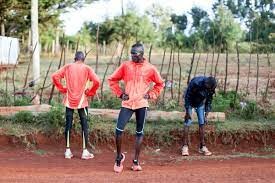
What is a recovery run?
When you train at a high intensity your muscles accumulate blood lactate, a by-product of anaerobic respiration. While we won’t delve into the science during this article it is important to understand that hard training takes its toll on the body and that without taking the time to recover it is extremely difficult to adapt to the stresses of exercise leading to fatigue, “burnout” and ultimately injury, not to mention that you won’t be getting the benefits of the hard training anyway.
A recovery run is a relatively short run at a very comfortable pace – typically under 60% of your maximum HR. These have a number of benefits but they may not be the ones you thought of. It is commonly taught that recovery runs will aid the removal of waste products from the body after hard training, however, there is in fact very little scientific evidence supporting this. Studies have shown that even after extremely taxing workouts, almost 100% of excess accumulated lactate is metabolised or removed from the body within 1 hour of the workout. Nor has there been any research indicating that recovery runs promote the repair of damaged tissues, restore glycogen reserves in the muscles or elicit any other physiological response that aids the recovery process…
So what’s the point?
At approximately 60% of maximum HR your heart reaches its maximum stroke volume. This means that despite running with a significantly reduced rate of energy expenditure, your heart muscle is contracting with as much force as it possibly can on each beat. Even at this easy pace you are training your heart muscle without fatiguing the rest of your body.
At a cellular level running at this pace stimulates growth of the mitochondria (the organelle responsible for energy production), increase capillary capacity and the ability to deliver oxygen to the muscles.
There are also several neuromuscular benefits. Although you may think of running as a task that you don’t need to “think” about, your brain is still in control of your limbs. Running at a slow pace allows you to develop neuromuscular pathways by focussing on correct running technique.
I think the third point above has particular relevance to Kenyan running culture. It is no coincidence that the Kenyans you see on TV look so fluent and graceful in the way they move. Take David Rudisha’s 800m world record for example; he front ran 2 laps of the track without breaking form, for sure he was working hard but he certainly didn’t look like it. Kenyans use their slow runs to work on their form. They are consciously thinking during the run; how their feet contact the ground, how it feels to breath, where their arms are positioned, how their heads are held etc. It’s very difficult to consider these things when running a hard track session, but when the time comes to run fast they don’t need to think about it, it’s been ingrained into their system.
So in fact, during a ‘recovery run’ you are still training your body; you are still stressing certain systems and certain parts of the body that will actually lead to improvement. But while doing so, since you are operating at an effort well below your max, your body can still continue it’s natural recovery process.
The Experts Viewpoint:
Last December, I joined a run with a group of athletes at St Patricks High School in Iten. I arrived not knowing what the workout would be. However having heard terrifying stories about how quick these guys were I was pretty nervous. What followed was very surprising. We did a warm up of some reaction games that involved jumping over a line painted on the ground and followed it with a 25 minute jog, in single file around a football field at approximately 10-12 minutes per mile pace. Legendary coach Brother Colm O’ Connell was leading the session and I asked what the point was. Otherwise I felt like I’d miss an opportunity to train hard amongst some of the worlds best runners. He replied “It’s so you can think”. I was able to think about where my feet were landing and how I was running compared to guy in front of me, how my breathing sounded compared to the guy behind me.
Of course these guys work incredibly hard when it’s time to do so, but they also take the time to think about their bodies, something that is often overlooked in the western training culture!
So the take home message may well be that these runs themselves may not directly influence ‘recovery’, but they allow you to continue to improve your fitness and work on your form, whilst you go through the natural recovery process. Which leads me to ask, if you can continue to get better whilst not compromising your recovery then why not?
by Callum Jones
Login to leave a comment
David Rudisha taken to hospital after surviving plane crash
Decorated athlete, David Rudisha was rushed to hospital after surviving a plane he was in crash-landed on Saturday, December 10.
The world 800m record holder was travelling to Nairobi from Kimana Wildlife Sanctuary in the company of others when the light aircraft they were travelling in crash-landed at Imbirikana area of Amboseli.

Athletics Kenya (AK) official Barnaba Korir confirmed the incident, stating that he had talked to Rudisha who had been attended to and was out of danger.
Korir added that the injured were taken to a hospital in Makindu for treatment.
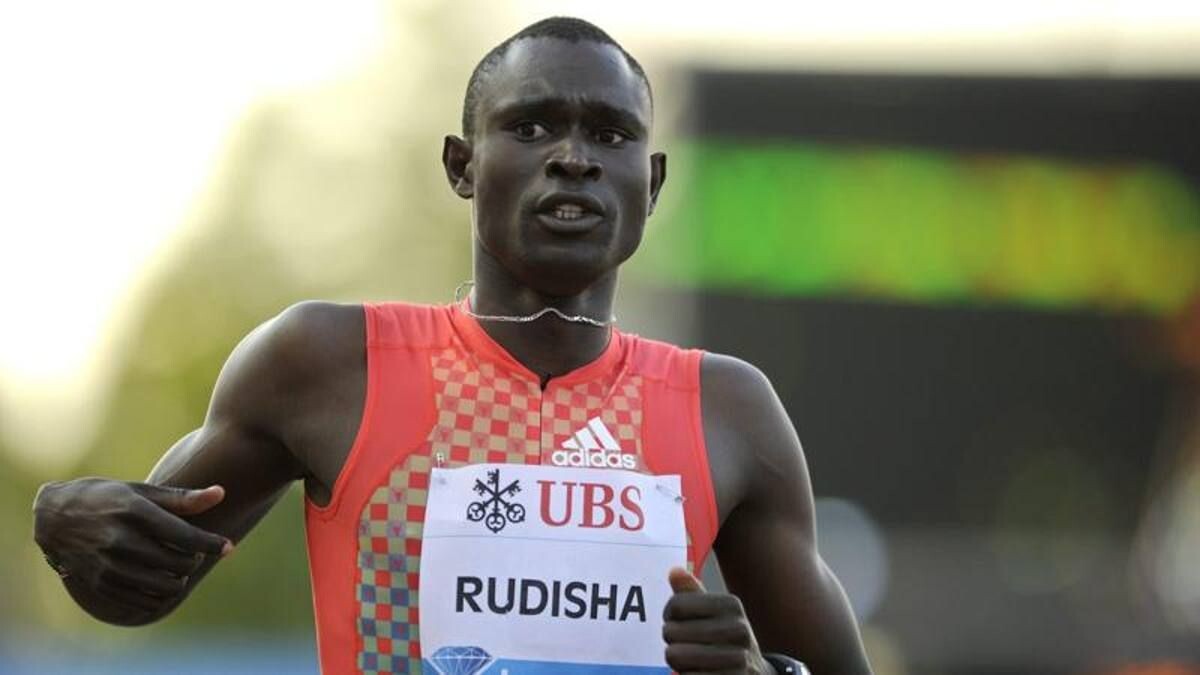
"I have spoken to Rudisha on phone and he told me that he has been attended to and is out of danger," Korir said in an interview with Nation.
The AK official added that the aircraft crash-landed shortly after taking off from Kimana Wildlife Sanctuary for Nairobi.
Kenya Defence Forces athletics chairman Stephen Ole Marai was also on board the aircraft at the time of the accident.
The occupants were rushed to a hospital in Makindu for treatment with investigations launched to establish the cause of the accident.
Initial reports indicate that the that the aircraft, bearing registration details FY-BGJ, developed mechanical problems that forced the pilot to crash-land.
The team was returning to the city from the 2022 Annual Masai Olympics where Rudisha was the chief guest at the event held at Kimana Wildlife Sanctuary in Kajiado South.
Earlier in the week, two people perished in a tragic plane crash in Tsavo East National Park on Thursday, December 8.
Mark Jenkins and his son, Peter died after the plane they were flying in crashed in Huri Plains in Tsavo East National Park.
by Charles Ouma
Login to leave a comment
David Rudisha mulls over transition to coaching
David Rudisha, the 2012 and 2016 Olympic 800m champion who last raced internationally five years ago, reportedly said he is considering transitioning into coaching.
“Actually I was thinking of coming back but at my age, I can’t make it in my specialty,” the 33-year-old Rudisha said, according to the Star in his native Kenya. “I have been discussing with my coach about coaching so it is an avenue I look forward to exploiting.”
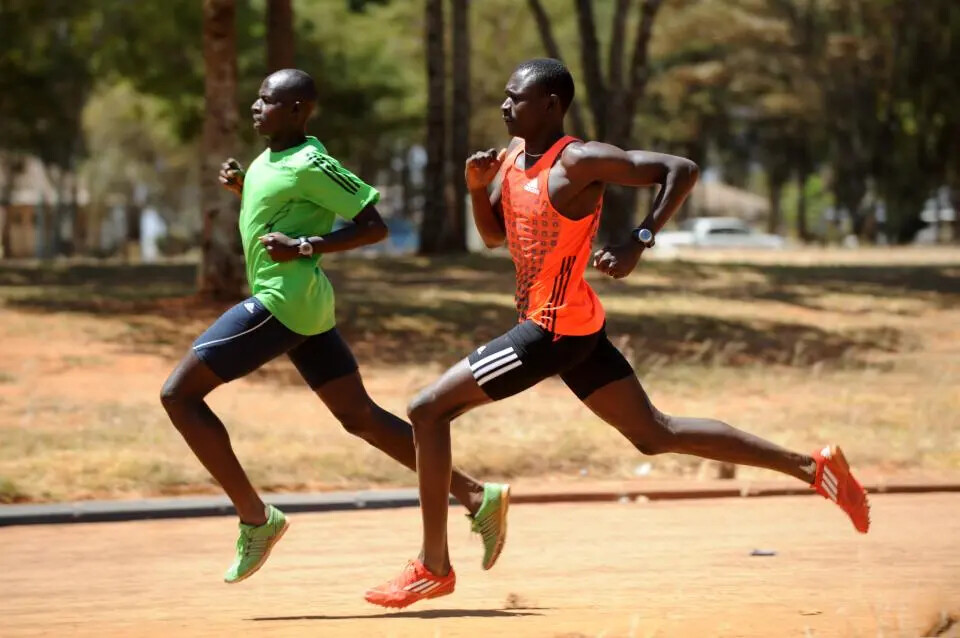
Rudisha, who last raced internationally on July 4, 2017, missed time in the last Olympic cycle due to a quad muscle strain, back problems, a car crash and surgery for a broken ankle. He underwent left leg surgery last November.
In his absence, another Kenyan, Emmanuel Korir, won the 800m at the Tokyo Olympics and this past July’s world championships.
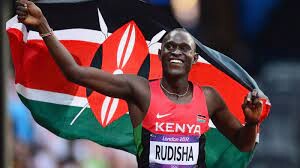
“I would have liked to shift to long-distance races, but my body is meant for short races,” Rudisha said, according to the report. “It won’t be long before I make my retirement plans public, but it’s a joy to watch the boys rule the world because that means we are still strong in the specialty.”
At the 2012 Olympics, the Maasai warrior Rudisha lowered his world record to 1:40.91, leading from the break and towing six of the seven other finalists to personal bests in arguably the single greatest highlight of those Games.
Nobody has run within .97 of a second of Rudisha’s world record since he set it.
by Olympic Talk
Login to leave a comment
Eliud Kipchoge battles nine world champs for Athlete of the Year Award
Two-time Olympic marathon champion Eliud Kipchoge will battle nine world champions for the men's 2022 World Athlete of the Year Award. The 37-year-old Kipchoge, who is fresh from breaking his own marathon world record, won the 2018 and 2019 awards but also made the final list for the 2020 and 2021 awards.
The winner of the prestigious award in world athletics will be revealed on World Athletics’ social media platforms in early December.
The announcement on Thursday marked the opening of the voting process for the 2022 World Athletes of the Year ahead of the 2022 World Athletics Awards in December.
Olympics 400m hurdles champion Karsten Warholm last year became the first Norwegian to win the Male Athlete of the Year Award, beating four other finalists who included Kipchoge and Olympic 5,000m champion Joshua Cheptegei of Uganda for the award.
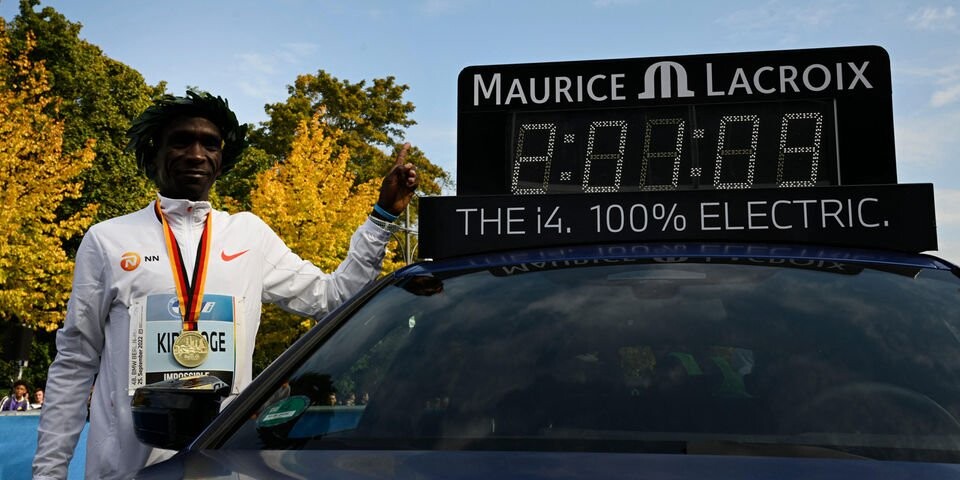
Kipchoge will face world champions Ceh Kristjan (discus) from Slovakia, Brazilian Alison Dos Santos (400m hurdles), the 2020 winner, Swede Mondo Duplantis (pole vault), Moroccan Soufiane El Bakkali (3,000m steeplechase) and American Grant Holloway (110m hurdles).
Others are Norwegian Jakob Ingerbrigtsen (5,000m), Noah Lyles (200m) from United States, Grenada’s Anderson Peters (javelin) and Pedro Pichardo (triple jump) from Portugal.
The athletes were selected by an international panel of athletics experts, comprising representatives from all six continental areas of World Athletics.
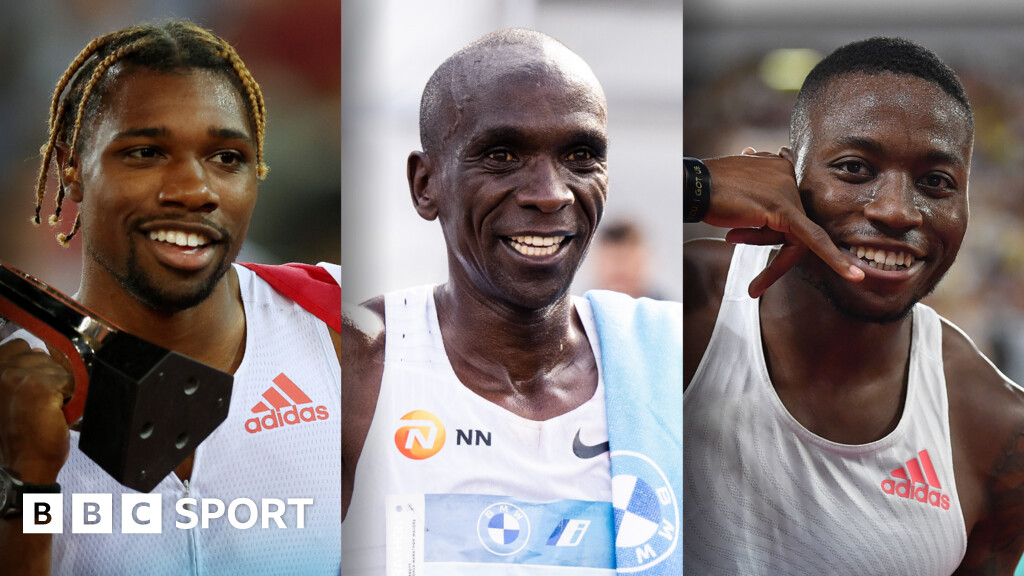
“It has been another memorable year for the sport and the nominations reflect some of the standout performances achieved at the World Athletics Championships in Oregon, World Athletics Indoor Championships in Belgrade, one-day meeting circuits and other events around the world,” said a statement from World Athletics.
Kipchoge recaptured the Berlin Marathon title, smashing his own world record by 30 seconds on September 25 in the German capital.
The 2016 and 2020 Olympic marathon champion clocked 2:01:09 to win, beating his previous world record time of 2:01:39 set when winning in Berlin in 2018.
Kipchoge had on March 6 this year won the Tokyo Marathon in a course record time of 2:02:40, beating the newly crowned London Marathon champion Amos Kipruto to second place in 2:03:13.
Kenya's Olympic and world 1,500m champion Faith Chepng'etich was on Wednesday named among the 10 nominees for the female 2022 World Athlete of the Year award.
Kipchoge is the only other Kenyan male to win the award besides 800m world record holder David Rudisha, who claimed it in 2010.
No Kenyan woman has won the award.
A three-way voting process will determine the finalists.
The voting process closes on October 31.
The World Athletics Council and the World Athletics Family will cast their votes by email, while fans can vote online via the World Athletics social media platforms.
Individual graphics for each nominee will be posted on Facebook, Twitter, Instagram and YouTube this week; a 'like' on Facebook, Instagram and YouTube or a retweet on Twitter will count as one vote.
The World Athletics Council’s vote will count for 50 percent of the result, while the World Athletics Family’s votes and the public votes will each count for 25 per cent of the final result.
Voting for the World Athletes of the Year closes at midnight on October 31. At the conclusion of the voting process, five women and five men finalists will be announced by World Athletics.
Nominees
Kristjan Ceh (Slovakia)
- World discus champion
- Diamond League discus champion, throwing a national record 71.27m on the circuit in Birmingham
- European discus silver medalist
Alison dos Santos (Brazil)
- World 400m hurdles champion
- Diamond League 400m hurdles champion
- Ran a world-leading South American record of 46.29
Mondo Duplantis (Sweden)
- World pole vault champion indoors and outdoors
- Diamond League and European pole vault champion
- Improved his world record to 6.19m and 6.20m indoors, and then 6.21m outdoors
Soufiane El Bakkali (Morocco)
- World 3000m steeplechase champion
- Diamond League 3000m steeplechase champion
- Unbeaten in 2022, running a world-leading 7:58.28 in Rabat
Grant Holloway (USA)
- World 110m hurdles champion
- World indoor 60m hurdles champion
- Diamond League 110m hurdles champion
Jakob Ingebrigtsen (Norway)
- World 5000m champion, world 1500m silver medalist indoors and outdoors
- European 1500m and 5000m champion
- Diamond League 1500m champion in a world-leading 3:29.02
Eliud Kipchoge, (Kenya)
- Improved his world marathon record to 2:01:09
- Berlin Marathon champion
- Tokyo Marathon champion
Noah Lyles (USA)
- World 200m champion
- Diamond League 200m champion
- Ran a world-leading national record of 19.31 to move to third on the world all-time list
Anderson Peters (Grenada)
- World javelin champion
- Commonwealth javelin silver medalist
- Threw a world-leading NACAC record of 93.07m, moving to fifth on the world all-time list
Pedro Pichardo (Portugal)
- World triple jump champion with a world-leading leap of 17.95m
- World indoor triple jump silver medalist
- European triple jump champion.
by Ayumba Ayodi
Login to leave a comment
Joyciline Jepkosgei receives promotion in Kenyan army following her success at London Marathon
Here’s your feel-good story of the day: Kenyan marathoner Joyciline Jepkosgei has been recognized by her country for her second-place finish at the 2022 London Marathon, earning a promotion in the army.
On Tuesday, Kenya’s Chief of Defence Forces (CDF), General Robert Kibochi, promoted Corporal Jepkosgei to the role of Sergeant (Sgt.) at the Kenyan Army Defence Headquarters in Nairobi.
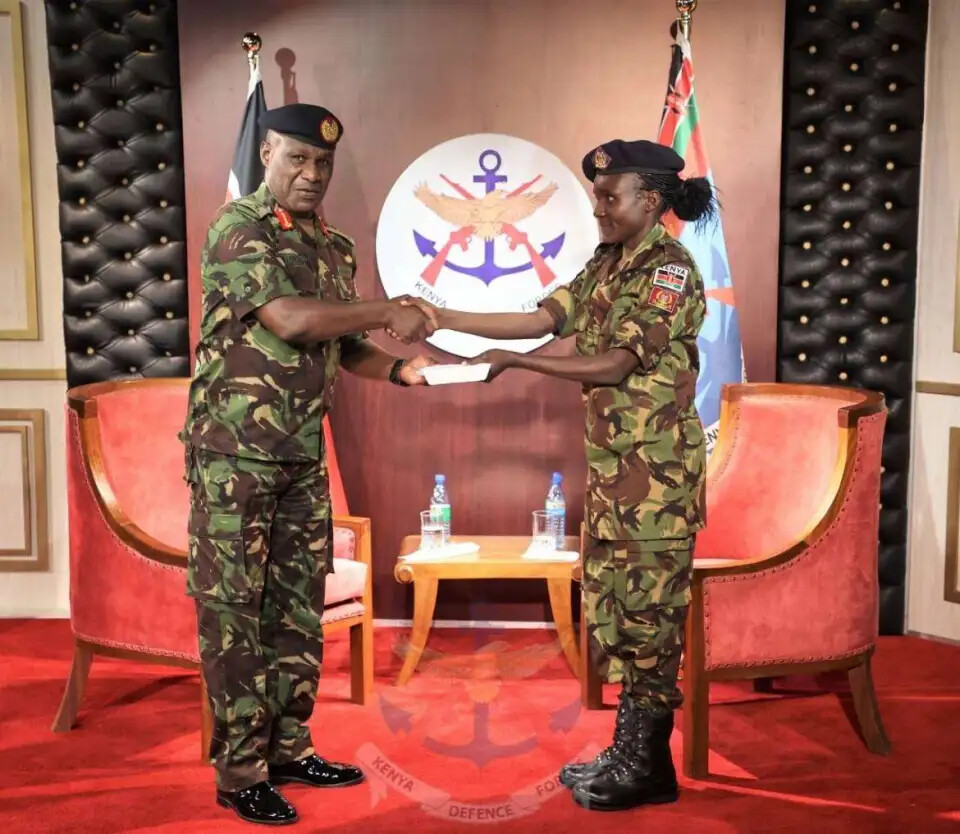
General Kibochi congratulated Jepkosgei for her excellent work in representing the country in major races and for improving her time, which has seen her break multiple world records.
“We are very grateful for your continuous hard work and for representing Kenya and KDF well,” said General Kibochi.
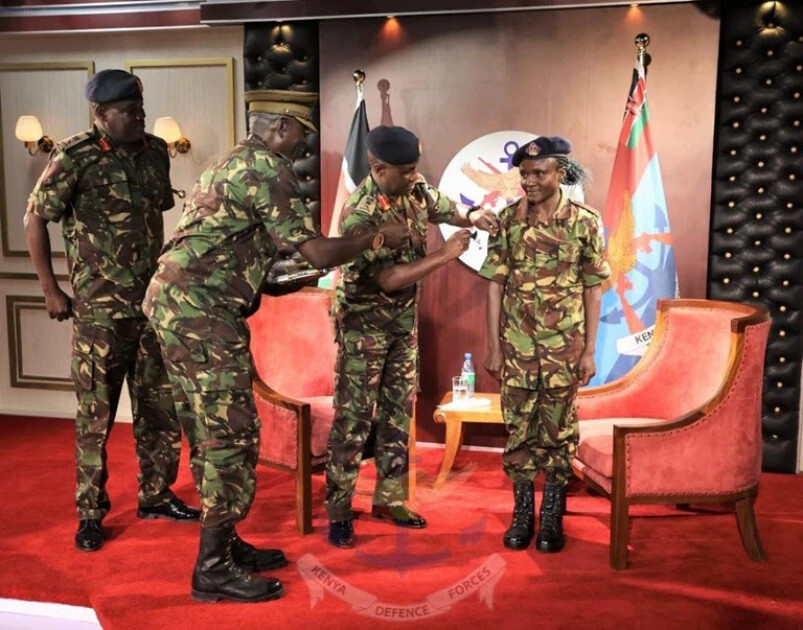
On Sunday, Jepkosgei clocked 2:18:07, to finish second to Ethiopia’s Yalemzerf Yehualaw, who won in 2:17:26. Jepkosgei won the London Marathon in 2021, and the New York City Marathon in 2019.
Jepkosgei is one of many world-class Kenyan athletes who work for official government organizations. 800m world record holder and two-time Olympic champion David Rudisha worked as a police officer during his running career, and so does two-time NYC Marathon champion Geoffrey Kamworor, plus Canadian soil record holder and defending Toronto Waterfront Marathon champion Philemon Rono.
If your workplace offered promotions for representing the company at a global marathon, would you train a little harder?
by Running Magazine
Login to leave a comment
TCS London Marathon
The London Marathon was first run on March 29, 1981 and has been held in the spring of every year since 2010. It is sponsored by Virgin Money and was founded by the former Olympic champion and journalist Chris Brasher and Welsh athlete John Disley. It is organized by Hugh Brasher (son of Chris) as Race Director and Nick Bitel...
more...Olympic 800m medalist Nijel Amos suspended for doping
The third fastest 800m runner of all time, Botswana’s Nijel Amos has been provisionally suspended ahead of this week’s World Championships, after the 2012 Olympic silver medallist tested positive for a banned metabolite, the Athletics Integrity Unit (AIU) said on Tuesday.
The drug found in the 28-year-old’s system was GW1516, which modifies how the body metabolizes fat, and which can boost endurance. An AIU press release said that the World Anti-Doping Agency (WADA) has also warned that it poses a health risk to athletes.
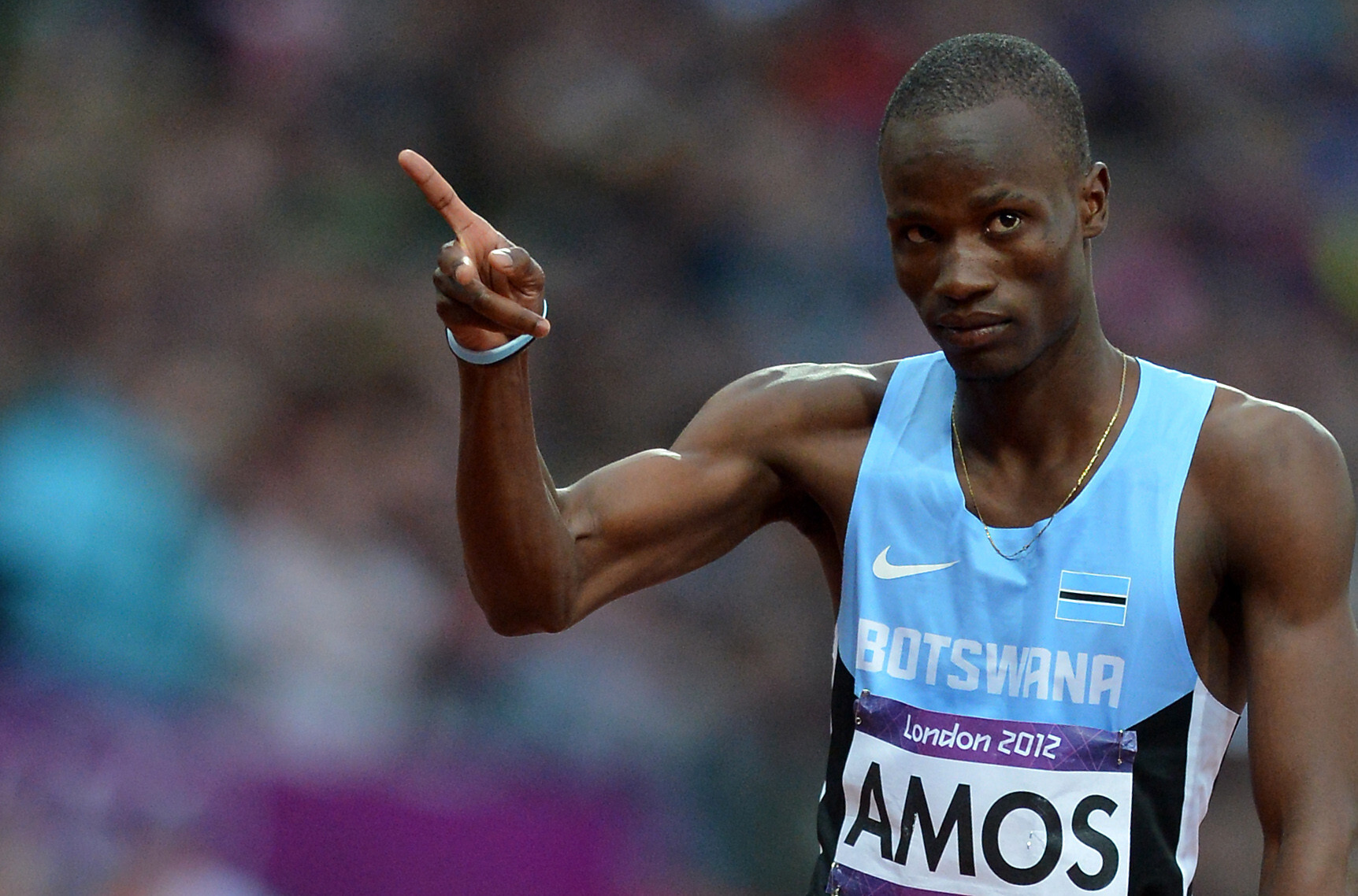
GW1516 was originally developed to treat obesity and diabetes, but is not approved for human use, since it was discovered to be carcinogenic. It is banned in and out of competition, and not eligible for Therapeutic Use Exemption (TUE). A USADA bulletin from 2019 says GW1516 is also sometimes known as cardarine or endurobol and has been found in some supplements, even though it is illegal. In 2017, there were 31 sanctions worldwide related to its use.
The AIU collected the sample from Amos during an out-of-competition test on June 4. Amos was notified of the result while he was preparing for the World Championships in Eugene, Ore., where he was scheduled to compete in the heats of the 800m on July 20. He finished eighth in the 800m final at Tokyo 2020. At Rio in 2016, he failed to make it out of the heats.
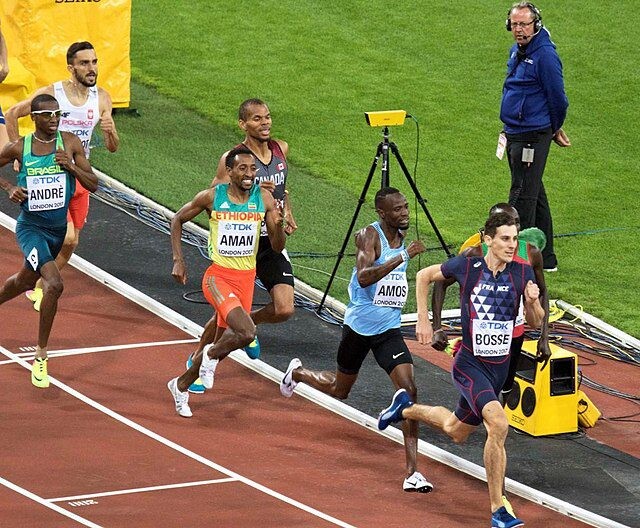
Amos’s silver in the 800m from the London Olympics was Botswana’s first Olympic medal and ranks as the third-fastest 800m time ever (1:41.73) behind Kenya’s David Rudisha (1:40.91) and Wilson Kipketer (1:41.11).
Amos has spent his last six seasons training with Mark Rowland and the Nike Oregon Track Club. Rowland recently left the club to start a new role as a coach with the Athletics Canada West Hub.
The AIU says the length of his suspension will be determined at a later date.
by Marley Dickinson
Login to leave a comment
Kenyan Edna Kiplagat targets top spot at 2022 Boston Marathon: I am not done yet
Kenya's 42-year-old two-time world champion wants a second Boston Marathon title on April 18, and reveals how she balances motherhood with running.
Since winning her Boston Marathon debut in 2017, the Kenyan running star Edna Kiplagat has made the podium of the oldest race twice.
Despite being 42-years-old, the double world champion believes she can finish top of the podium again at the 2022 Boston Marathon on 18 April.
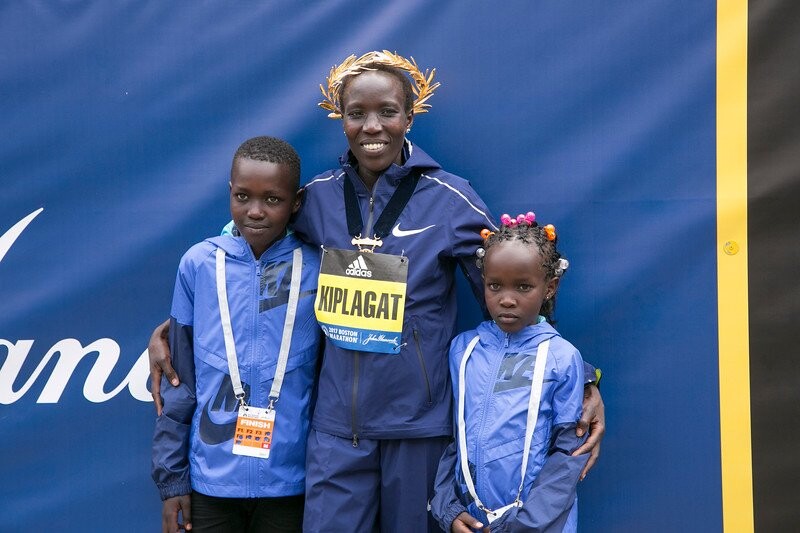
“If everything goes well as per my training and my body responds well, I’m hoping to be on the podium (in Boston) or do even better," Kiplagat said in an exclusive interview with Olympics.Com from her training base in Longmont, Colorado, USA.
“I enjoy running and as a professional athlete I believe running never stops."
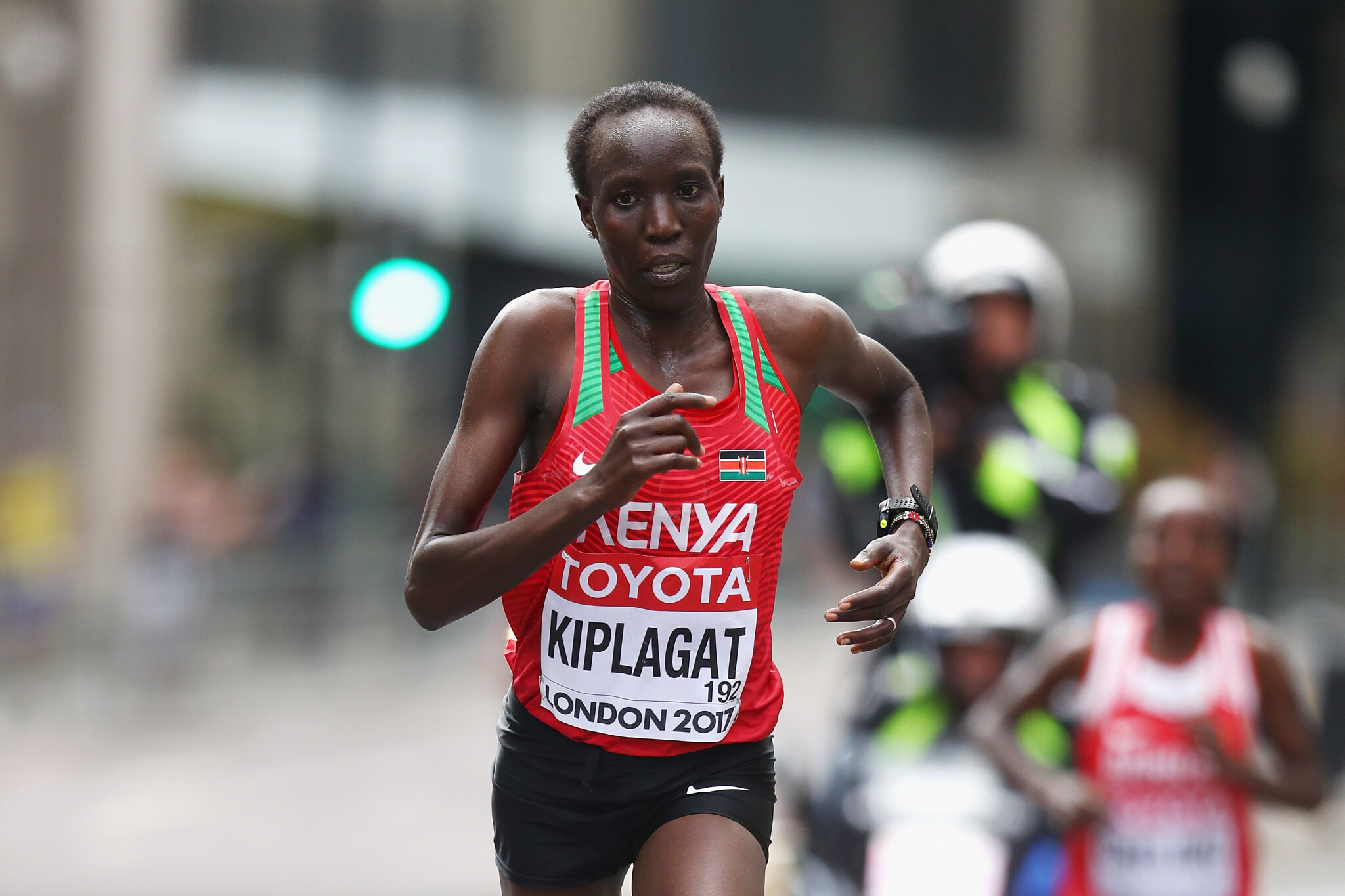
But even a podium place isn't a given in a star-studded women's field that also includes reigning Olympic marathon champion Peres Jepchirchir.
Running is a family affair for Kiplagat
Kiplagat remembers exactly when she started running, aged 16.
She is also very clear about when she first donned the Kenyan kit, saying: “I started representing Kenya in 1996 as a junior at the 1996 World (Cross Country) in South Africa."
What she doesn’t know is when she will finally hang up her competition trainers.
“I cannot say when I will stop. I know someday I will, but I am not done for now," she continued.
“I have my kids and other upcoming athletes looking up to me. I want to keep running to be a role model to them, motivate them and then use my experience later to help them in future.”
Kiplagat, who was scouted in high school by Brother Colm O’Connell - the legendary coach who moulded two-time Olympic 800m champion David Rudisha - sights her family as her key inspiration.
She is coached by husband and former runner Gilbert Koech, while her two children, Carlos (17), and Wendy (13), are already mastering distance running in school.
Kiplagat is also among a select group of athletes who have returned to the peak of their careers after giving birth.
“It’s not easy,” she admitted of raising her two biological children (born between 2004 and 2008) and three others that she adopted.
“After training, I have to come home and take care of my family as they are my priority. They need me and I must play my role as a mother.
“I have a great support team - my coach and my training partners, physio, and nutritionist who play an important role in my career. I get ample time to train and be with my family and even for recovery.”
Boston Marathon: A stepping stone to the Worlds and the Olympics
Two-and-a-half decades after her first race, Kiplagat is still runs between 110km - 130km in a week.
The passion and excitement the three-time World Marathon Major winner takes into every race has never wavered.
Last year at Boston she executed an incredible sprint finish to seal second behind Kenyan winner Diana Kipyokei.
“I know the course very well and I have had very good training in the build-up to this. I am expecting a very fast pace as most of the elites have run under 2.20 so they will push the pace from the start and even the course record may be lowered if the weather conditions are favourable,” the London 2012 Olympian said of what she expects to be a “very competitive race”.
Kiplagat has tuned up for her fifth Boston race with a ninth-place finish at the New York City Half Marathon on March 20.
“This was part of my speedwork to see how my body responds after the months of training."
The flame of ambition still burns brightly for Kiplagat, who in 2013 successfully defended her marathon world title.
A second win in Boston will make her only the second Kenyan woman to do so.
The first was 2008 Olympic silver medallist Catherine Ndereba, who clinched four-consecutive Boston titles.
Kiplagat, who finished fourth at the 2019 Worlds in Doha, now hopes to join the elite club of Kenyans who have won 13 of the last 21 Boston Marathon women's titles.
Kiplagat's 26-year career as a long-distance runner
Marathons are a gruelling endeavour that tests body and mind in equal measure.
But Kiplagat who honed her career in Kenyan running's spiritual home of Iten, and that may help explain her unbelievable longevity in the sport.
She is the first able-bodied athlete to record ten top-three finishes in World Marathon Majors New York, London, Boston and Tokyo, and wants to extend her top-flight marathon career - that dates back to 2010 when she won her debut 42km race in Los Angeles - to the Paris 2024 Olympics at least.
“I have been persistent with my routine. I believe in myself and fully trust my coach," she said.
"We have stuck to our plans, strategy on what we want to do and what we expect from each race. I always try to understand what is needed from me and plan how to execute my races on race day.
“I have tried to be consistent in everything I do. I am disciplined and I’m still looking forward to do even better.”
Younger athletes can also pick up valuable experiences from the running trailblazer.
“They need to have a plan for their races to avoid burnout. (They) must also have ample time for recovery, a good build-up and preparation. If you want to keep running for long it also needs a proper plan and patience with yourself.”
by Evelyn Watta
Login to leave a comment
Boston Marathon
Among the nation’s oldest athletic clubs, the B.A.A. was established in 1887, and, in 1896, more than half of the U.S. Olympic Team at the first modern games was composed of B.A.A. club members. The Olympic Games provided the inspiration for the first Boston Marathon, which culminated the B.A.A. Games on April 19, 1897. John J. McDermott emerged from a...
more...Canadian Brandon McBride joins Oregon Track Club Elite
Canadian 800m record holder Brandon McBride has parted ways with his former collegiate coach, Chris Woods, and will be joining Oregon Track Club Elite (OTC) for the 2022 season.
McBride will be joining fellow Canadian middle-distance runner William Paulson and the third-fastest 800m runner of all-time (1:41.73), Botswana’s Nijel Amos, who was second to the great David Rudisha at the 2012 London Olympics. “I am looking forward to this exciting opportunity with OTC,” McBride says. “They have a great middle-distance group.”
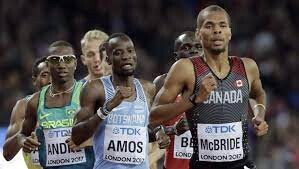
The Windsor, Ont. native holds a personal best time of 1:43.20, which is the fastest 800m time ever run by a Canadian. McBride has battled injuries in the last two seasons, which led him to a disappointing finish at the Tokyo Olympics.
Since the Tokyo Olympics, Mcbride has been driven on getting back to 100 per cent “I have my eyes on a return for the outdoor season,” he says.
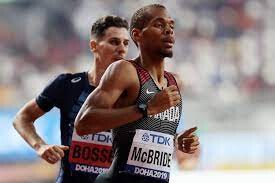
He will now be coached by Mark Rowland, who has had a lot of success working with middle-distance runners Francine Niyonsaba, Ben Blankenship, Hanna Green and Amos.
For the past five years, McBride was sponsored by Adidas, training under his old collegiate coach at Mississippi State University, with fellow Canadian 800m runner Marco Arop, who came off a career-best season on the Diamond League, with five podium finishes.
McBride is a two-time Olympian (2016 and 2020) and a World Championship finalist (2017).
by Marley Dickinson
Login to leave a comment
Kenyan David Rudisha hints at comeback in athletics after successful surgery
David Rudisha has disclosed he is set to make a comeback in athletics after undergoing a successful surgery on Saturday.
The 800 m, 2012 London and 2016 Rio Olympics champion stated that he had undergone a successful surgery on his left leg and will make a return to the track since July 2017.
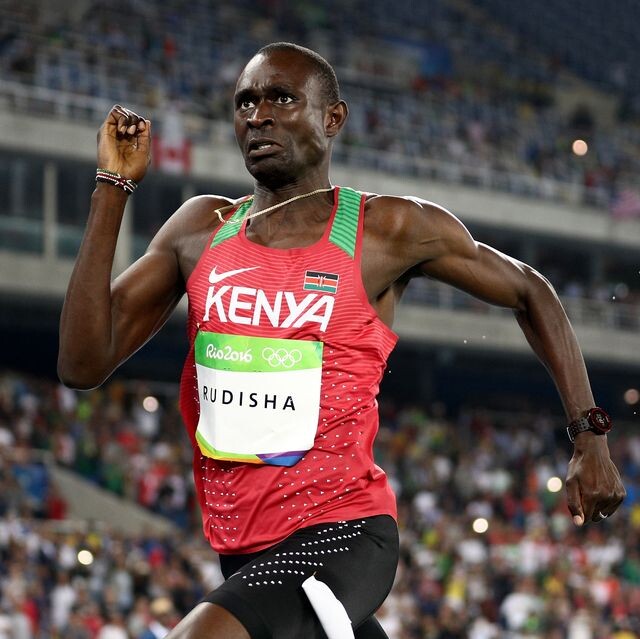
"I am glad that on Saturday i had a successful surgery of removal of an implant on my left leg that has been there for the last one year and a half. At least i will be back soon doing some running," Rudisha said.
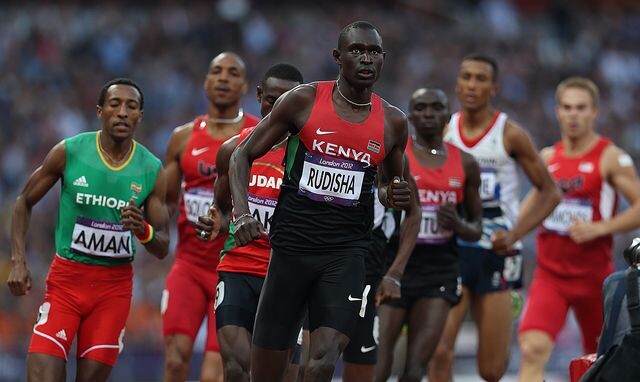
Rudisha's career has been characterised by injuries that denied him opportunities to represent Kenya at major global competitions such as the 2019 World Championships and the 2020 Olympic Games.
The world record holder had earlier revealed he was set to retire soon after the 2020 Olympic Games after a four-year hiatus but had to shelve the idea after he injured his back and twisted his ankle prior to the global event.
Rudisha is regarded as one of the most accomplished 800-meter athletes after his sensation record time of 1:40:91 at the 2012 London Olympics, going on to become the first runner to break the 1:41 time barrier.
He also broke his own record of 1:41:01 that he had set back in 2010 during the Rieti Diamond League meeting.
by Benson Mbare
Login to leave a comment
Sebastian Coe's monumental 800 meters
June 10, 1981 remains a red-letter day in the long history of 800m running, for it was in Florence late that night that Sebastian Coe lowered his own world record from 1:42.33 to 1:41.73. Every world record is special, marking as it does an advance on anything previously achieved, but Coe's run was extra-special. That time would not be bettered for 16 long years, itself a record in the annals of the men's 800m event.
When strongly-built Alberto Juantorena won the 1976 Olympic title in a world record 1:43.50 it was widely thought that here was the man to revolutionize two-lap running. And yet, for all his speed (44.26 400m) and power, the Cuban succeeded only in clipping another few hundredths off the record with 1:43.44 at the 1977 Universiade. Instead it was the slight figure of Coe who has gone down in history as the athlete who, like Germany's Rudolf Harbig in 1939 and New Zealand's Peter Snell in 1962, pushed back the frontiers of 800m performance.
It was in 1979 that Britain's Coe established himself as one of the all-time greats of middle distance running when in the space of 41 days he shattered three world records. He started with 1:42.33 in Oslo on July 5, and was as shocked as everyone else by his time. After clocking his fastest 400m of 46.87 at the AAA Championships he returned to Oslo for the star-studded Dubai Golden Mile on July 17. Despite being practically a novice at the distance with a best time of 3:57.67, he moved into the lead shortly before the three-quarter mark (2:53.4) and then proceeded to cover the final quarter in 55.6. He had run 3:48.95, again astonished when told he had broken New Zealander John Walker's world record of 3:49.4. As he related later: "When I looked back twice in the final straight it was fear, it was panic, not pain, that I was feeling. I certainly wasn't in the slightest distress at the finish."
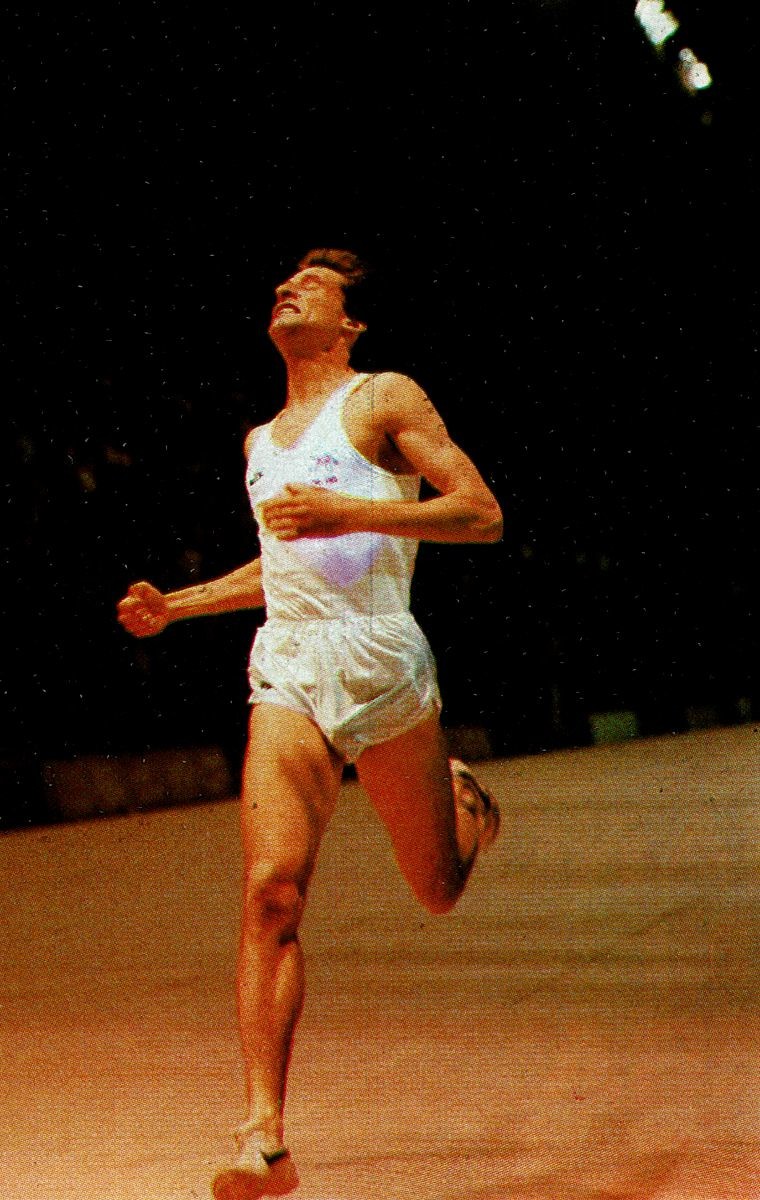
Record number three came about in Zurich on August 15. The target this time was the 3:32.16 1500m by Tanzania's Filbert Bayi. Elated by the knowledge that he had never been faster, having been timed at 45.5 for a 400m relay leg 10 days earlier, Coe shot off at a potentially suicidal pace by clinging to the pacemaker, sweeping through the opening 200m in 25.9 and 400m in 54.3. Before 800m (1:53.19) had been covered, Coe was on his own, nearly 20m ahead of the field. Instead of easing back on the third lap he covered that in 56.3 for 2:49.5 at 1200m and at the finish – almost five seconds clear – his time was a hard earned 3:32.03.
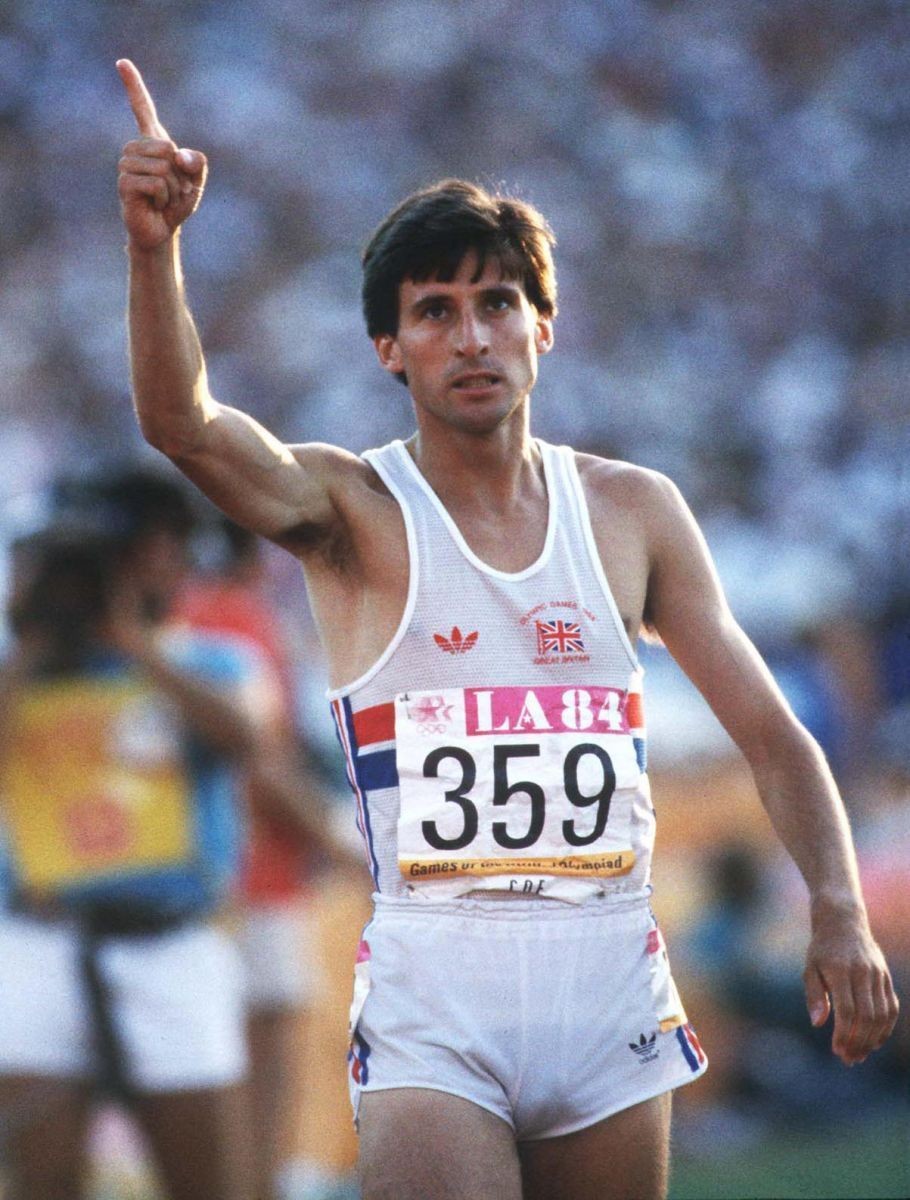
Coe's athletic immortality was sealed in 1980 when he triumphed in the Olympic 1500m in Moscow to make up for his 'disastrous' run in the 800m (a mere silver medal behind Steve Ovett) after adding to his portfolio of world records by covering 1000m in 2:13.40 in his first ever race at the distance.
And so to 1981. With no major title to aim for, the emphasis was on achieving spectacular 'one-off' performances. Asked how he had prepared during the winter, Coe replied: "My training mileage is slightly down but there's been more accent on speedwork. I'm going back to basics, trying to improve my 400m speed." That approach hadn't diminished his endurance, though, for he opened his indoor season by winning the UK 3000m title in a personal best of 7:55.2. Two weeks later he smashed the world indoor 800m record with 1:46.0. "I knew I was fit, but not that fit," he enthused.
A 46.9 400m and 46.3 relay leg on May 4 confirmed his speed was at a high level, and before his fateful appearance in Florence he won the Yorkshire county 800m title on May 17, in 1:46.5, an invitation 800m at Crystal Palace on June 3, in 1:44.06 followed two hours later with a 45.8 relay split from virtually a standing start, and as a final tune-up a 46.6 relay leg at Gateshead on 7 June. He traveled to Florence not expecting anything too special ... around 1:43/1:44.
His 800m race in Florence got under way after 11pm. Kenya's 19-year-old Billy Konchellah, then a 45.38 400m performer who would go on to become world 800m champion in 1987 and 1991, acted as pacemaker. In his slipstream Coe reached 200m in 24.5 and 400m in 49.7 and was perfectly set up for a super-fast time. Sensing Konchellah was about to flag, Coe forged ahead by 450m and after 200m splits of 24.5 and 25.2 he covered the next half-lap in a daring 25.3 for a remarkable 600m time of 1:15.0 – precisely 1:40 pace for the full distance. Inevitably he slowed towards the end but still managed a final 200m of a little under 26.7.
Coe's immediate post-race response: "I'm very happy about the result, but it was terrible waiting the 10 minutes for the official result. It's getting under 1:42 that is the great thing for me. It was as hard a race as I have run for a long time. In the last 30 meters I was beginning to tie up but apart from that there was no problem."
Coe went through that 1981 season undefeated, collecting further world records at 1000m (2:12.18) and mile (3:48.53 and 3:47.33). Other glittering performances would follow, notably a second Olympic 1500m triumph in 1984, but as a testimony to the quality of that 800m exploit in Florence note that even now, 40 years on, only two men have gone faster: David Rudisha of Kenya and Wilson Kipketer of Denmark.
by World Athletics
Login to leave a comment
Kenya's David Rudisha says he is yet to decide whether he will try and win a third straight 800 meters Olympic title in Tokyo next year
Rudisha, who turned 32 on Thursday, has struggled with injuries since defending his title in Rio in 2016 and has missed the last two World Championships.
Ankle surgery meant that the world record holder would not have been able to compete if the Tokyo games had gone ahead this year, instead of being delayed until 2021 by the global Covid-19 pandemic.
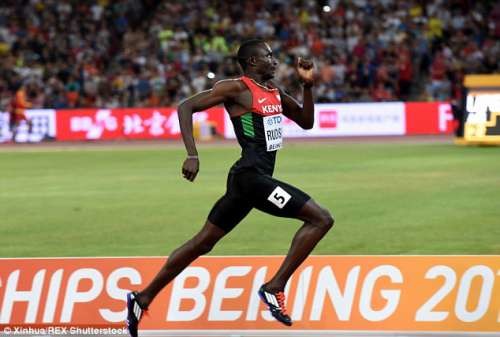
"Because of this difficult time with Covid and I have been up and down with injuries, I have been off, I have not been training," he admitted to BBC Sport Africa.
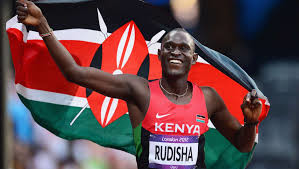
"I am hoping maybe next year I will make my decision whether I will come back and see the level of my physical fitness.
"That's when I will be able to assess my level and my standard and that will gauge if I will come back or I will make another decision but I love sports.
"Once an athlete, I will always be an athlete - so I will always be running at some level even if it is professional, or not professional or for fun but I love the sport and I enjoy running," he insisted.
David Rudisha: Olympic 800m champion on personal struggles, and Tokyo comeback
He insisted he will not be rushing to make a comeback from his latest injury.
"I had a bad injury in the beginning of the year and it is taking quite sometime and coming back you need to prepare yourself very well," he explained.
"I know that time is everything, if you do not have enough time I don't think it will be possible because running is not easy.
"It is a process and if I cannot have the period good enough for training I don't think I will be able to be there and to be at that level of professionalism, so I am just trying my best.
"Even if I come the year after next year all well and good and I will be happy because running is all about fun and would love to come back and it will depend on so many aspects."
by Sport Africa
Login to leave a comment
Tokyo 2020 Olympic Games
Fifty-six years after having organized the Olympic Games, the Japanese capital will be hosting a Summer edition for the second time, originally scheduled from July 24 to August 9, 2020, the games were postponed due to coronavirus outbreak, the postponed Tokyo Olympics will be held from July 23 to August 8 in 2021, according to the International Olympic Committee decision. ...
more...Canada’s Marco Arop sets sights on Tokyo
Canada tallied five medals at the World Athletics Championships Doha 2019, so it was not surprising that Marco Arop’s excellent seventh-place finish in the 800m would be somewhat buried in the team’s performance review.
Just 21 years old at the time, the tall Sudan-born runner had earned the Pan American title two months earlier, running a then personal best of 1:44.25. But few expected him to survive the harsh preliminary rounds in Doha which required tactical nuance, stamina and most importantly experience at the highest level. Clearly the young man was up to the challenge and has immense potential.
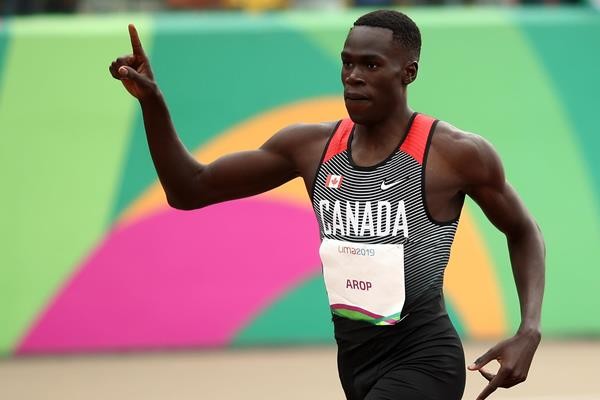
Despite the uncertainty caused by a world pandemic, Arop has continued to make progress this year, setting a new personal best of 1:44.14 while finishing third at the Wanda Diamond League meeting in Monaco last month. That extraordinary result was followed by two second-place finishes in Bydgoszcz and Stockholm. In the latter he led down the home straight but couldn’t hold off world champion Donavan Brazier. Still, he ran a very good 1:44.67.
But it was the Monaco result which stoked his confidence, particularly since it was three seconds faster than his season opener in Atlanta, a four-and-a-half hour drive from his apartment in Starkville, Mississippi.
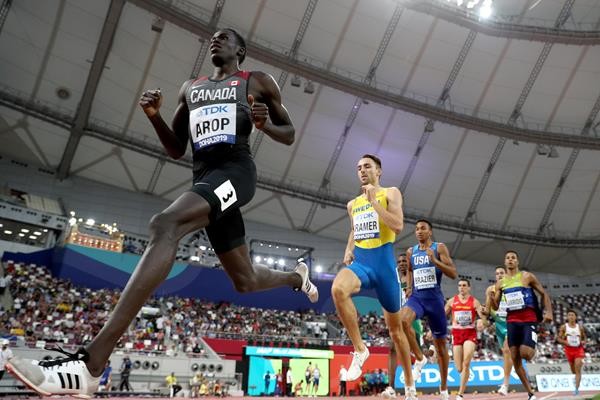
“I ended up running 1:47 high in Atlanta and I could feel there was so much more left in the tank,” he remembers. “Coming into Monaco I wanted to run fast and I was just lucky enough to be able to travel there and have that calibre of competition there. It was the perfect set up, the perfect race for me.”
Shortly after his brief European excursion, he returned to his training base in Starkville where he voluntarily quarantined for 14 days. Although he has a year and a half of academic studies in business information systems to complete, he chose to forego his eligibility at Mississippi State University to accept a contract from Adidas. Now, with a positive frame of mind, he believes an Olympic podium finish is attainable.
“Definitely! That’s just the way I have to look at it if I want to succeed,” he says. “It’s a long way from (now until) Tokyo 2021 and I am just hoping that I will be ready come the day and I am doing whatever I can to stay healthy, stay fit and become stronger.
“My goal is to win the Olympics. I know there are some really great competitors out there and I respect them all. But, at the end of the day, I want to win just as much as anybody else.”
That might be construed as youthful naïveté especially since he only became serious about athletics in his senior year at Edmonton’s St Oscar Romero Catholic High School – barely three years ago. Nevertheless, under the tutelage of Voleo Athletics Club coach Ron Thompson, Arop has become a quick study in 800-metre running, latching on to heroes from the past whose physical size equals his own 1.93m height.
“I have met (1984 Olympic 800m champion) Joaquim Cruz and I have watched him race in a couple of YouTube videos,” Arop says. “Guys like him and David Rudisha are huge role models and inspiration for me and I try to race like them. Front running is my strength.
“Coach Ron would say I can’t run the same as some of the other guys because I am not the same size. If I am in the front, it helps me stay out of trouble and control the race. That’s one thing I like to do – take the pace and decide when and where I should kick.”
“You can’t really take anything for granted,” Arop now says. “You never know who is going to come out on top.
“That’s one thing I want to take into Tokyo: not leaving anything to chance. Prelims and the semifinals and then, in the final – it’s who is having a good day.”
by World Athletics
Login to leave a comment
Tokyo 2020 Olympic Games
Fifty-six years after having organized the Olympic Games, the Japanese capital will be hosting a Summer edition for the second time, originally scheduled from July 24 to August 9, 2020, the games were postponed due to coronavirus outbreak, the postponed Tokyo Olympics will be held from July 23 to August 8 in 2021, according to the International Olympic Committee decision. ...
more...Donavan Brazier Keeps Win Streak Alive, Runs 1:15.07 For 600m in Hungary
Meet organizers for today’s Gyulai Memorial meet in Székesfehérvár, Hungary, the second World Athletics Continental Tour Gold meet of 2020, were hoping that 800m American record holder and world champion Donavan Brazier would be able to beat Johnny Gray‘s 1:12.81 world best for the 600 meters, which has stood since 1986. But Brazier, who won the 800 at last week’s Herculis meet in Monaco, never had the same intentions and didn’t attack the mark in today’s race.
Brazier actually barely won the 600 in 1:15.07, as he had to come from way behind to beat Puerto Rico’s Wesley Vázquez (1:15.31). Vázquez, the Puerto Rican record holder at 800 who was 5th at Worlds last year, had close to a five-meter lead when he hit the homestretch but tied up on the way home and Brazier got the win, passing Vázquez with roughly 20 meters to go. Vázquez remains the world leader at 600 as he ran 1:14.85 in Puerto Rico on August 1
Race organizers said Brazier’s splits were 24.07 for 200 and 48.43 for 400 (Gray’s pace averages out to be 48.54 per 400). Brazier’s time today was well off his pb for 600 as Brazier owns the fastest time ever indoors (1:13.77 in 2019) and ran 1:14.39 indoors this year as well. For comparison’s sake, when David Rudisha ran his 1:40.91 800m WR, he hit 600 in 1:14.30. Non-US visitors can watch today’s race at this link.
Brazier has now won nine straight races across all distances, dating back to July 2019.
In other action of note in Székesfehérvár, American Noah Lyles won the men’s 100 in 10.05 (+.3 m/s) over Brit Adam Gemili‘s 10.28 and the 200 in 20.13 (+1.3 m/s) as Italy’s Eseosa Desalu was second in 20.35.
The resurgence of 2018 NCAA 400 champ Lynna Irby of the US continued in the women’s 200 as Irby won that in a seasonal best 22.55 (+.7 m/s) over 2015 and 2017 world champ Dafne Schippers (22.94). It was Irby’s best time since May 2018.
There was an upset in the men’s triple jump, as 2019 world bronze medalist Hugues Fabrice Zango of Burkina Faso jumped a world-leading 17.43m to defeat world/Olympic champ Christian Taylor (17.34). And in the 110 hurdles, Spain’s Orlando Ortega got the best of American world champion Grant Holloway for the second time in six days. Just as in Monaco, Holloway got out to a fast start, but once again, Ortega ran him down off the final hurdle and won in 13.21 to Holloway’s 13.22.
by Let’s Run
Login to leave a comment
Donavan Brazier believes he has a chance at legendary record
On the night of the biggest race of his life, Donavan Brazier met the man whom he is trying to succeed and, perhaps, supplant.
David Rudisha, the two-time Olympic 800m champion and world-record holder, told Brazier before the Oct. 1 world championships 800m final that he believed in the 22-year-old American more than any other man in that night’s event.
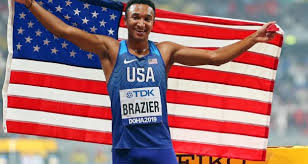
Later that evening in Doha, Brazier proved the sidelined Kenyan prophetic, winning in a national record 1:42.34 and becoming the first American to win a world title in the event.
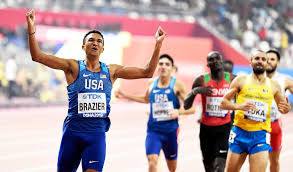
Brazier, in his first global championship final, also ran the fastest time by somebody that young since Rudisha’s 2012 Olympic title and world-record epic pulled that field to personal bests.
Rudisha’s mark of 1:40.91 — from a race Brazier has watched dozens of times — is still significantly faster. That hasn’t stopped followers from wondering if Rudisha’s days as world-record holder may be numbered.
Sounds like Brazier may be wondering, too.
“I think I definitely have the opportunity,” Brazier told NBC Sports’ Leigh Diffey in a watchback of his 2019 Diamond League and world titles. “If we’re looking at guys that are currently racing right now, I think I might have the best opportunity to do it.”
Brazier exercised caution. He was by no means predicting such a feat.
“David Rudisha, when he first broke it, he was a once-in-a-century athlete,” Brazier said. “For someone to break it so quick and just to say it so nonchalantly, I think it’s not really giving David Rudisha the respect that he deserves. A 1:40.91 is a really dangerous record to break.”
by Olympic Talk
Login to leave a comment
Athletes find renewed motivation as Tokyo Olympic countdown hits one year to go
Today was originally set to be the eve of the athletics competition at the Tokyo 2020 Olympic Games. Now, of course, athletes have 12 more months to wait before track and field action gets underway in the Japanese capital exactly one year from today.
For some, the extra year may feel like a lifetime of waiting. For others it can’t come around soon enough. And for a select few, it has given them something of a lifeline.
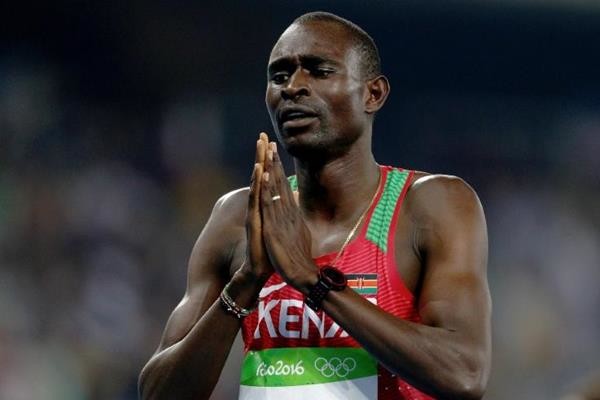
The likes of David Rudisha and Wayde van Niekerk were among the biggest stars of the last Olympic Games in Rio, winning the 800m and 400m respectively. But in recent years, most of their time has been spent away from the track and rehabbing their way back from injury.
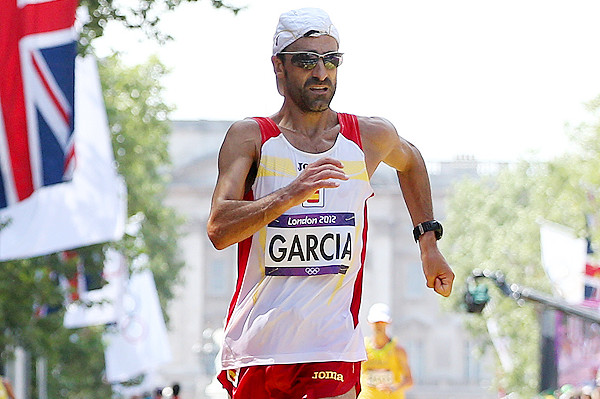
“The year has really saved me,” said Rudisha, who was rounding into form at the start of the year but was then forced to undergo ankle surgery at the end of May. “It took a lot of time to get fit and it would have been difficult to qualify in June for the Olympics. The ankle fracture will now throw me back, but I hope that by September I will be able to start building up again. That would then give me a normal preparation period leading into an Olympic year.”
Van Niekerk is a bit further along in his comeback, having clocked 10.10 and 20.31 over 100m and 200m earlier this year. But the South African sprinter knows the extra year will be hugely beneficial as he aims to get back into the form that carried him to a world 400m record of 43.03 in Rio.
“There’s time to work on specific areas that need your attention,” he says. “You can find positives wherever you look for them, you just need to sit back and see where you need to work.”
Van Niekerk will still be in his twenties by the time the Tokyo Olympics take place in 2021, but for athletes the other side of 30 – or, in some cases, aged 40 and above – trying to stay in peak form could pose a challenge. It is one they’re willing to tackle, though.
“The age is here, but I’m optimistic now,” said javelin world record-holder and two-time Olympic champion Barbora Spotakova, who will turn 40 next June. “At first I was disappointed [about the Tokyo 2020 Olympics], but otherwise I told myself that I have a new coach now and it’s our first season together. Next season will be better.”
Spain’s Jesus Angel Garcia, meanwhile, celebrated his 50th birthday last October, just three weeks after finishing eighth in the 50km race walk at the World Athletics Championships Doha 2019. When the Tokyo Olympics takes place in 2021, he will be just a few months shy of his 52nd birthday. He’s determined to make it to his eighth Games – a record tally for athletics.
An extra year will also be beneficial to the up-and-coming generation. Athletes such as US sprinter Sha’Carri Richardson, Dutch 400m hurdler Femke Bol, French all-round talent Sasha Zhoya and pole vault world record-holder Mondo Duplantis – all aged 20 or younger – have produced some stunning performances over the past year or two. With another year of training under their belt, they could be fitter, faster and stronger in 2021.
“Obviously I was very disappointed when the news came about the postponing of the Olympics,” said Bol, who recently clocked a Dutch 400m hurdles record of 53.79 in what’s just her second season in the event. “But I feel it gives me a chance to train harder, improve my technique and get more experienced in the 400m hurdles.”
“When Tokyo was originally set to take place in 2020, as I would have only just come out of the U18 category, I knew my chances of getting the qualifying time would be extremely low,” said the 18-year-old, who set a world U20 60m hurdles record of 7.34 during the indoor season. “But with the Games being pushed back, for me it means a whole year to be in elite competition and puts Tokyo 2021 on my radar a little more than before. My priority, though, for 2021 is still the World U20 Championships in Nairobi.”
The Olympic Games were firmly on Mondo Duplantis’s radar at the start of the year. The Swedish pole vaulter began 2020 in tremendous form, twice breaking the world record. Undefeated in all eight of his competitions so far this year, he would have headed to Tokyo as one of the biggest gold medal favourites. But even he is able to see the bigger picture.
"It's been an unexpected season in so many ways,” he said. “People have it so much worse than we do as athletes, so I'm not going to complain. Next year is going to be great and I don't see why I can't get into even better form next year.”
by World Athletics
Login to leave a comment
Tokyo 2020 Olympic Games
Fifty-six years after having organized the Olympic Games, the Japanese capital will be hosting a Summer edition for the second time, originally scheduled from July 24 to August 9, 2020, the games were postponed due to coronavirus outbreak, the postponed Tokyo Olympics will be held from July 23 to August 8 in 2021, according to the International Olympic Committee decision. ...
more...Geoffrey Kamworor of Kenya operated on in Eldoret after freak road accident
Multiple world cross country and half marathon champion Geoffrey Kamworor is recovering in an Eldoret hospital after he was injured in a freak accident while on his Thursday morning run.
The world half marathon record holder was hit from behind by a speeding motorcycle, sustaining injuries on his head and ankle.
Kamworor told Nation Sport from his hospital bed that he sustained injuries above the ankle and on his head
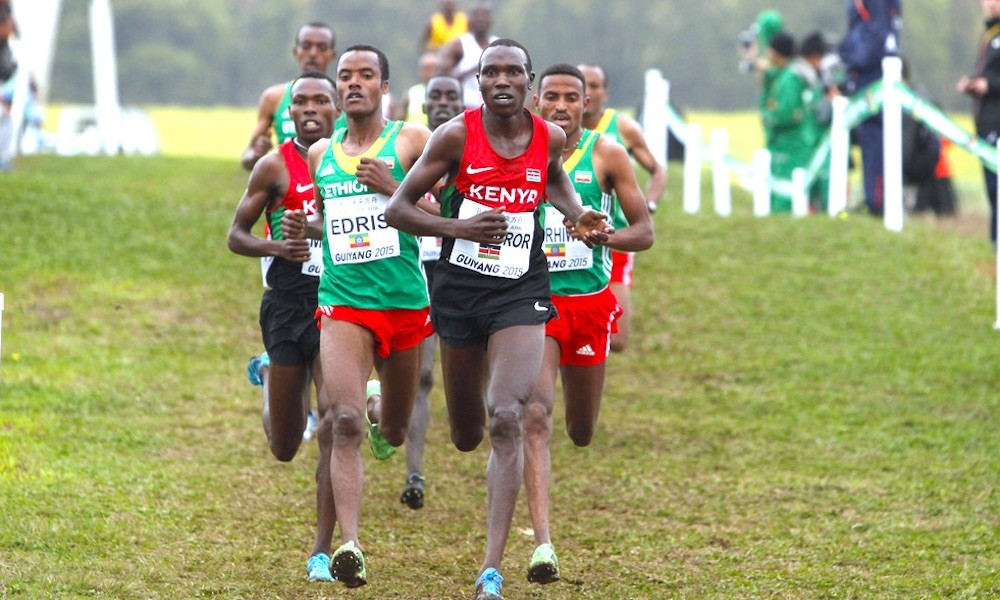
It was double tragedy for Kamworor, 28, after organizers on Thursday cancelled November’s New York City marathon where he would have defended his title.
Kamworor was also lined up to defend his World Half Marathon Championships title at this year’s rescheduled race in Gdynia, Poland, on October 17.
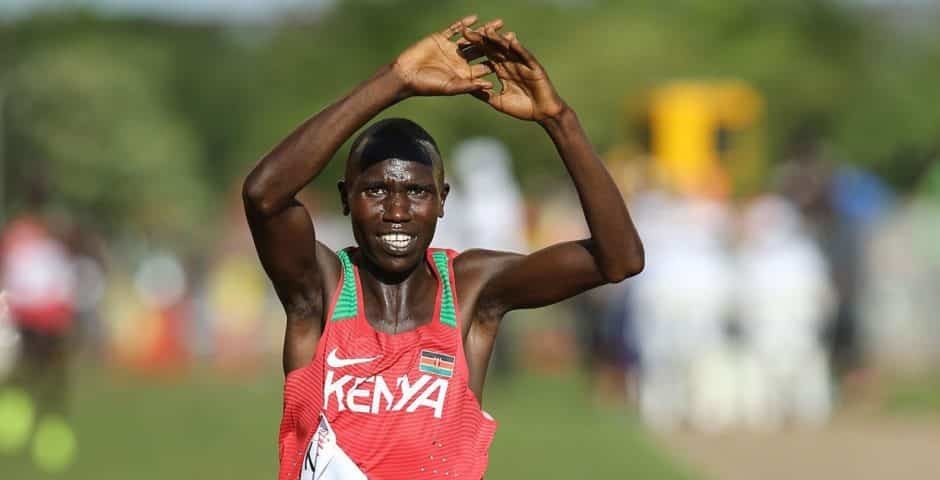
According to Dr Victor Bargoria, who treated Kamworor Friday, diagnosis was to open incomplete right tibia shaft fracture, knee bruises and scalp laceration.
“The procedure was debridement of contused contaminated soft tissue and loose bone fragments followed by irrigation and wound closure,” he explained after attending to the star at the St Luke's Hospital in Eldoret.
The surgery took place one month after another successful surgery on world 800 meters record holder and Olympic champion David Rudisha who twisted his ankle at his home in Kilgoris, Narok County.
The motorcyclist stopped and helped the injured champion to the hospital where he was admitted.
“I was one kilometer away from my home during my morning run when a speeding motorcycle hit me from behind and I fell down injuring my leg,” Kamworor explained.
“I also got injuries in my head and he helped me up and took me to the hospital where I was admitted.”
He said that he expects to be discharged today after the surgery went on successfully.
"The doctor has advised me to rest and I will be discharged maybe today but I will be waiting for him to give me clean bill of health,” said the champion.
Bargoria confirmed the champion could be released Friday.
“I received the patient on Thursday morning and we managed to do a surgery which was to open incomplete right tibia shaft fracture on his right leg and bruises on his head. He is doing well and he should be leaving for home anytime," said Bargoria.
He said the planned follow up will be leg CT scan, IV antibiotics, analgesics, wound care and rehabilitation for recovery.
by Bernard Rotich
Login to leave a comment
David Rudisha says that he is firmly on road to recovery
David Rudisha says he’s happy with Thursday’s surgery on his fractured ankle.
The two-time Olympic 800 meters champion was on Saturday discharged from St Luke’s Hospital in Eldoret, Uasin Gishu County, after the successful surgery.
Rudisha, who has been training in Iten, Eldoret and Kilgoris in Narok County, was preparing for his comeback ahead of the Olympics Games in Tokyo.
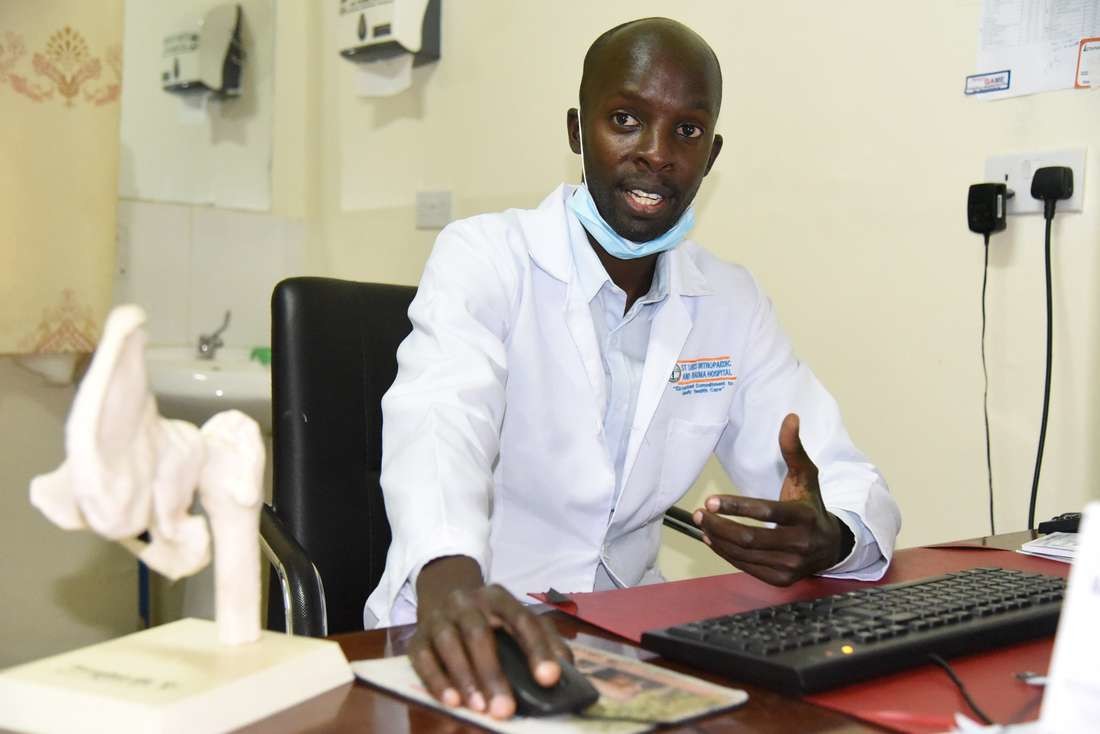
The Games were postponed to next year due to the coronavirus pandemic.
The champion picked an injury during a walk in his compound in Narok County after stepping on uneven ground.
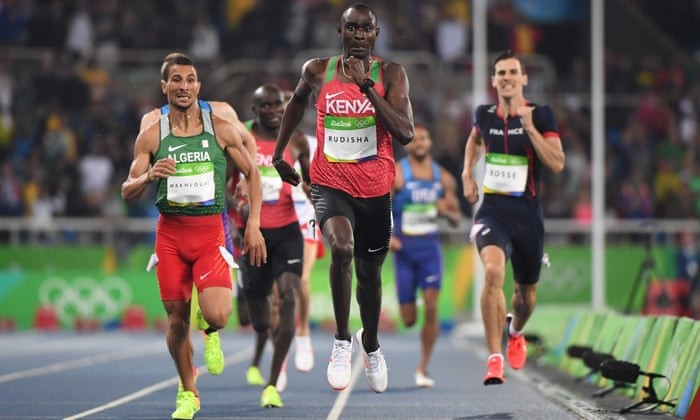
He went on with training which caused further harm on his ankle forcing him to visit the hospital where the fracture was detected and successful surgery done by Dr. Victor Bargoria.
Bargoria said he said Rudisha suffered a “Supination-External Rotation” which he fixed with a 1/3 tubular plate and 3.5 millimeter screws.
Talking to Nation Sport from his hospital bed on Saturday, Rudisha said that he was happy the surgery went on well and that he will be recovering at home after being discharged.
“I’m doing well and will be leaving the hospital today (Saturday). I would just ask Kenyans and my fans to continue praying for me. I’m in good condition and on the path to recovery now,” said Rudisha.
Rudisha will recover from home and after six weeks he will be able to get into rehabilitation when the tissues will have healed. “In six weeks he should start the rehabilitation process and we shall be there with my team to make sure it goes on well because he also needs to do his normal life activities,” said the doctor, who also handles Kenya’s Olympic team.
by Bernard Rotich
Login to leave a comment
Reigning Olympic 800 meters champion David Rudisha underwent surgery on Thursday
Reigning Olympic 800 meters champion David Rudisha will be sidelined for up to 16 weeks after fracturing his left ankle in the grounds of his home in Kenya.
His agent Michel Boeting confirmed Rudisha, who also won gold over 800m at London 2012, underwent surgery on Thursday.
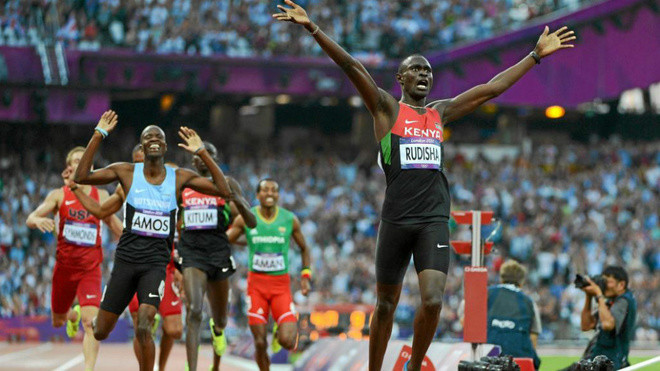
A statement read: “On Tuesday, May 19, Rudisha twisted his left ankle at his rural home in Kilgoris, Narok County, Kenya.
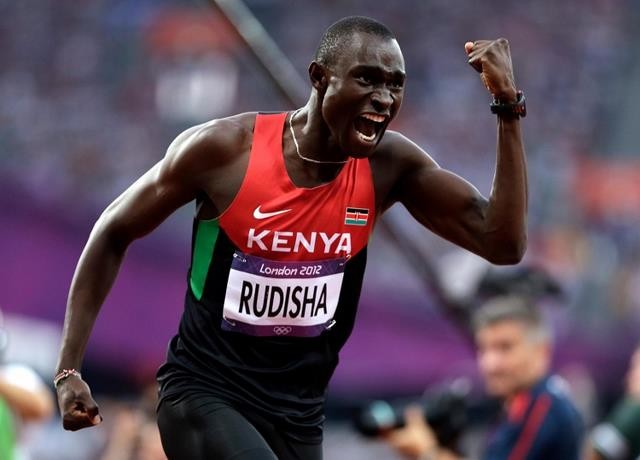
“During a walk on the compound the 31-year-old stepped on uneven ground, and initially believed it was not a serious injury.
“He continued with exercises that wouldn’t cause further harm to his ankle but after a lack of improvement over the weekend, he underwent an examination and was diagnosed with an ankle fracture at St Luke’s hospital in Eldoret.
“Rudisha, who is attempting to compete at his third Olympic Games next year, is expected to be out of training for 12 to 16 weeks and hopes to resume rehabilitation after that.”
Rudisha’s winning run at London 2012 came in a world-record time of one minute 40.91 seconds, a record which still stands.
Login to leave a comment
World marathon record holder Eliud Kipchoge and David Rudisha lead Absa initiative to boost education in Kenya
World record holders Eliud Kipchoge and David Rudisha are among five athletes signed up by Absa Bank Kenya PLC to power their “Torch of possibilities run” initiative that seeks to raise funds for education in Kenya.
ABSA Bank Kenya managing director and CEO Jeremy Awori said the bank also intends to partner with the ministries of sports and education in the initiative that seeks to raise funds for education, sports and the future for Kenyan children.
Others athletes included in the campaign are two-time world marathon champion Catherine Ndereba, former world 800 meters champion Janeth Jepkosgei and three-time Diamond League 3,000 meters steeplechase winner Paul Kipsiele Koech.
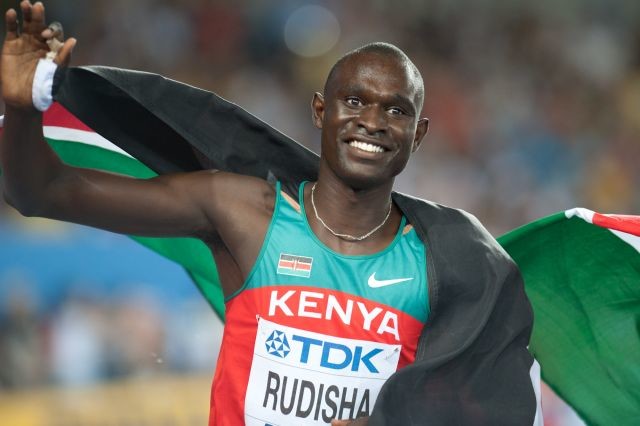
Awori said that the athletes will participate and champion the cause in five races to be held in Eldoret, Nairobi, Nyeri, Kisumu and Mombasa where they also intend to raise funds from entry fees and sponsorship from other corporates.

Awori added that the campaign is aimed at motivating emerging and future athletes, as well as millions of young Kenyans to aspire for greatness.
Eldoret will open the proceedings on March 21 followed by Nairobi on March 28 where entry fees across all the events is Sh1,000.
Awori said they will inject Sh45 million into the cause that is divided between two major projects with Sh20 million going towards the construction of ablution blocks in 40 primary schools across the country.
“Sh25 million will be used to set up 66 computer centers across the country in partnership with Computer for Schools project,” said Awori during the launch at Movenpick Hotel, Nairobi, that was attended by all the contracted athletes save for Kipchoge, who gave a recorded speech.
Sports Cabinet Secretary Amina Mohammed, Director of Secondary Education Paul Kibet, who represented Cabinet Secretary for Education George Magoha and Athletics Kenya CEO Susan Kamau, among others, graced the launch.
“We wanted to bring possibilities of life in education through sports and the place to experience that is young people,” said Awori, adding that they picked on the athletes because of their remarkable status in sport.
Awori highlighted the intention of the bank to keep differentiating itself through participating in projects that are attuned to the needs of the communities in which it operates.
In the last three years, the bank has invested Sh161 million to support 574 university students through the Absa Scholarship program.
Amina said the best gift the country can give to the youth is good education and health through programs like sports and hailed Absa’s initiative.
“Sanitation and especially ablution blocks have been a challenge in schools. Our first phase is the primary schools first moving to secondary hence Absa’s initiative will help us,” said Amina, adding that they intend to construct 19 sports academies across the country where children coming from such programs will continue to pursue their sporting talent.”
by Ayumba Ayodi
Login to leave a comment
David Rudisha’s 2012 Olympic 800m triumph has been chosen as the athletics moment of the decade
Over the past two weeks, athletics fans from around the world have been casting their votes on the World Athletics Instagram page, whittling down a long list of 16 moments.
In the final stage of voting, Rudisha was up against Eliud Kipchoge’s marathon world record from Berlin in 2018. The votes were close, but Rudisha ultimately had the edge, 1151 votes to Kipchoge’s 939.
Rudisha’s victory in London in 2012 was the greatest moment of the Kenyan’s career. Leading up to those Games, he had twice broken the world record in 2010 and won the world title in 2011. He arrived in London undefeated throughout the 2012 season and with the four fastest times in the world that year. Unsurprisingly, he started as the overwhelming favorite.
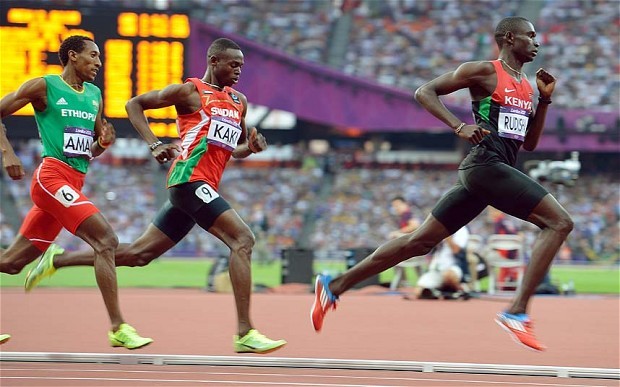
But few would have predicted that Rudisha would have been capable of breaking his own world record in a non-paced championship setting. One of the few people who perhaps had an inkling of what was to come was Kenyan teammate Timothy Kitum, whom Rudisha had told before the race: “Don’t follow me or you’ll die towards the end. Go for the silver.”
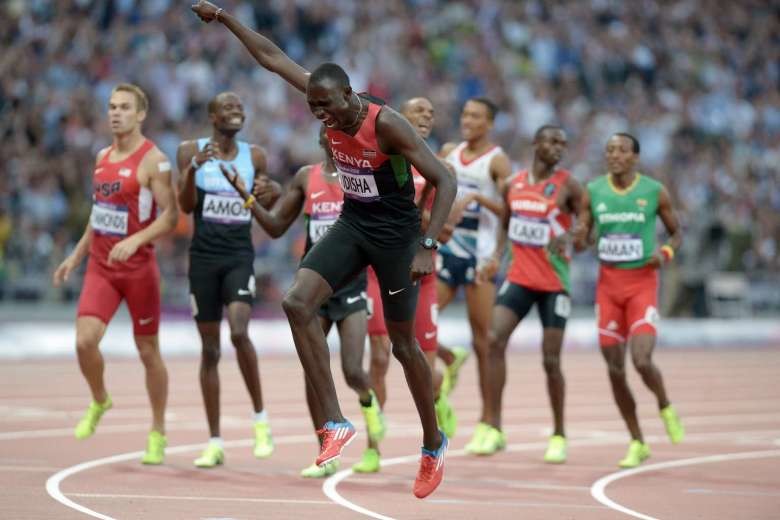
It turned out to be good advice as Rudisha was unchallenged. He passed through 200m in 23.4 and 400m in 49.28. He already had a two-metre lead as he entered the back straight for the second time and his advantage only grew as the race progressed, reaching 600m in 1:14.30.
Urged on by the 80,000 fans who were sensing a stunning moment in the making, the long-striding Rudisha maintained his lead to the finish, crossing the line in 1:40.91 and punching the air as he did so, a lifetime’s ambition realised.
“I have waited for this moment for a long time,” said Rudisha. “I had no doubt about winning, but to come here and get a world record is unbelievable.”
by World Athletics
Login to leave a comment
The pioneer of Kenyan running, Daniel Rudisha, dies of a heart attack at age 73
Athletics Kenya reports that Daniel Rudisha, silver medallist for Kenya in the 4x400m relay at the 1968 Olympics and father to two-time Olympic champion David Rudisha, died in Kenya Wednesday at age 73.
Rudisha has been called one of the pioneers of running in Kenya. His relay teammates in Mexico City were Hezekiah Nyamao, Charles Asati and Naftali Bon. Four years later, Asati and Nyamao were on the 4x400m relay team that won gold in Munich.
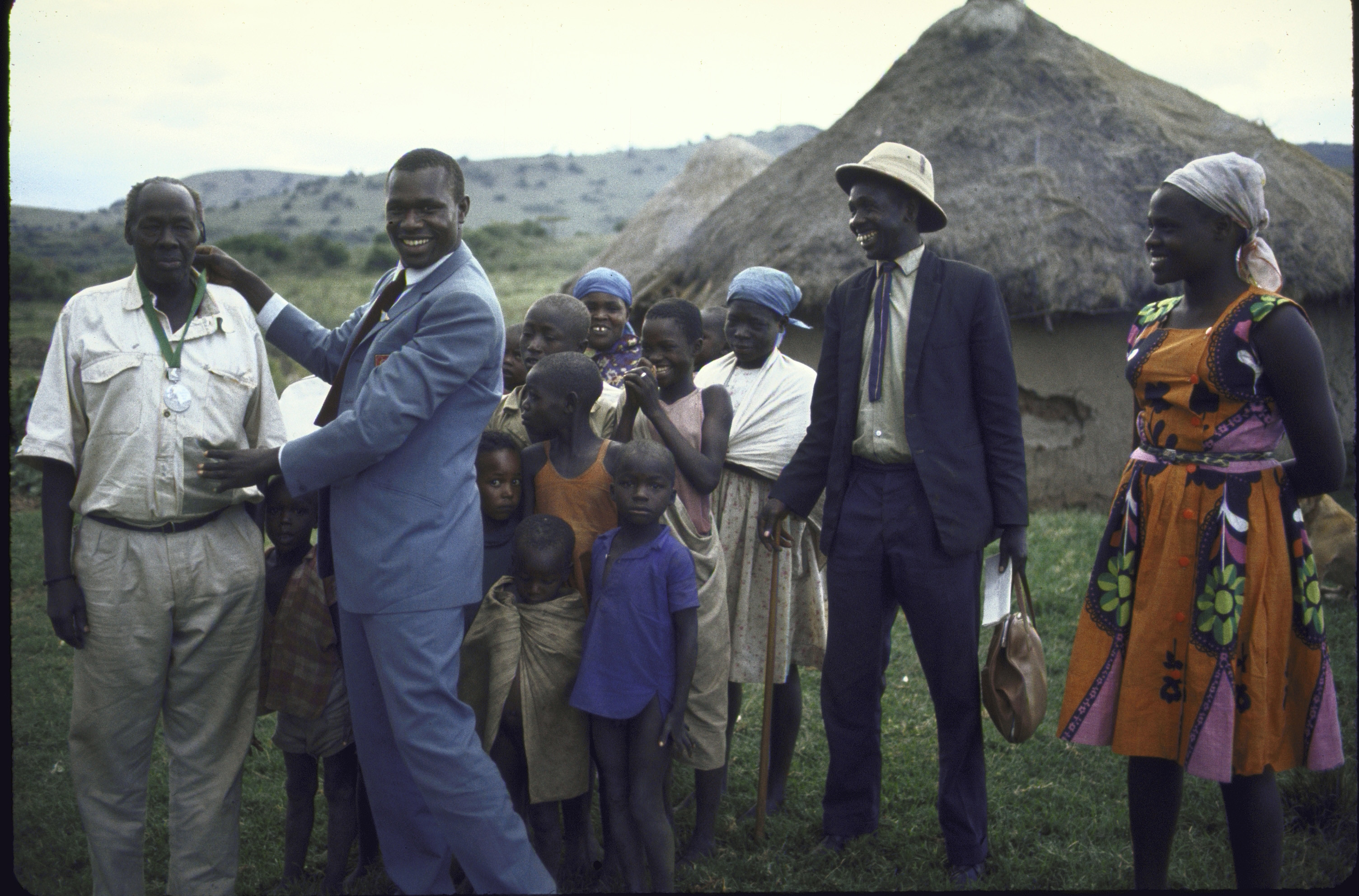
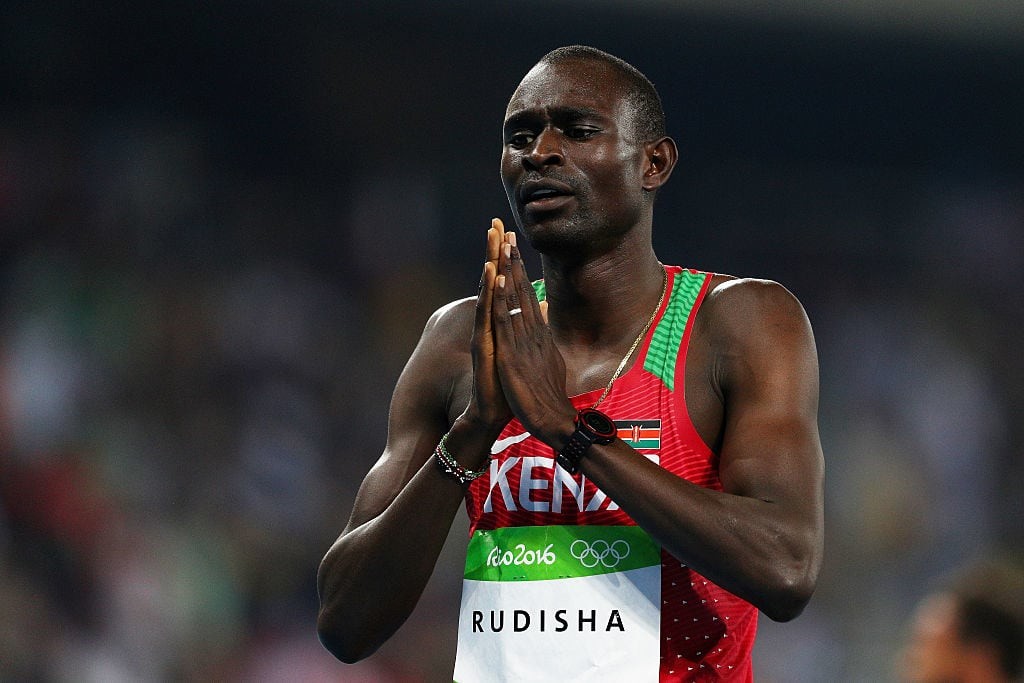
Rudisha’s son David is the reigning Olympic champion in the 800m, after successfully defending his 2012 title. He has also won two world championships at the distance, and is the world record-holder (1:40.91, from his gold-medal performance at the 2012 Olympics in London, improving on his own record twice).
The Daily Nation reported that Rudisha died of a heart attack. David Rudisha is quoted as saying “He is my hero and the man behind my athletics success.”
Login to leave a comment


